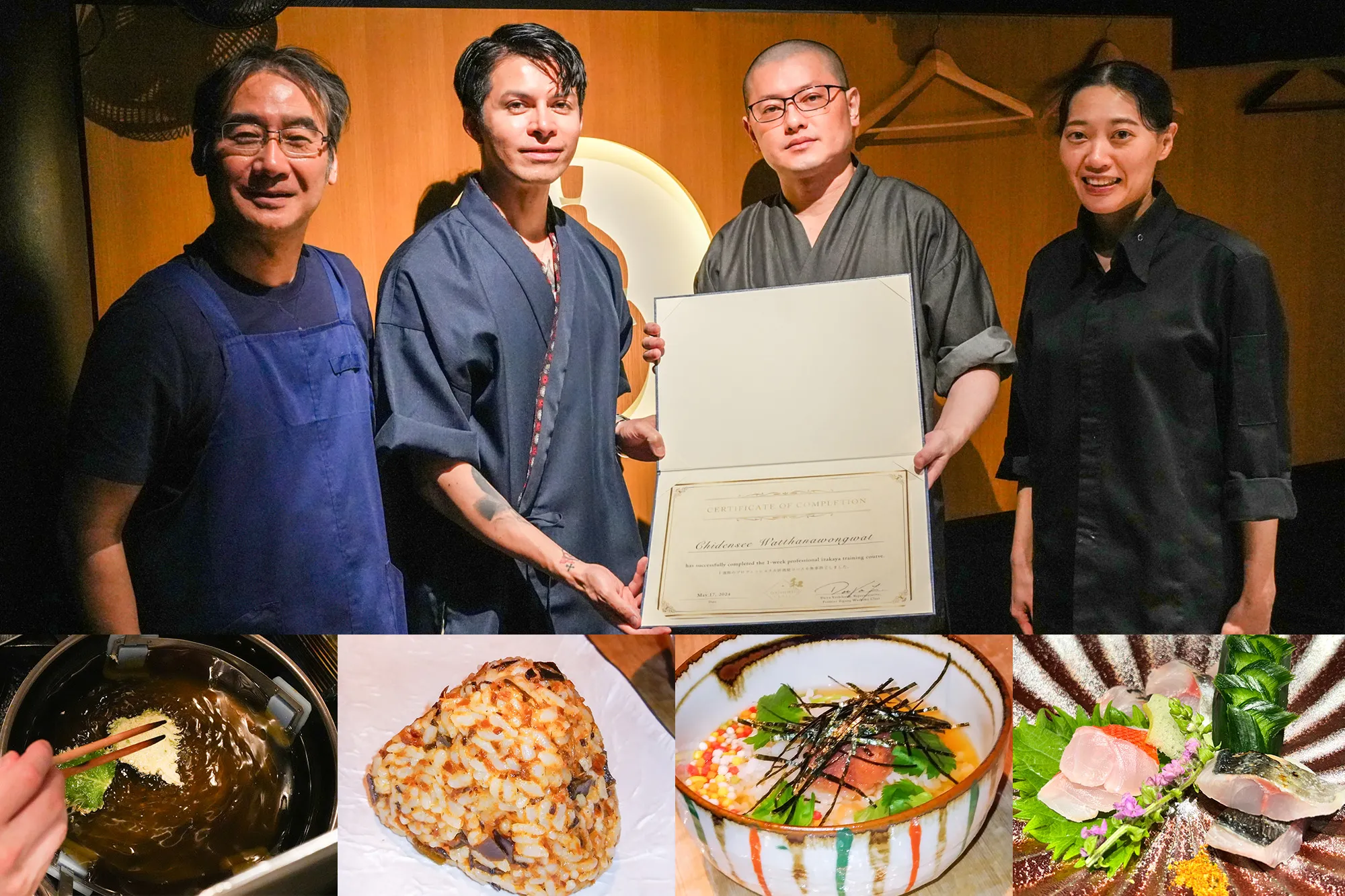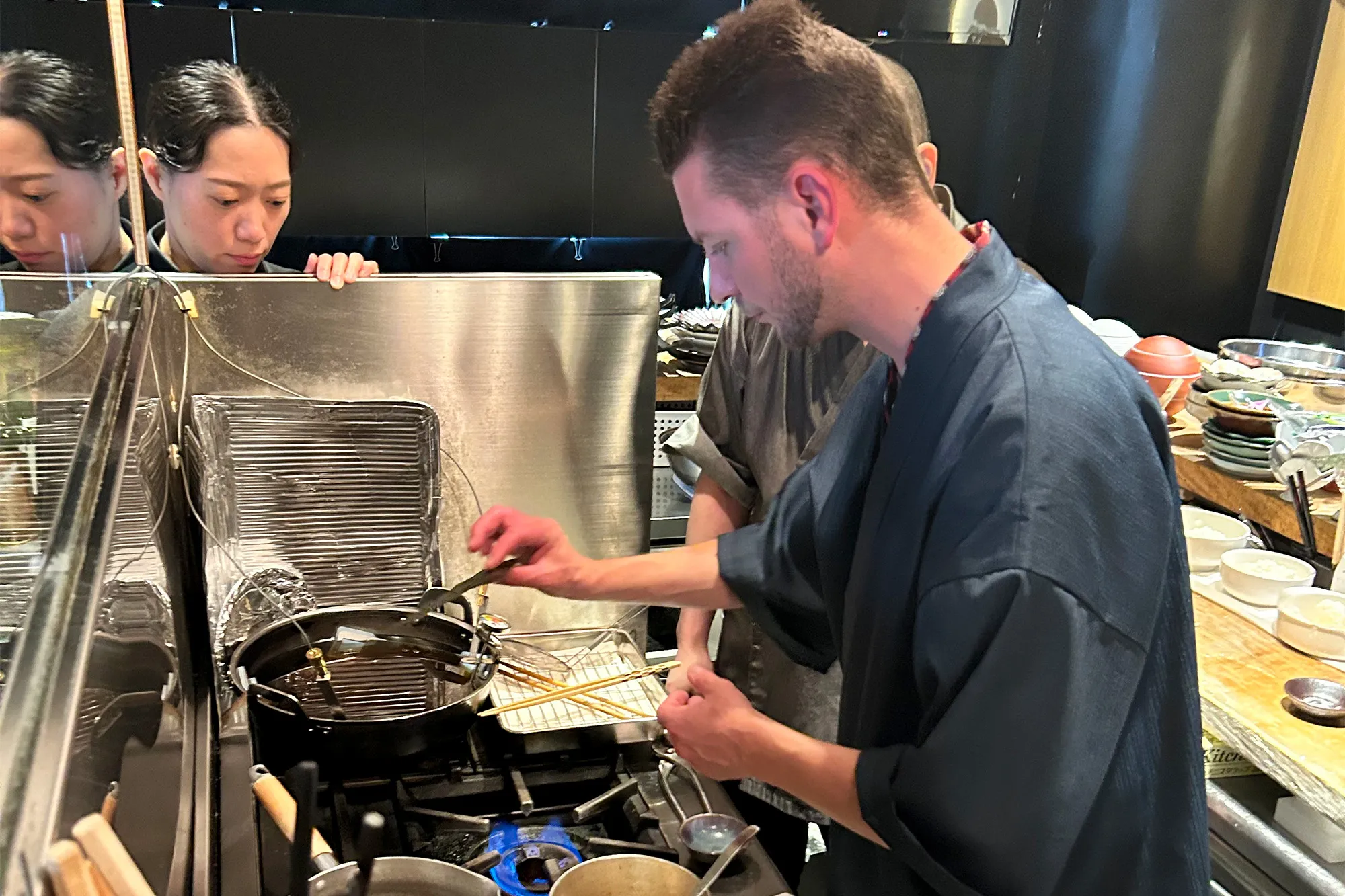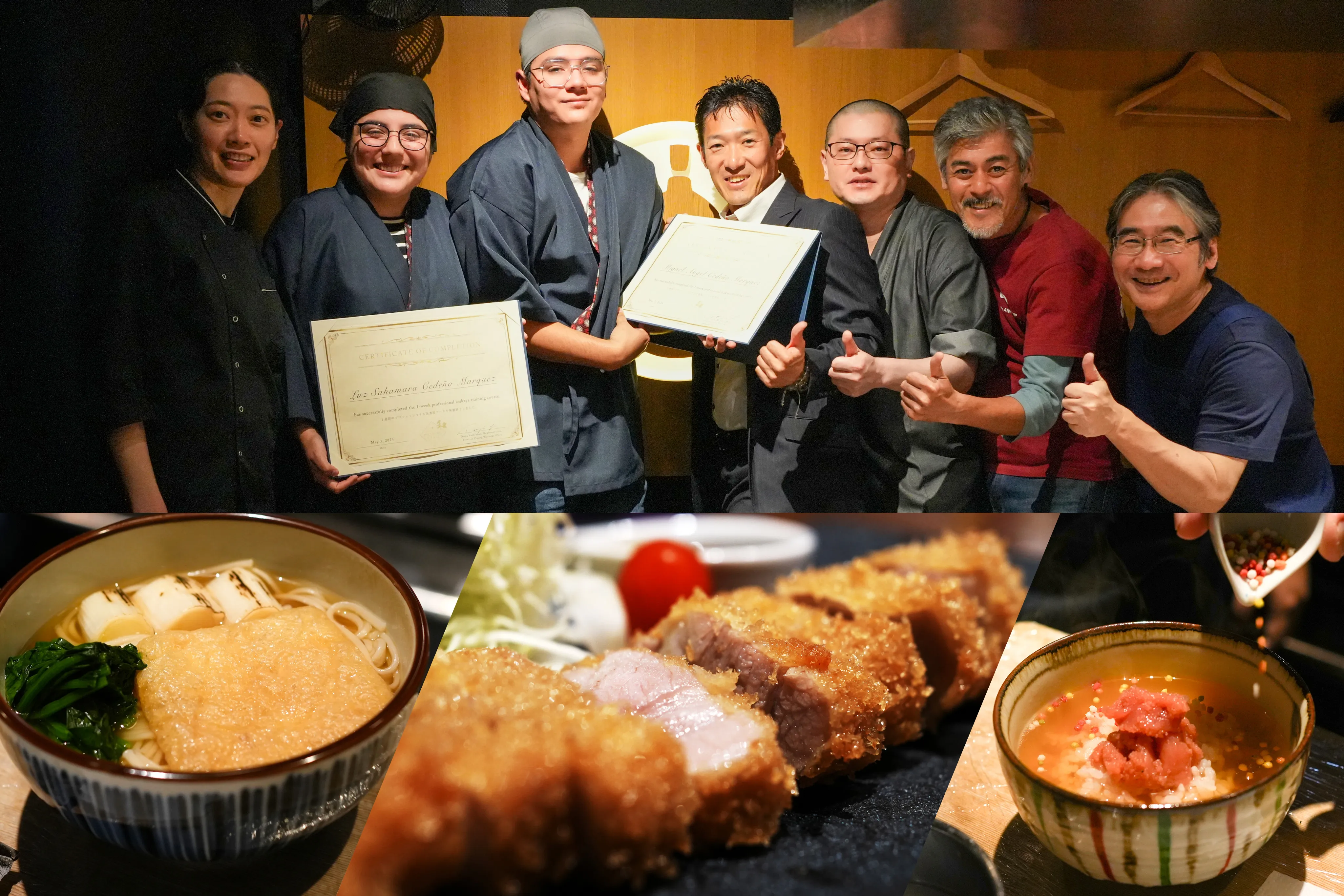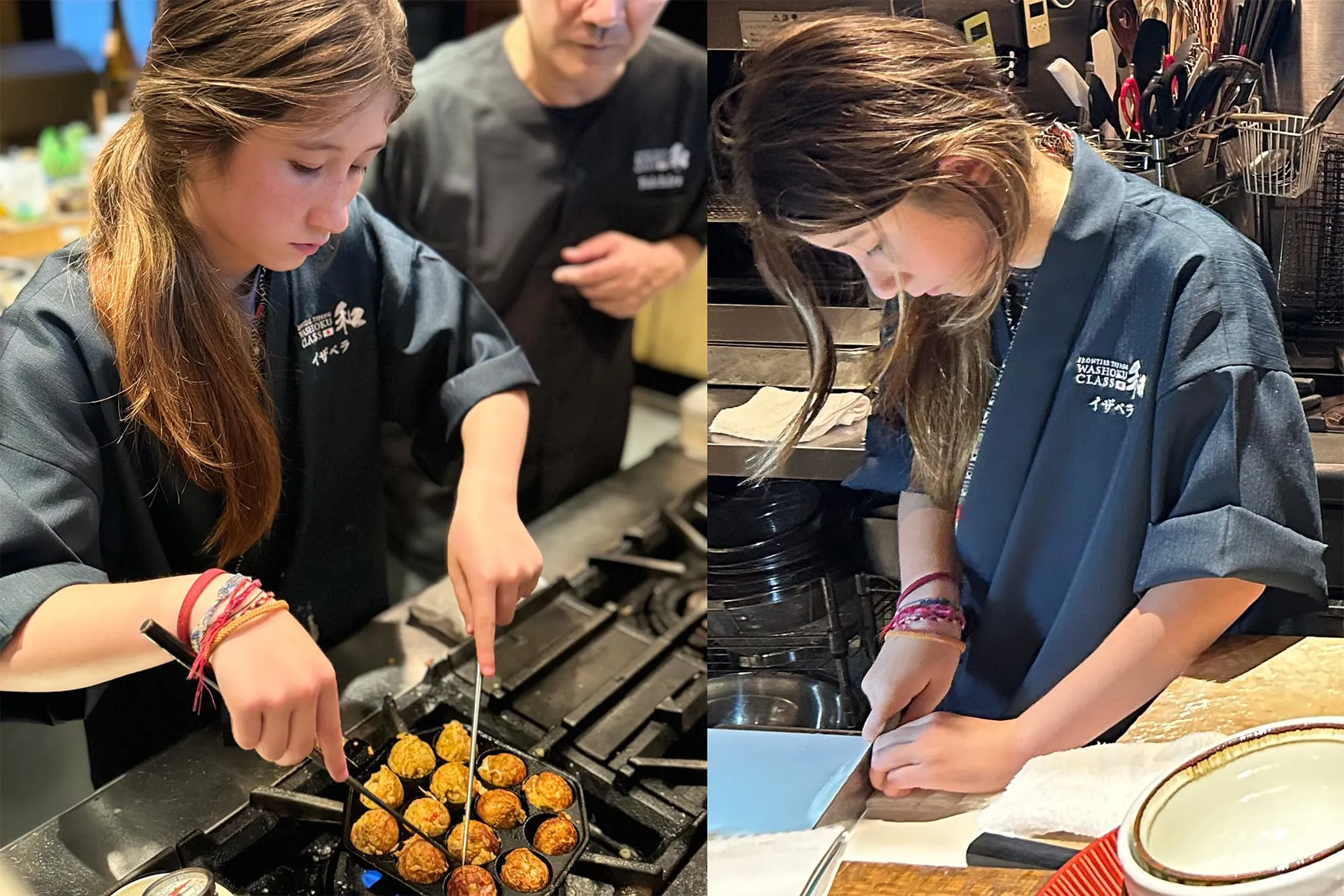Lesson Report: Four-Week Summer Course (Part3: 1-week Izakaya)
Apr 20, 2025
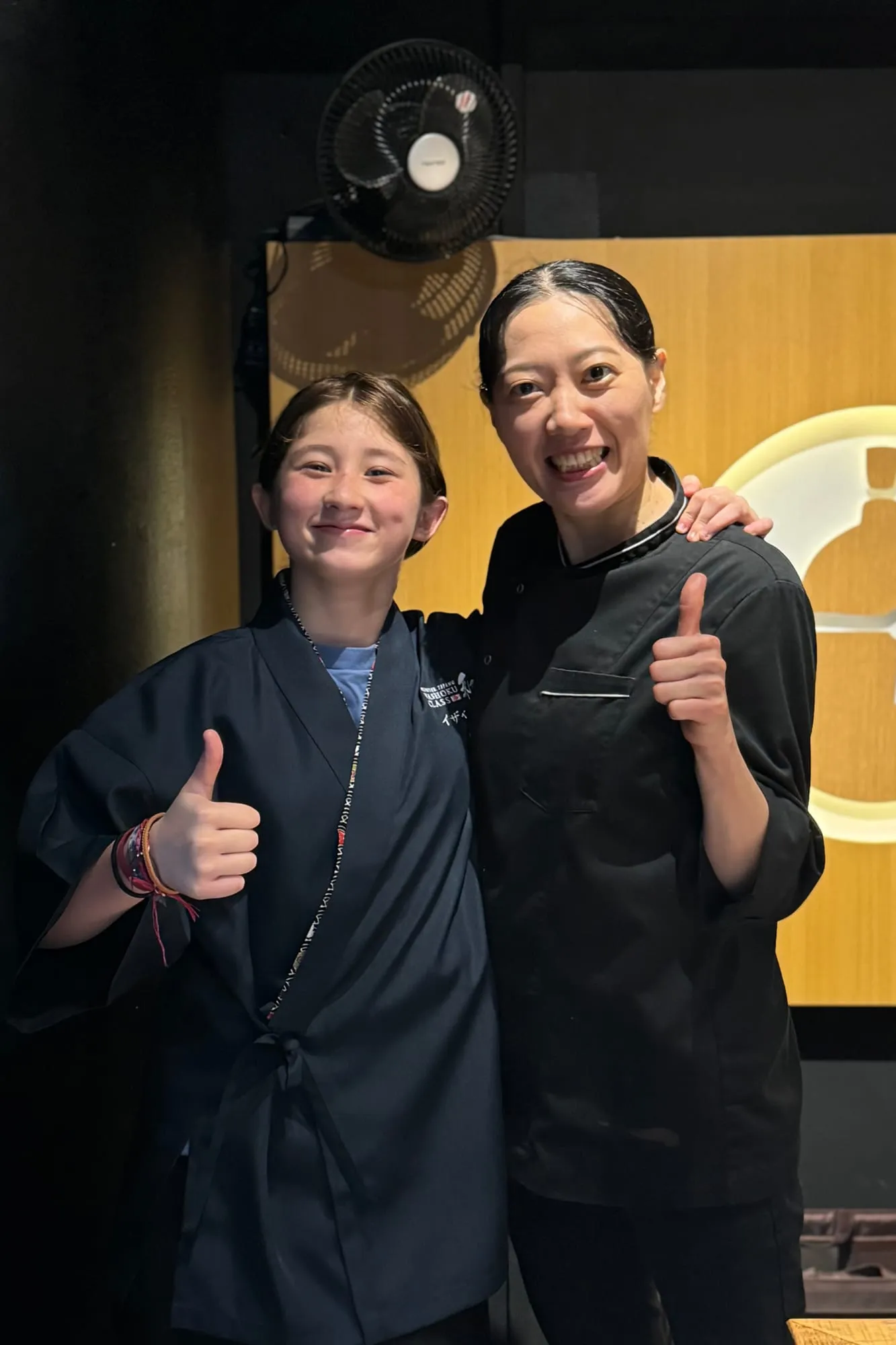
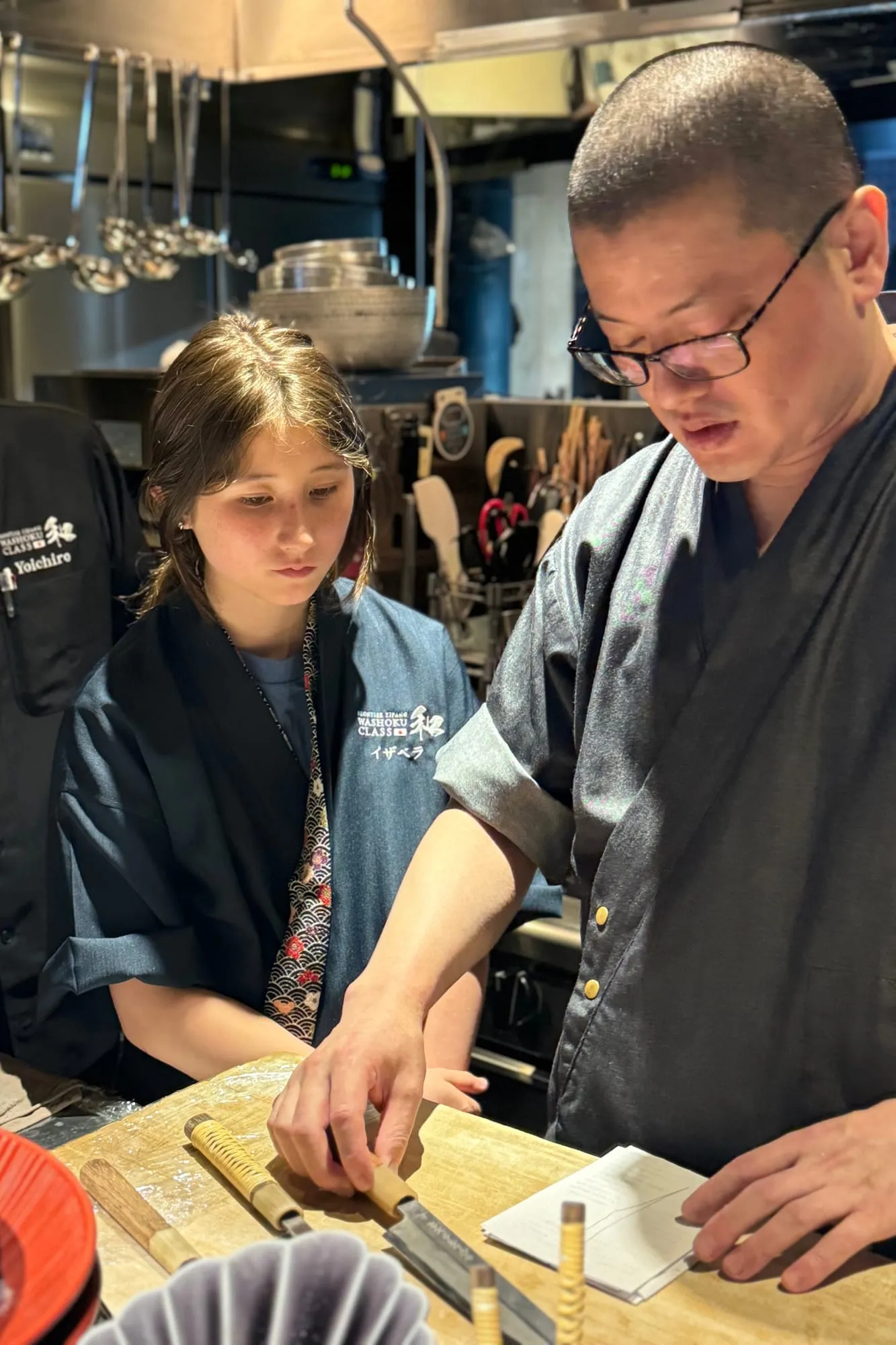
This article features Isabella, a 16-year-old from the United States, who is participating in the one-month Summer Course held in June. This week, she will attend the Izakaya Session for five days. We will begin with a lesson on kitchen knives, covering the proper techniques for making clean cuts, as well as the importance of sharpening and maintaining your knives on a daily basis.
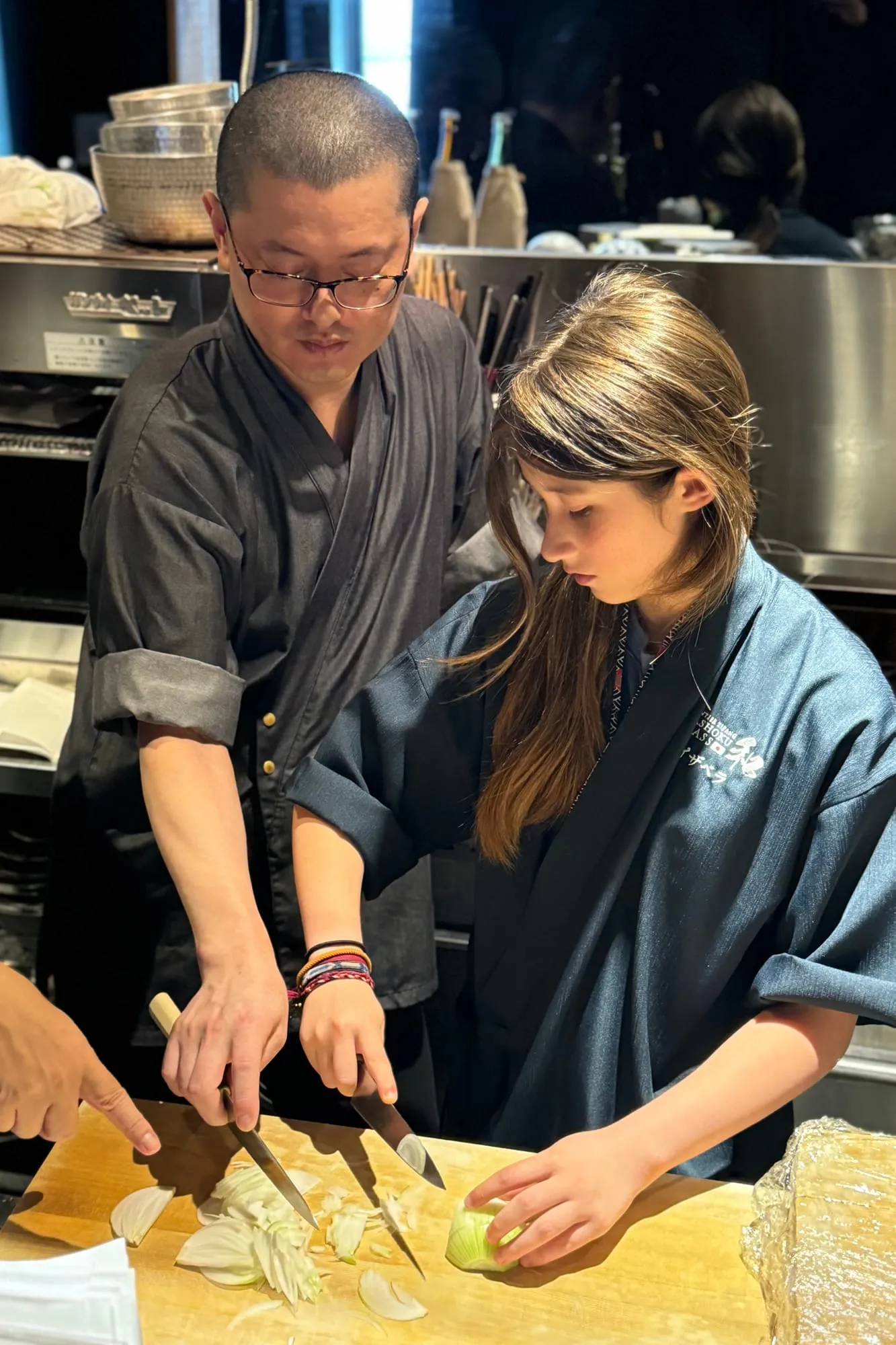
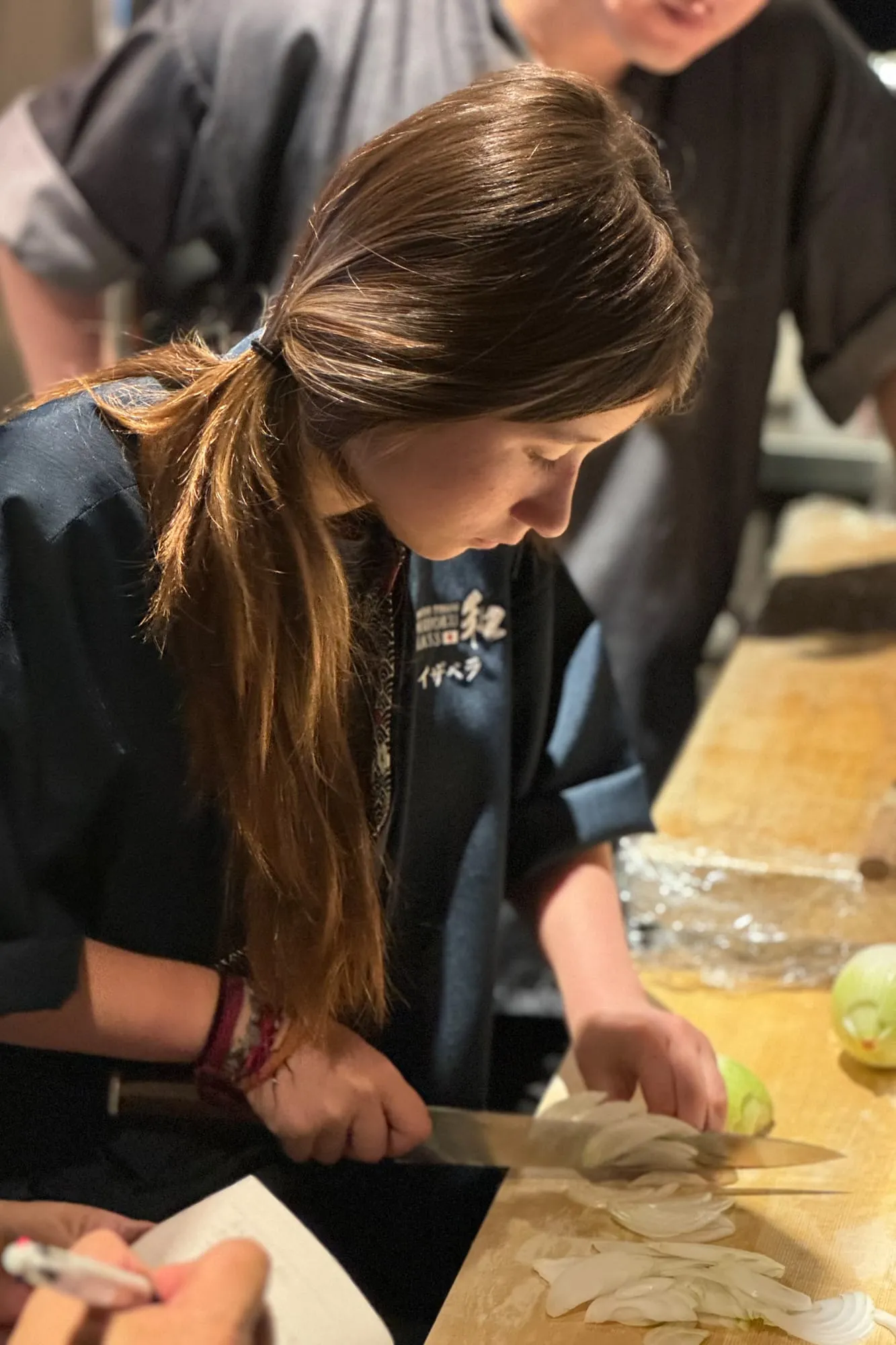
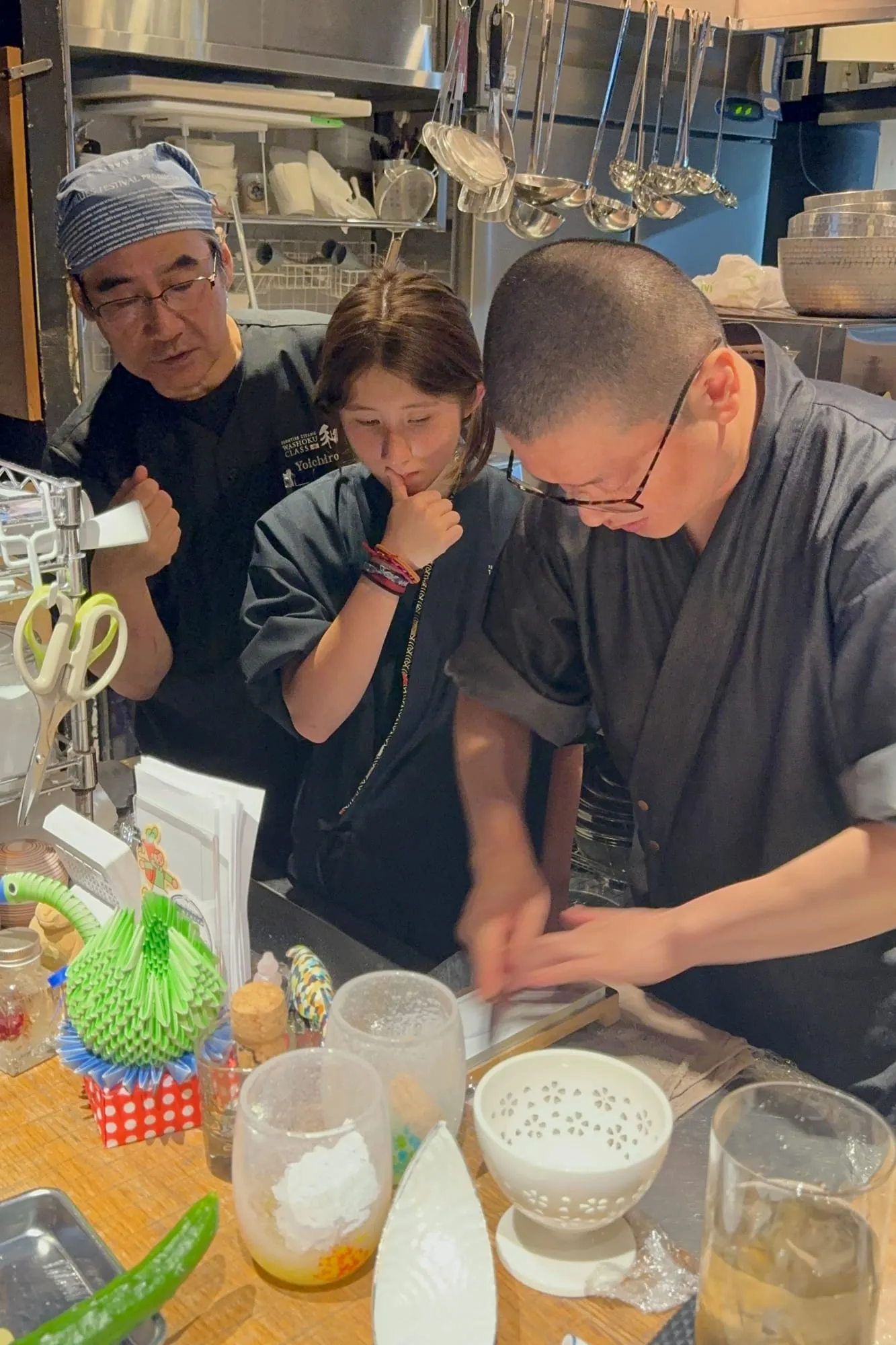
Now, Isabella practices cutting onions. She tries four different kitchen knives to see which one is the easiest for her to use. It’s important to remember that choosing a knife should be based on its length, width, and thickness, ensuring it suits your body size rather than focusing on its design and appearance. Instructor Matsumaru also teaches her basics of handling kitchen knives to keep in mind, such as a proper angle of the kitchen knife and the posture when using the kitchen knife. Additionally, she is taught not to touch the kitchen knife with the hand with which she touches foodstuff. In our Washoku Chef Training Course, we will dedicate more time to exploring kitchen knife techniques and knowledge in depth. Mastering Japanese cuisine requires a solid understanding of single-bevel Japanese knives and the ability to skillfully use them.
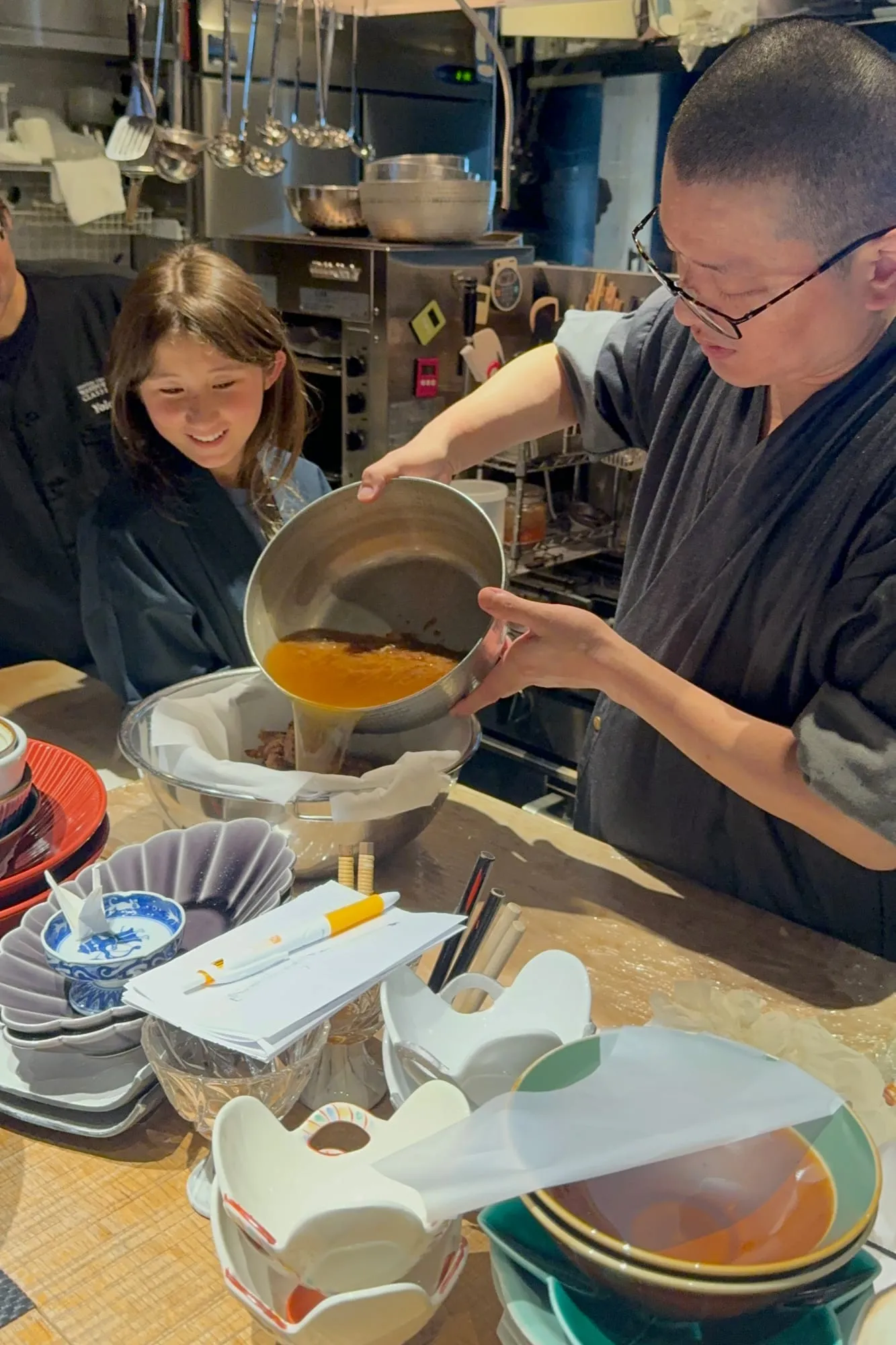
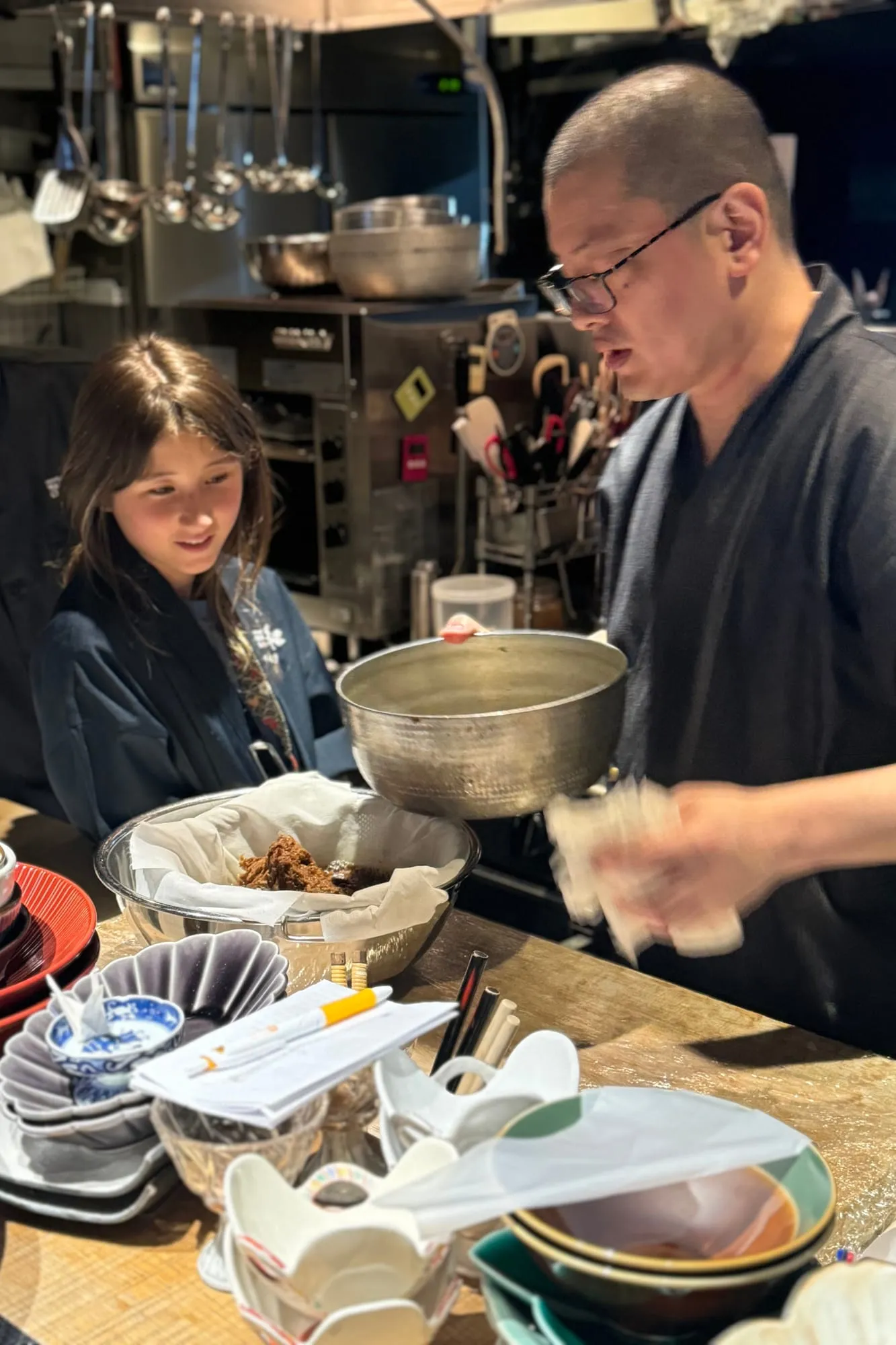
Next, another key element of Japanese cuisine is making ‘dashi’ (stock), which is essential for dishes like miso soup. After all, who doesn’t love miso soup, right?
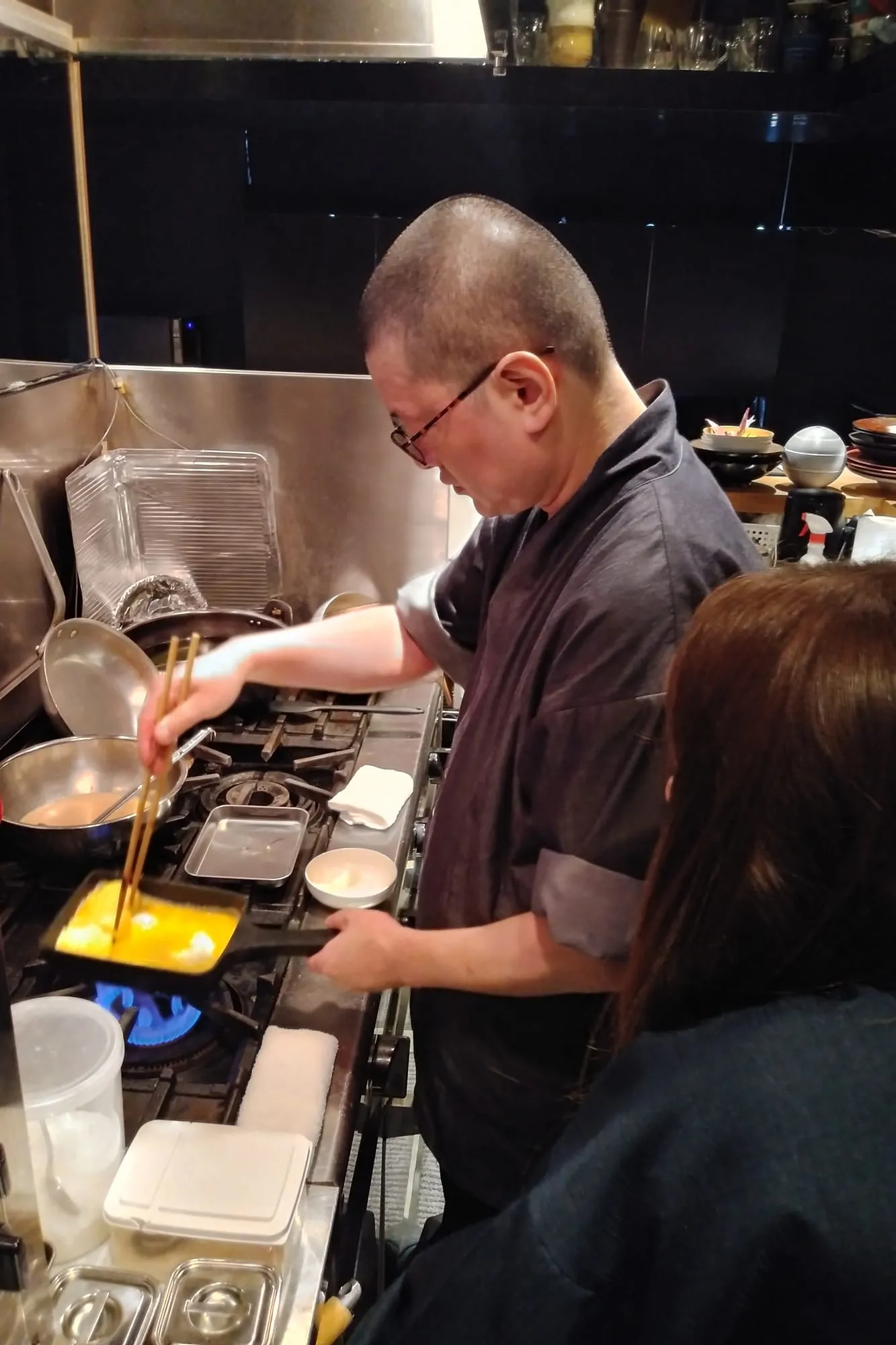
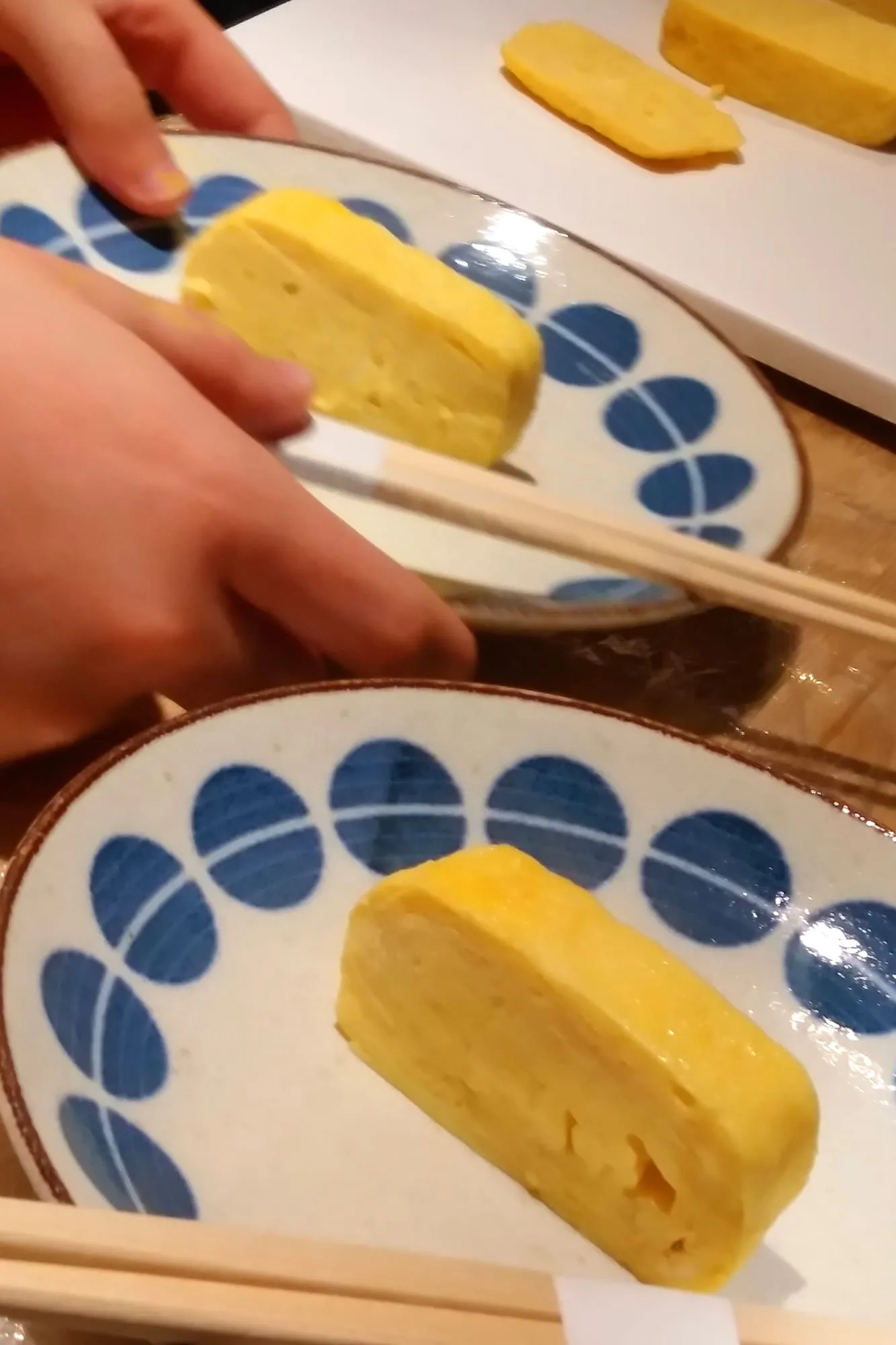
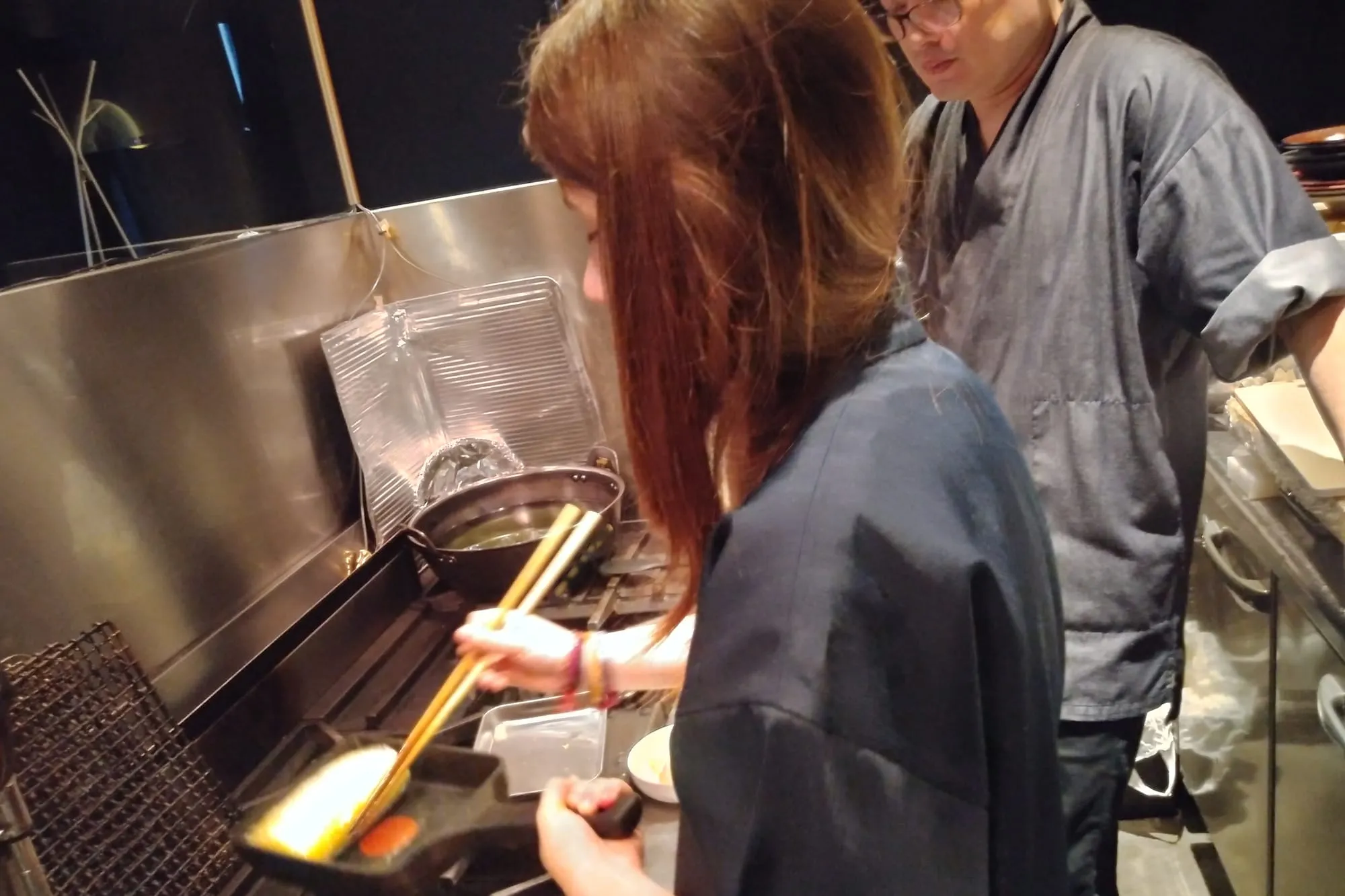
Afterward, she practices making ‘dashimaki tamago’ (a rolled Japanese-style omelet), a dish that incorporates dashi. This requires entirely different techniques from those she learned when making fluffy omelets during the Popular Japanese Dishes Session last week. Practice makes perfect, and she is working very hard to master it.
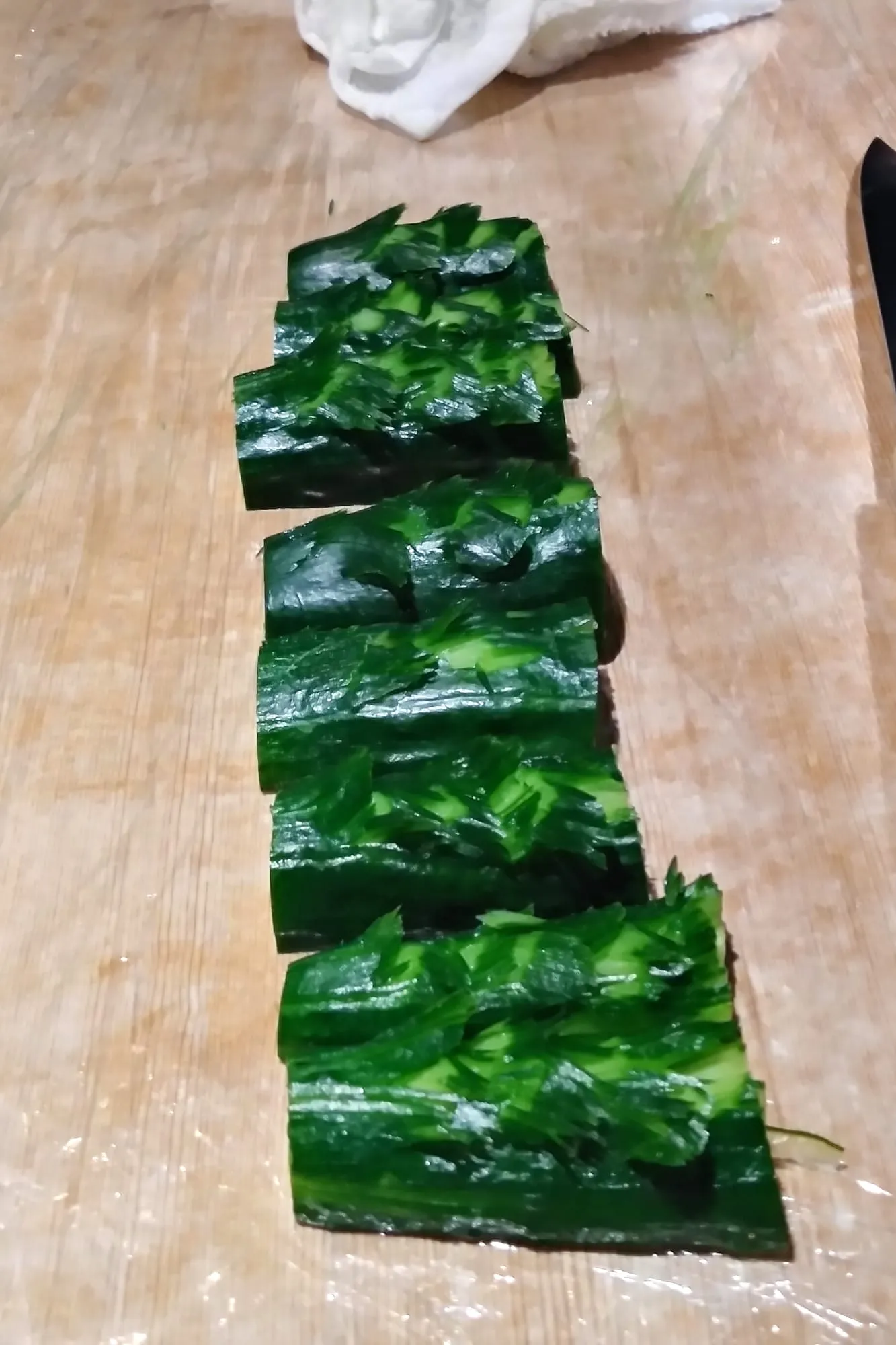
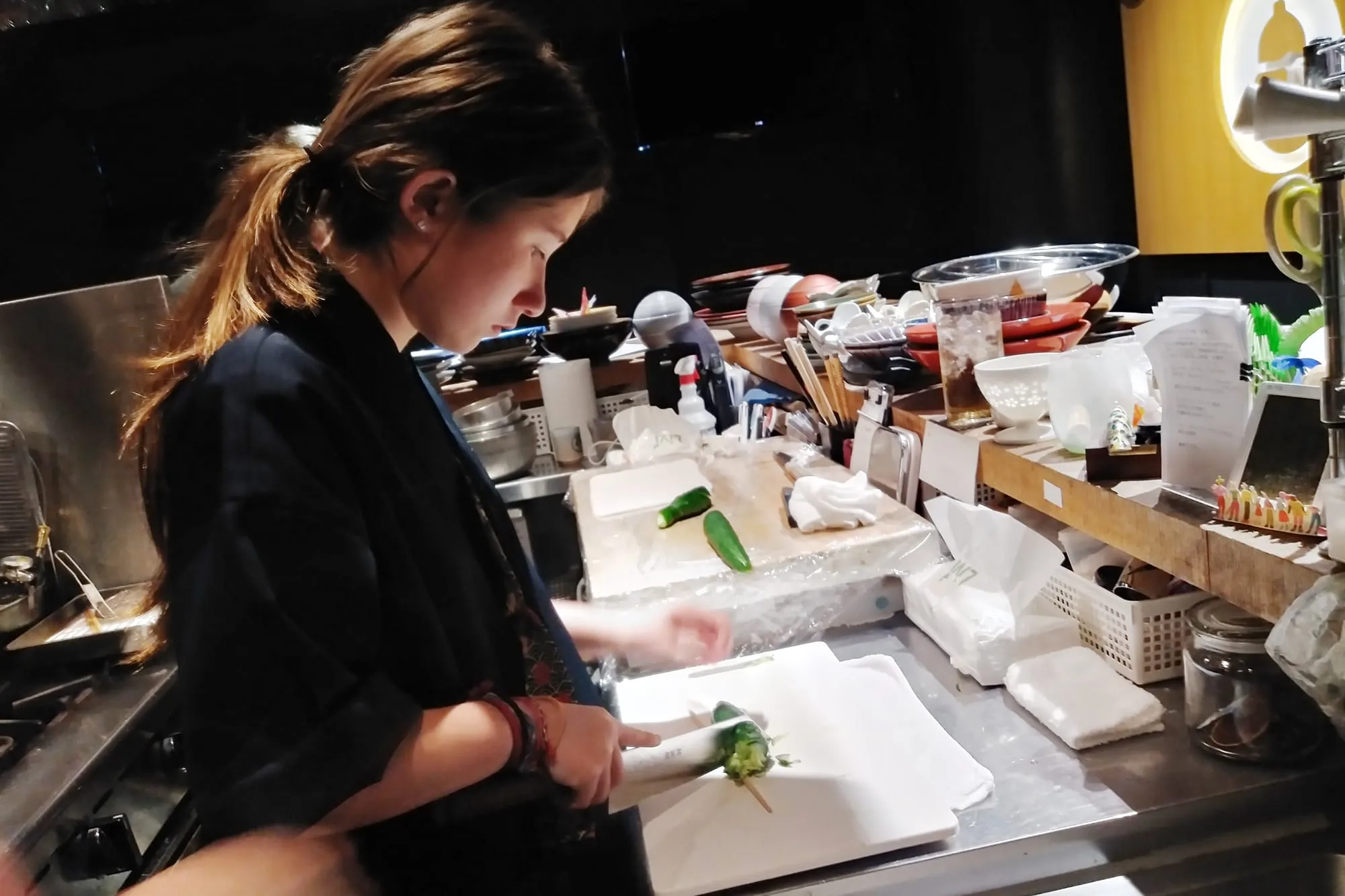
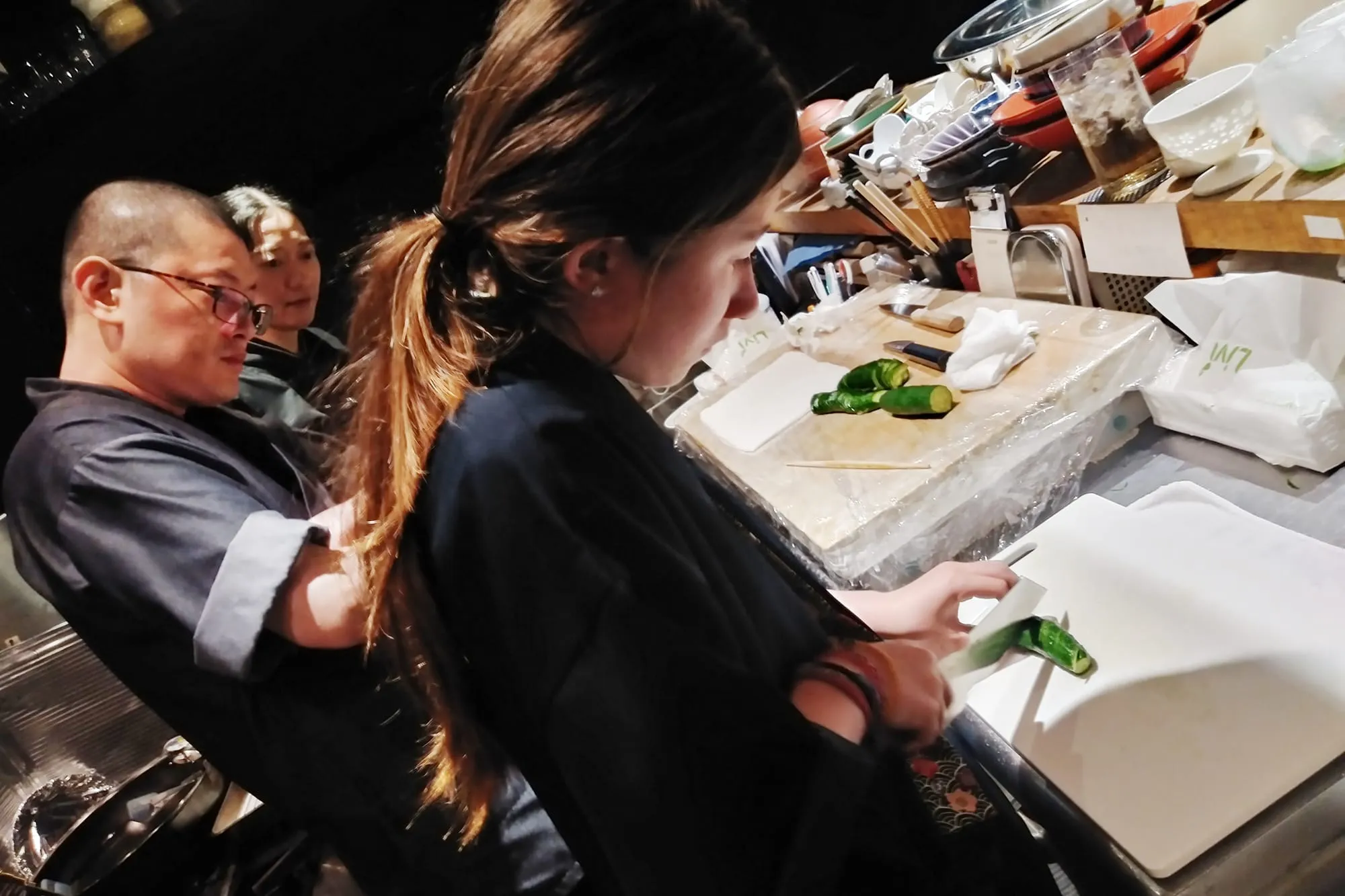
Day 2 also begins with the use of the kitchen knife. She practices slicing onions thinly. As she was advised before, she can practice cutting slowly and meticulously at first to ensure that she can acquire the proper handling of the kitchen knife. Next, she moves on to decorative cucumber cutting, including shapes like bellows and pine trees. Initially, she cuts too quickly, resulting in rough slices. However, with repeated practice, she gradually masters the technique, achieving more precise and meticulous cuts.
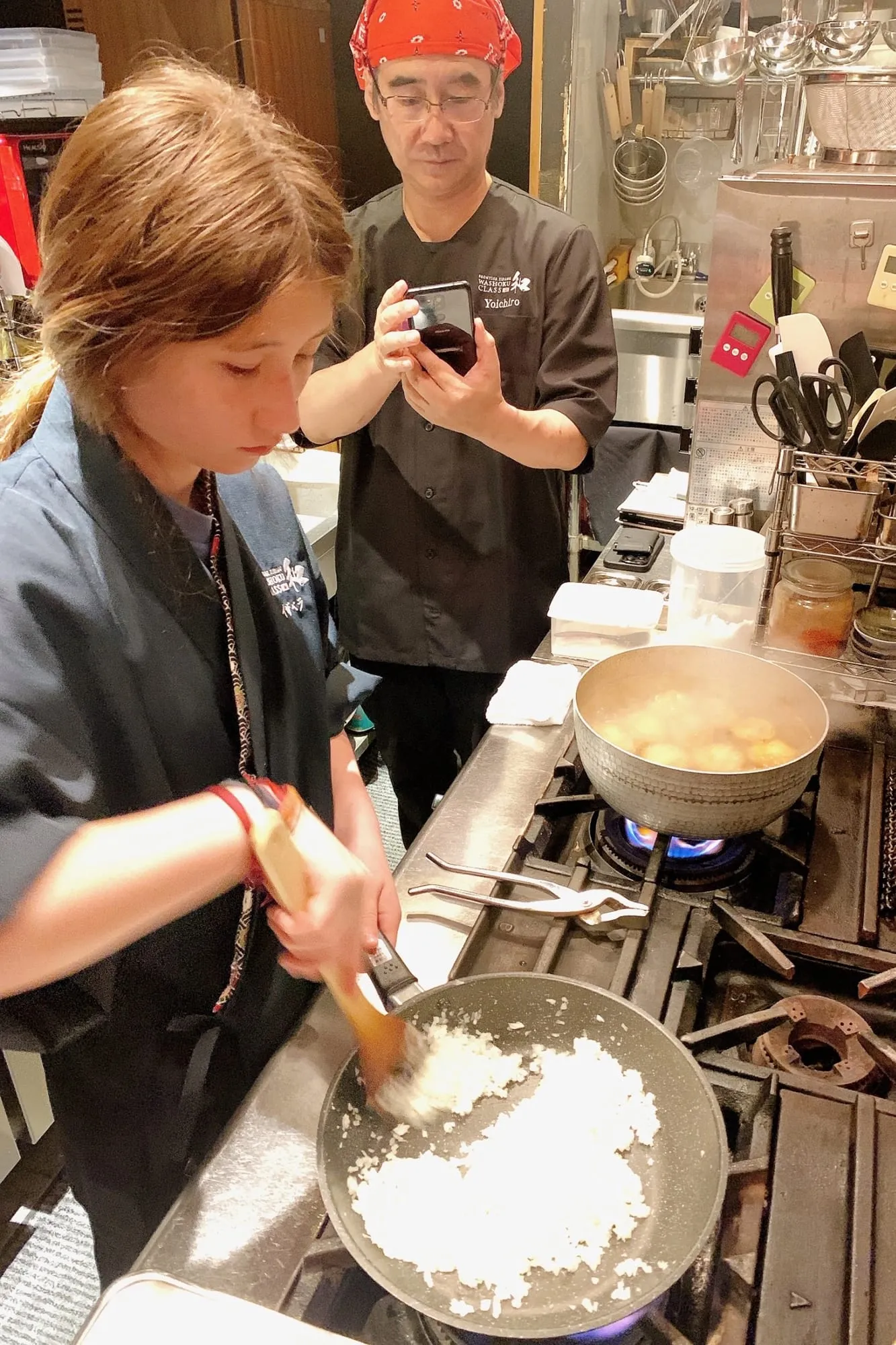
Practicing the skill of flipping a frying pan is essential. To prevent ingredients from spilling, rice is used for the practice. This exercise is vital for mastering the technique of stir-frying quickly and efficiently without any spillage.
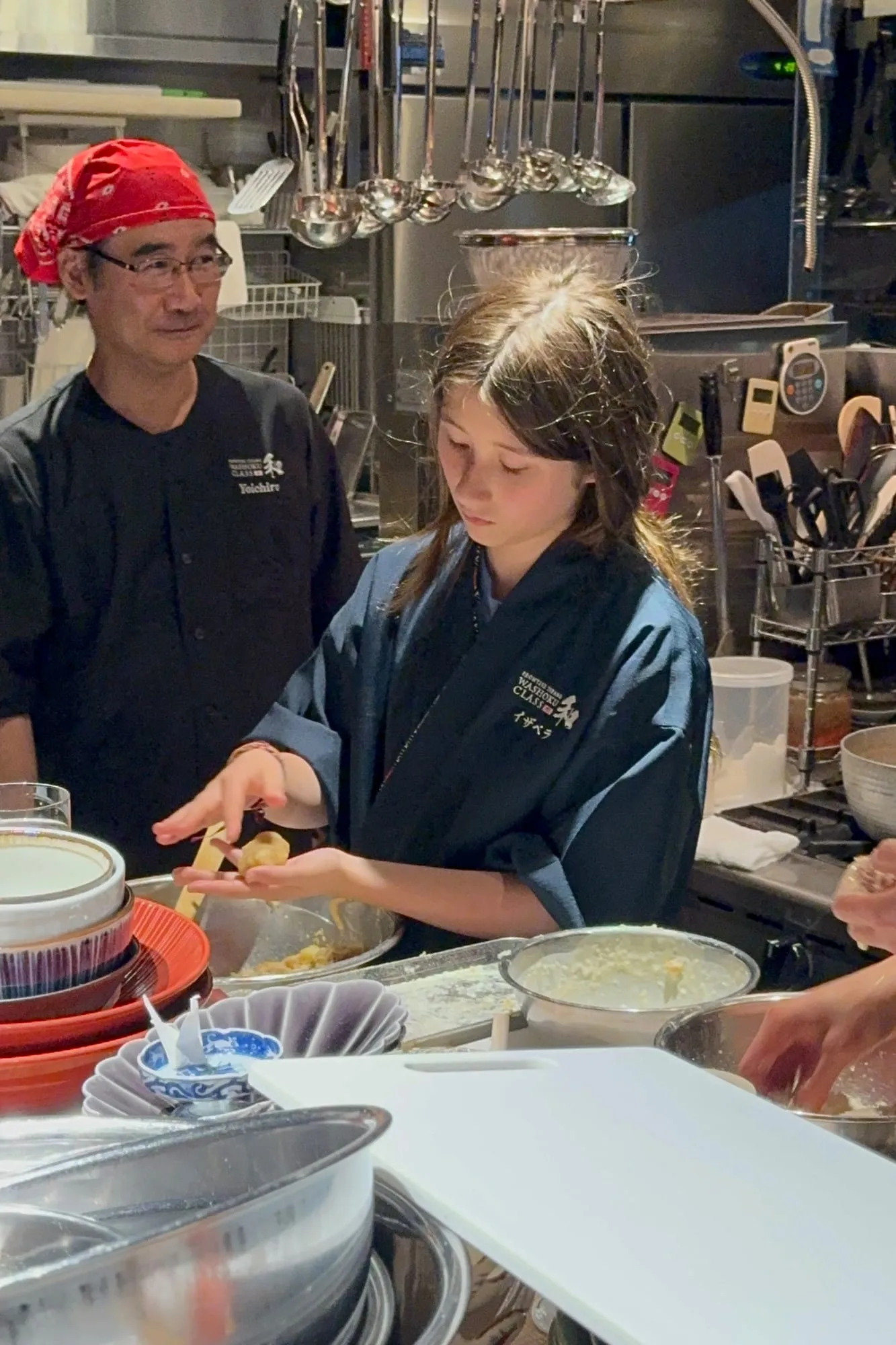
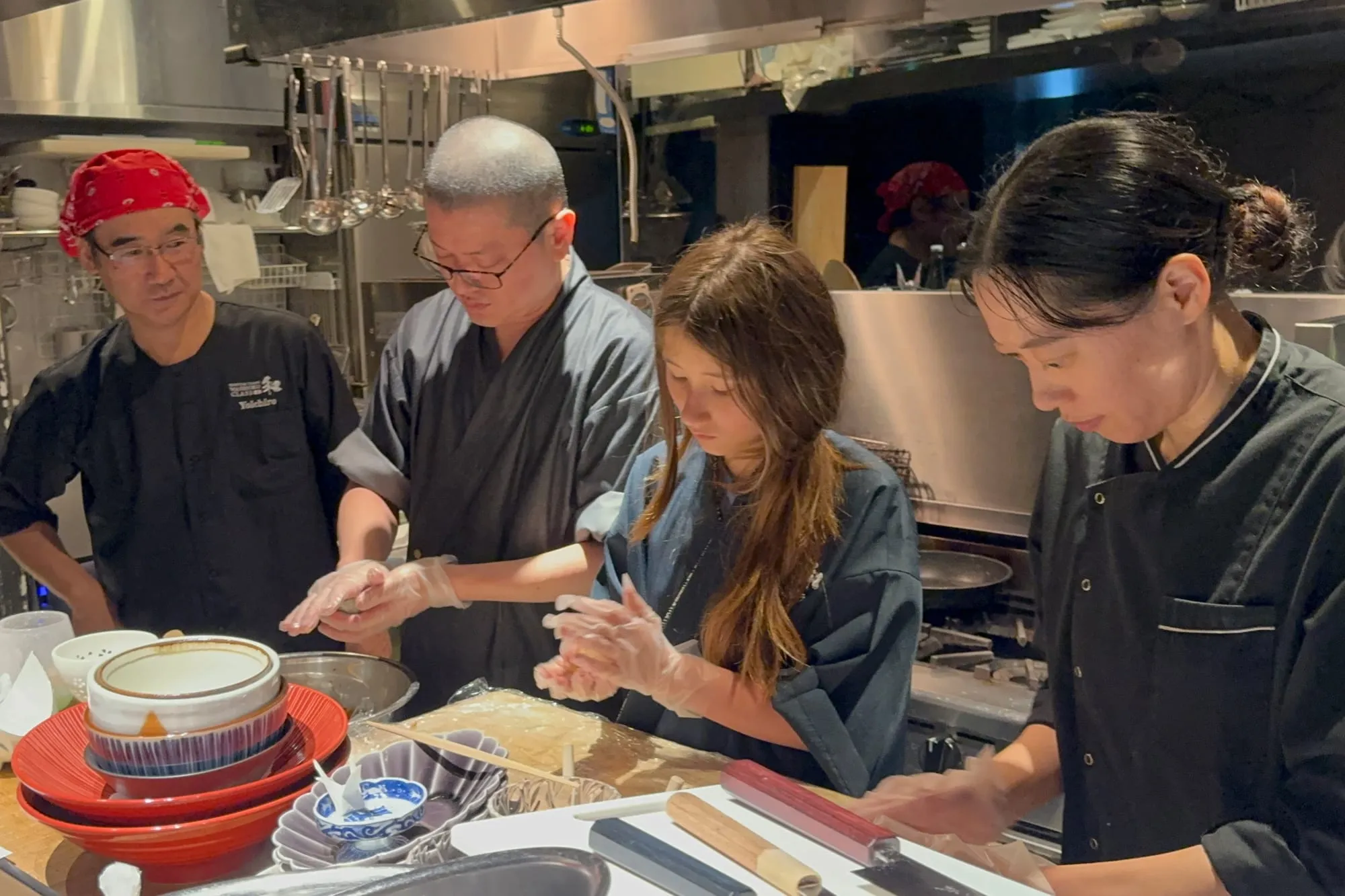
The next topic is croquettes, a popular dish in Japan. Shaping croquettes without them falling apart can be quite challenging. Initially, they often resemble hamburger patties, but by closely observing the instructor’s demonstration, Isabella gradually improves.
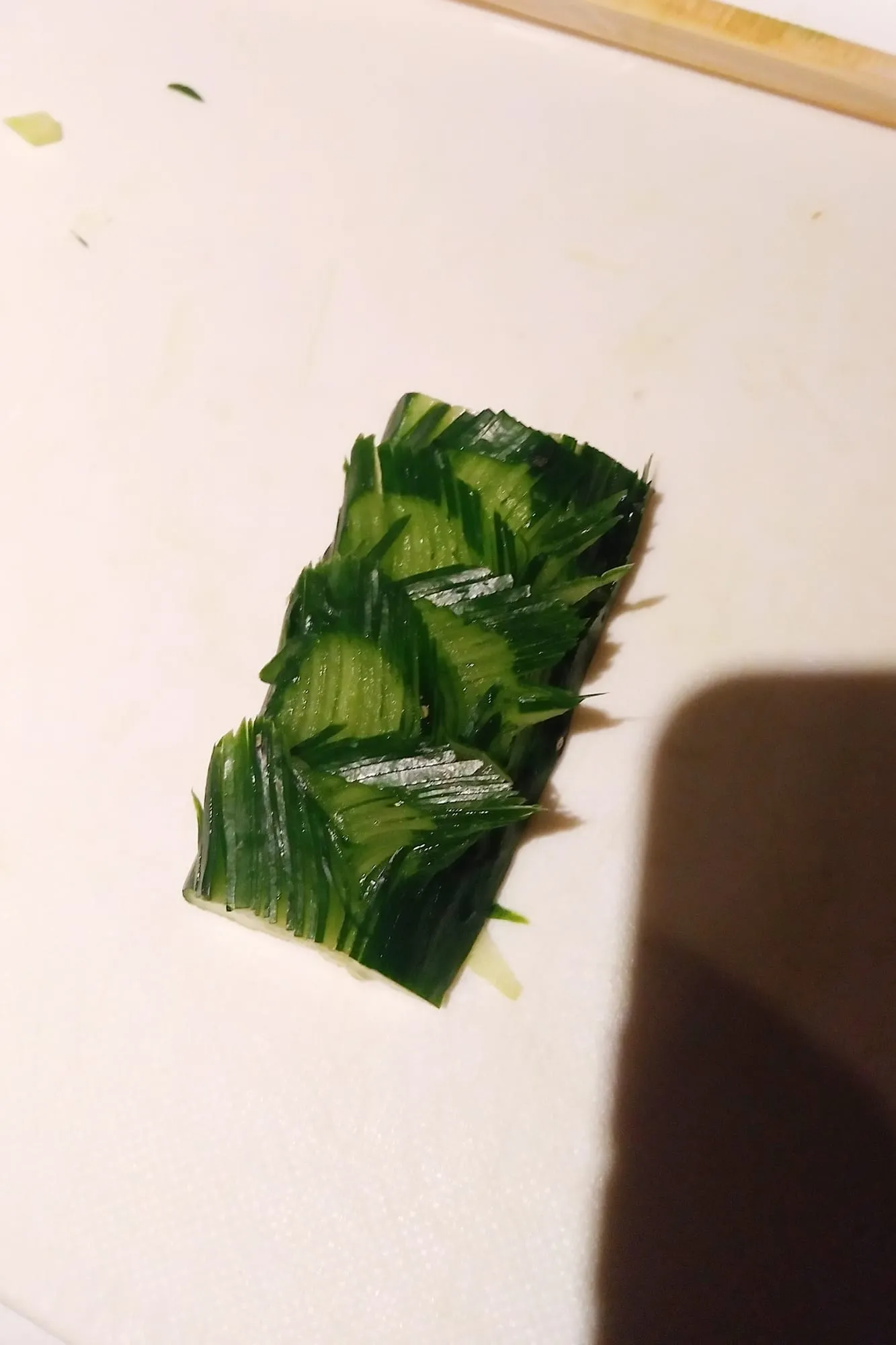
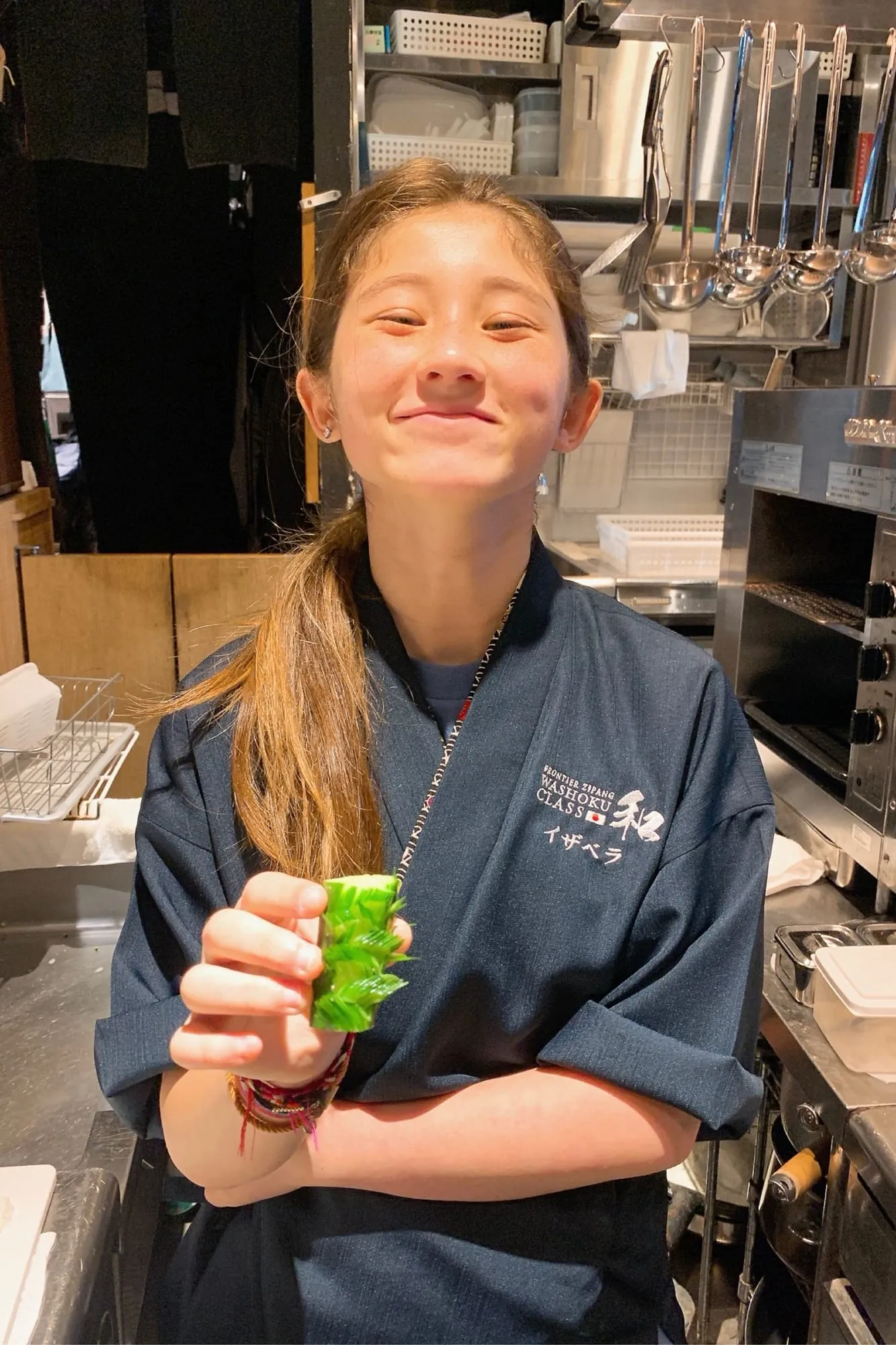
The day begins with vegetable cutting practice. It’s Isabella’s first time using her own knife. The more she uses it, the better it will fit her hand, so practice is key! Keep it up, Isabella! She starts by cutting tomatoes while checking the knife’s sharpness, followed by decorative cucumber cutting, continuing from the previous day. She appears more focused in handling the knife compared to the previous day.
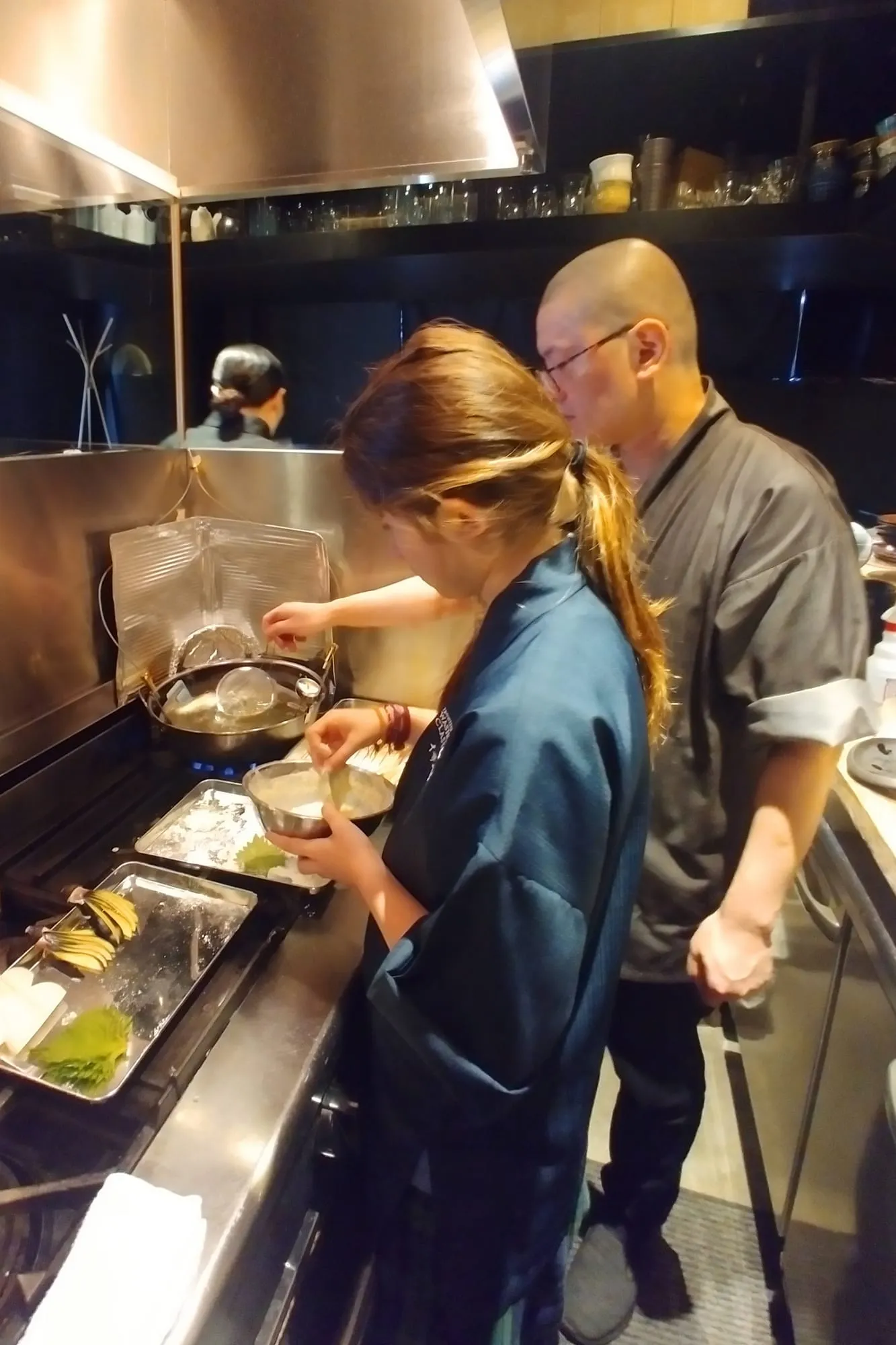
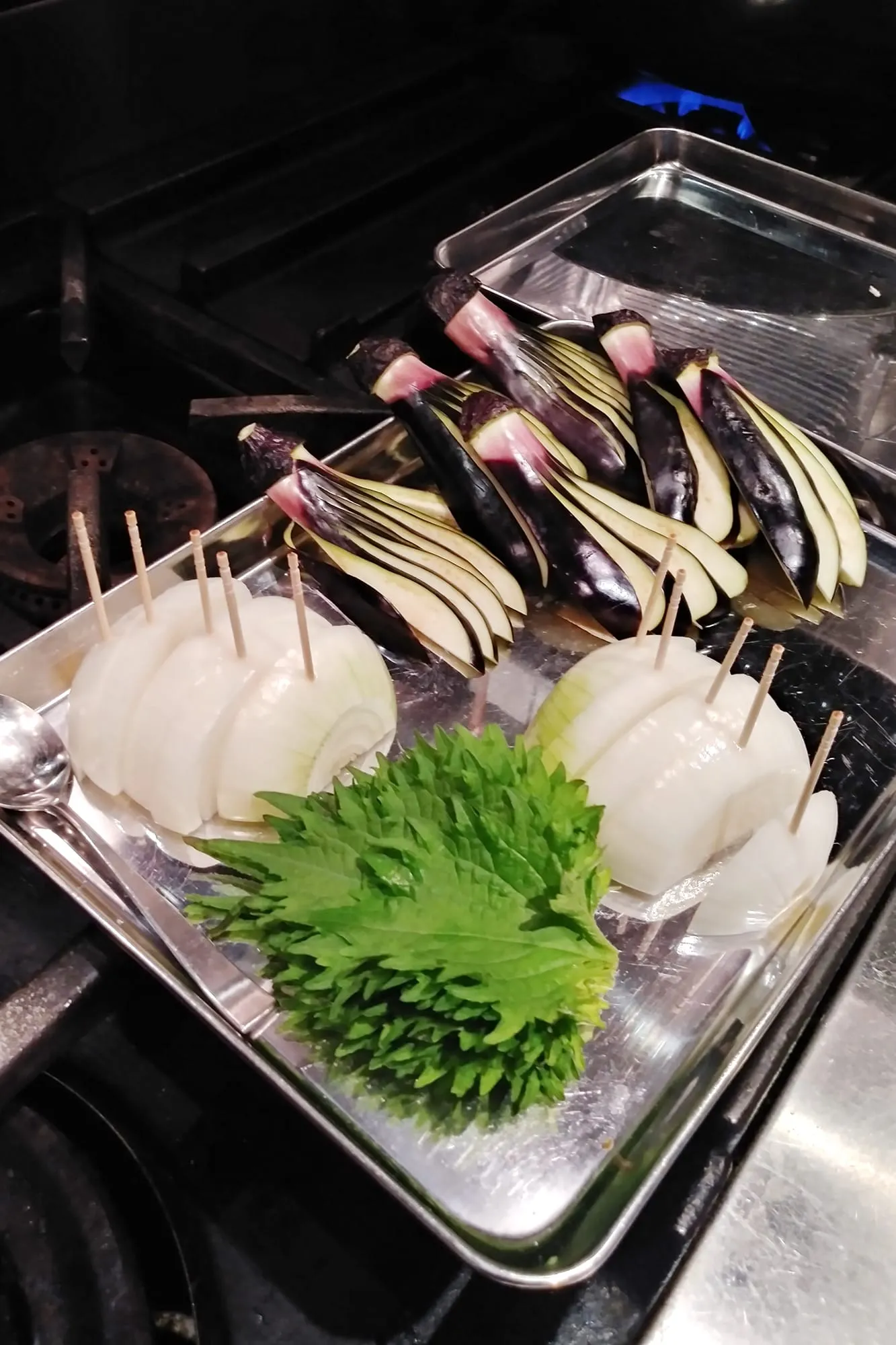
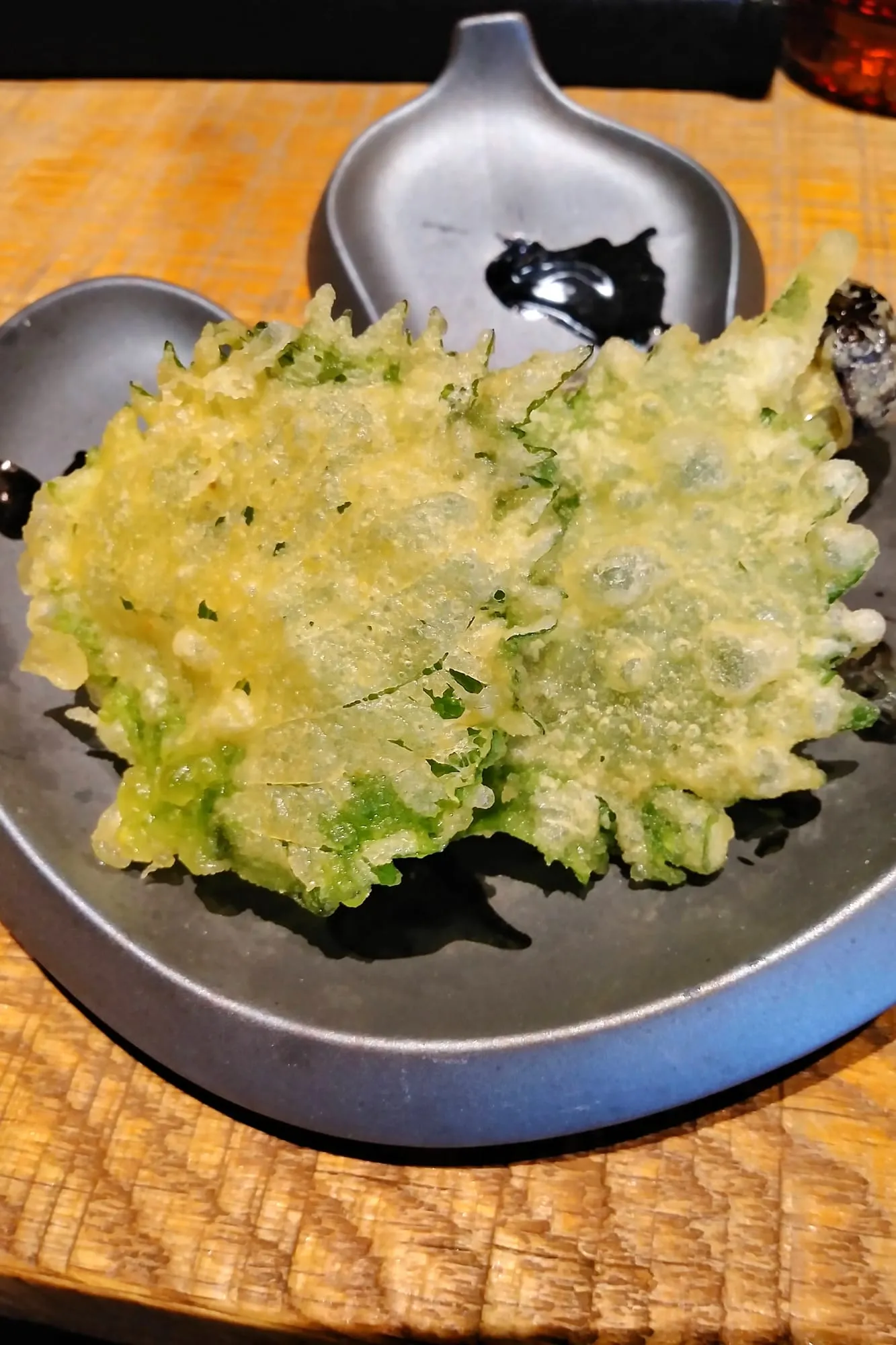
The lesson moves on to tempura, where she learns the key points of making tempura using various ingredients.
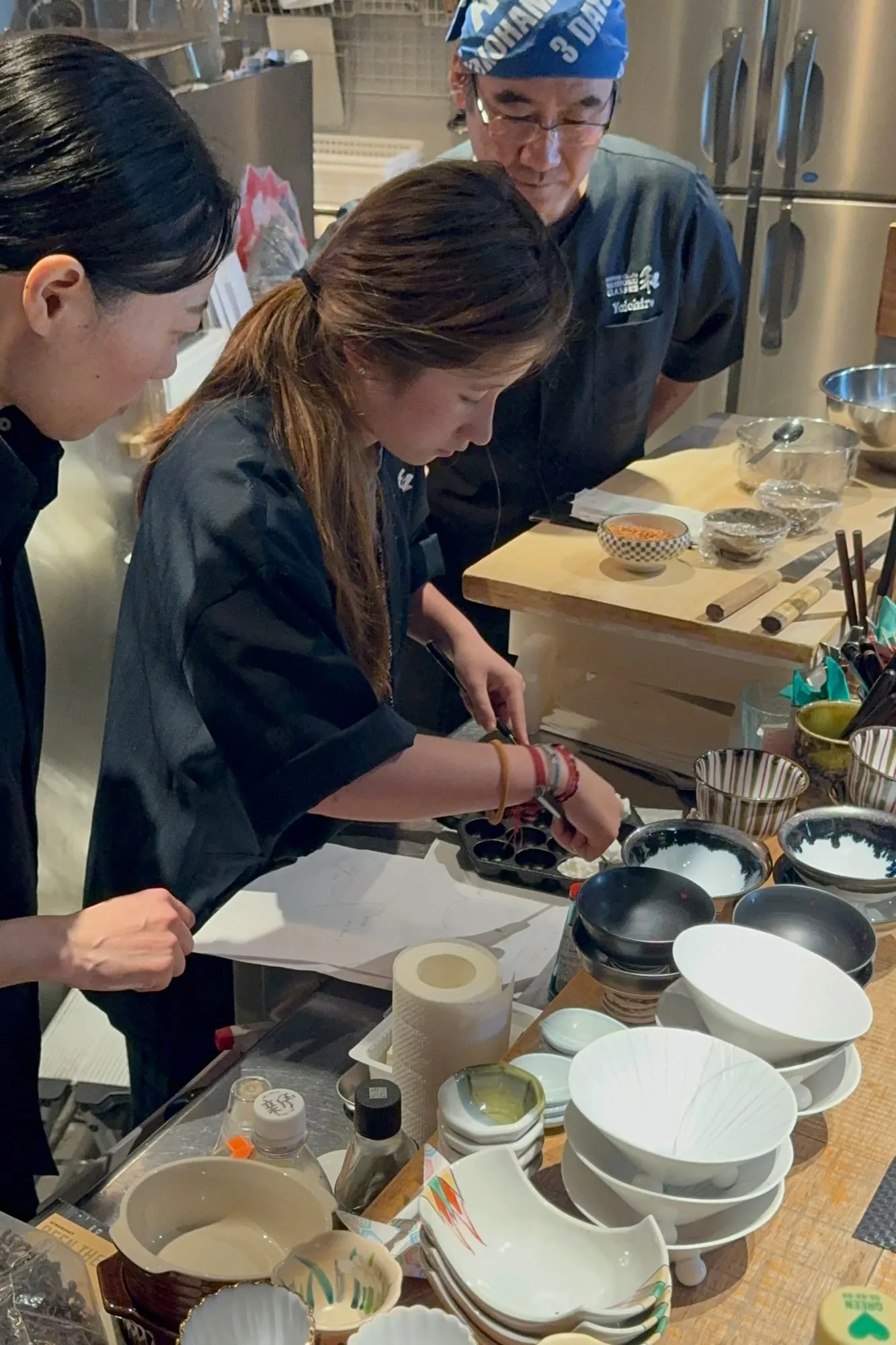
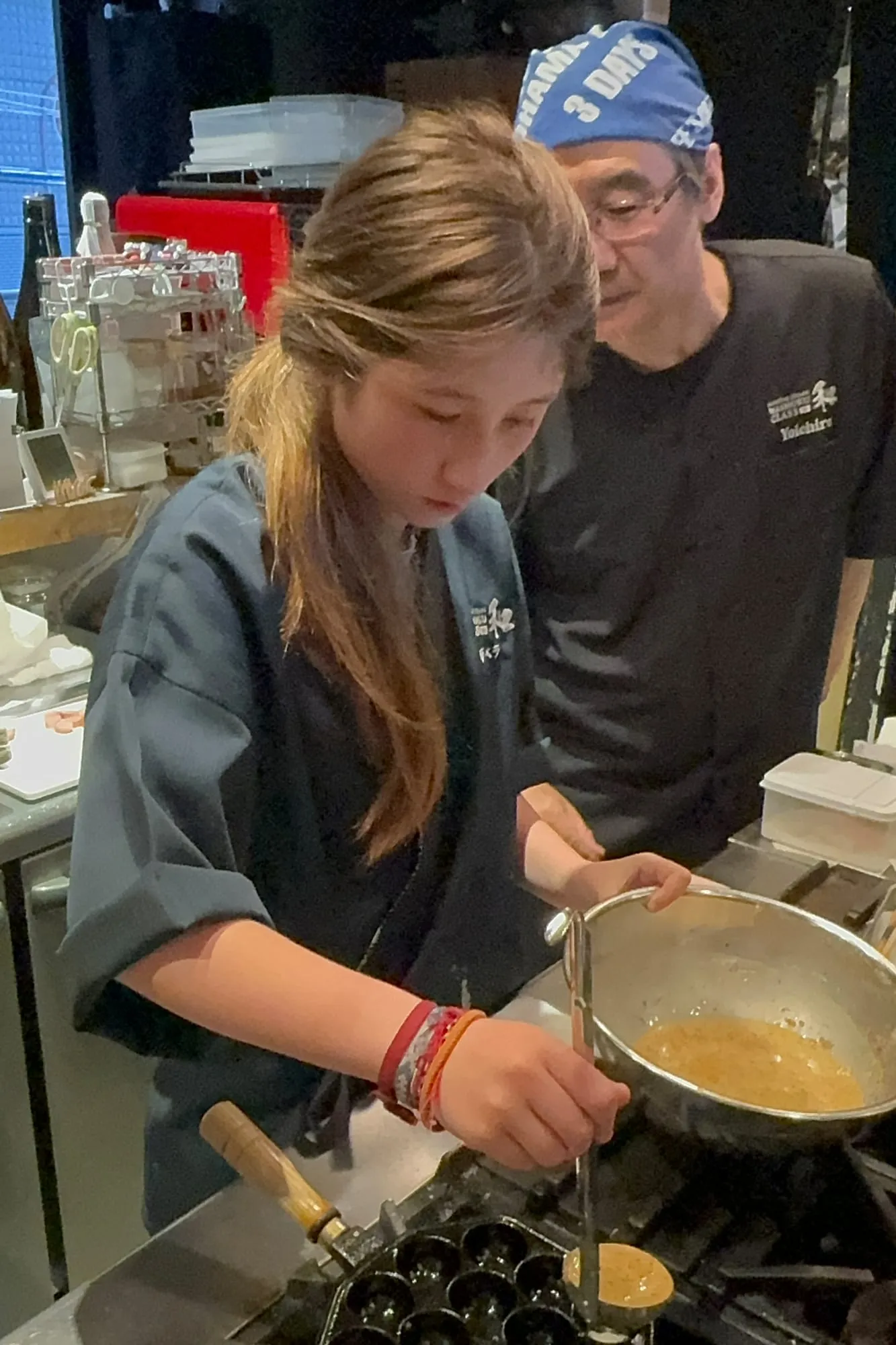
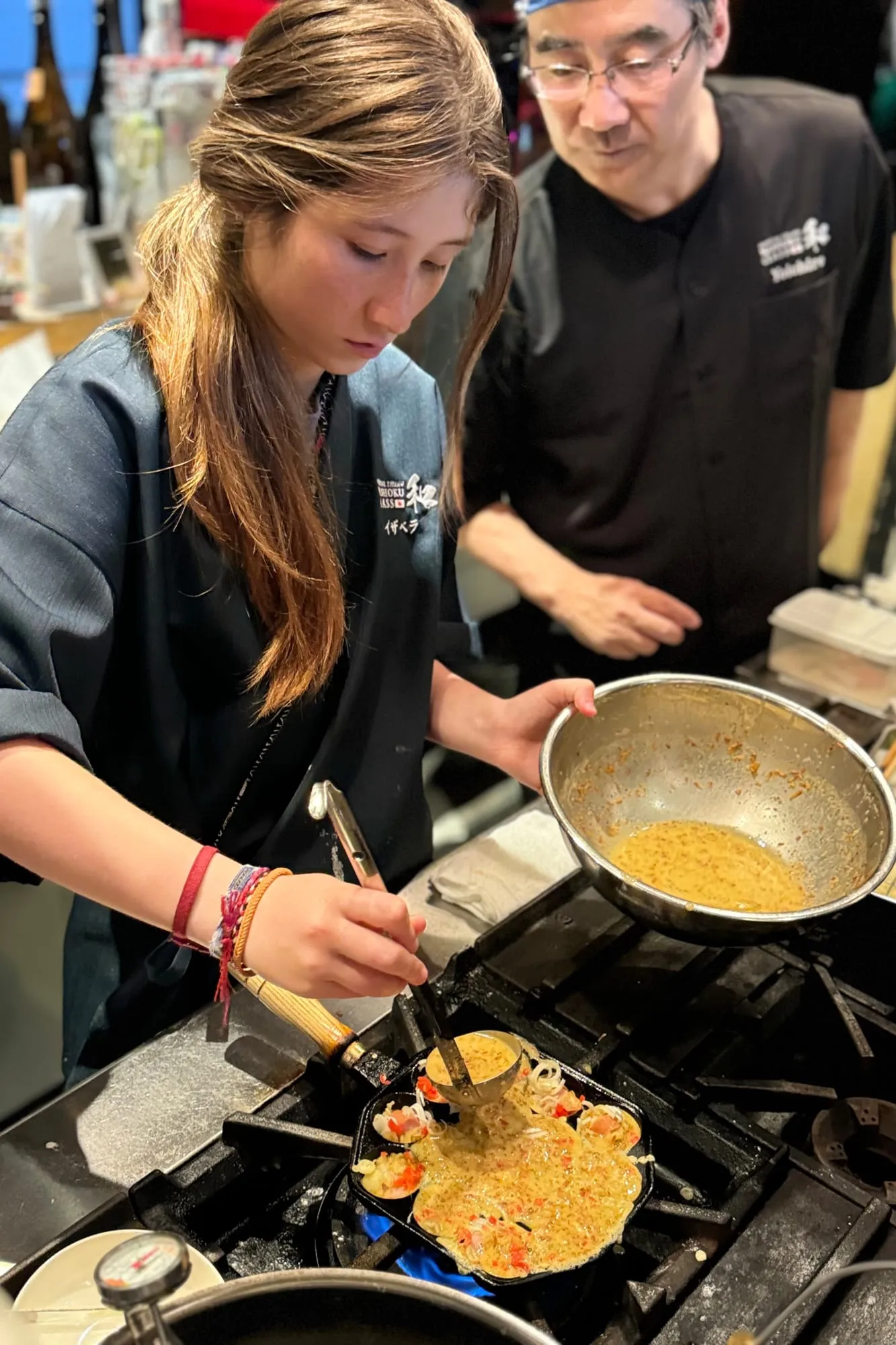
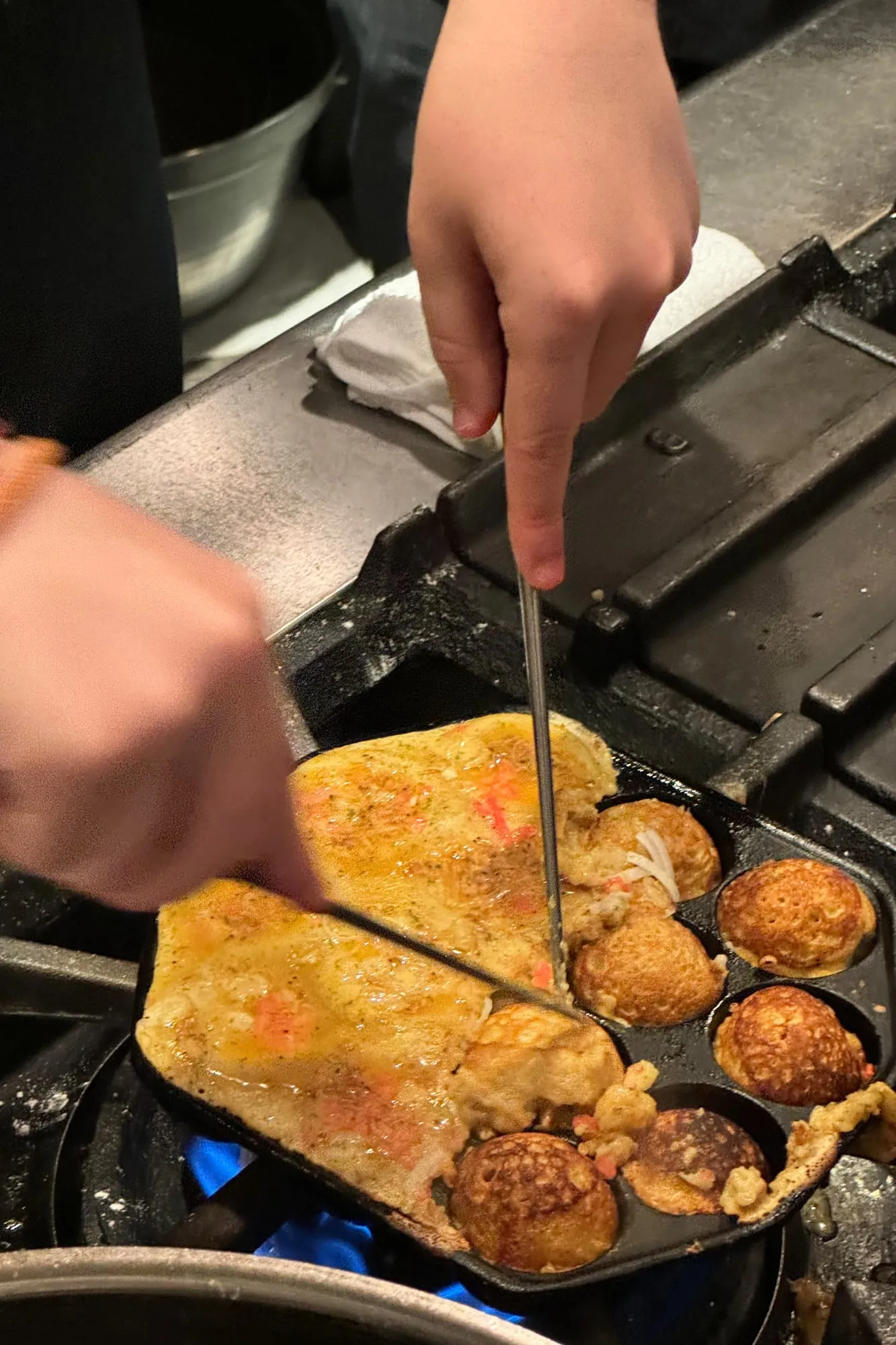
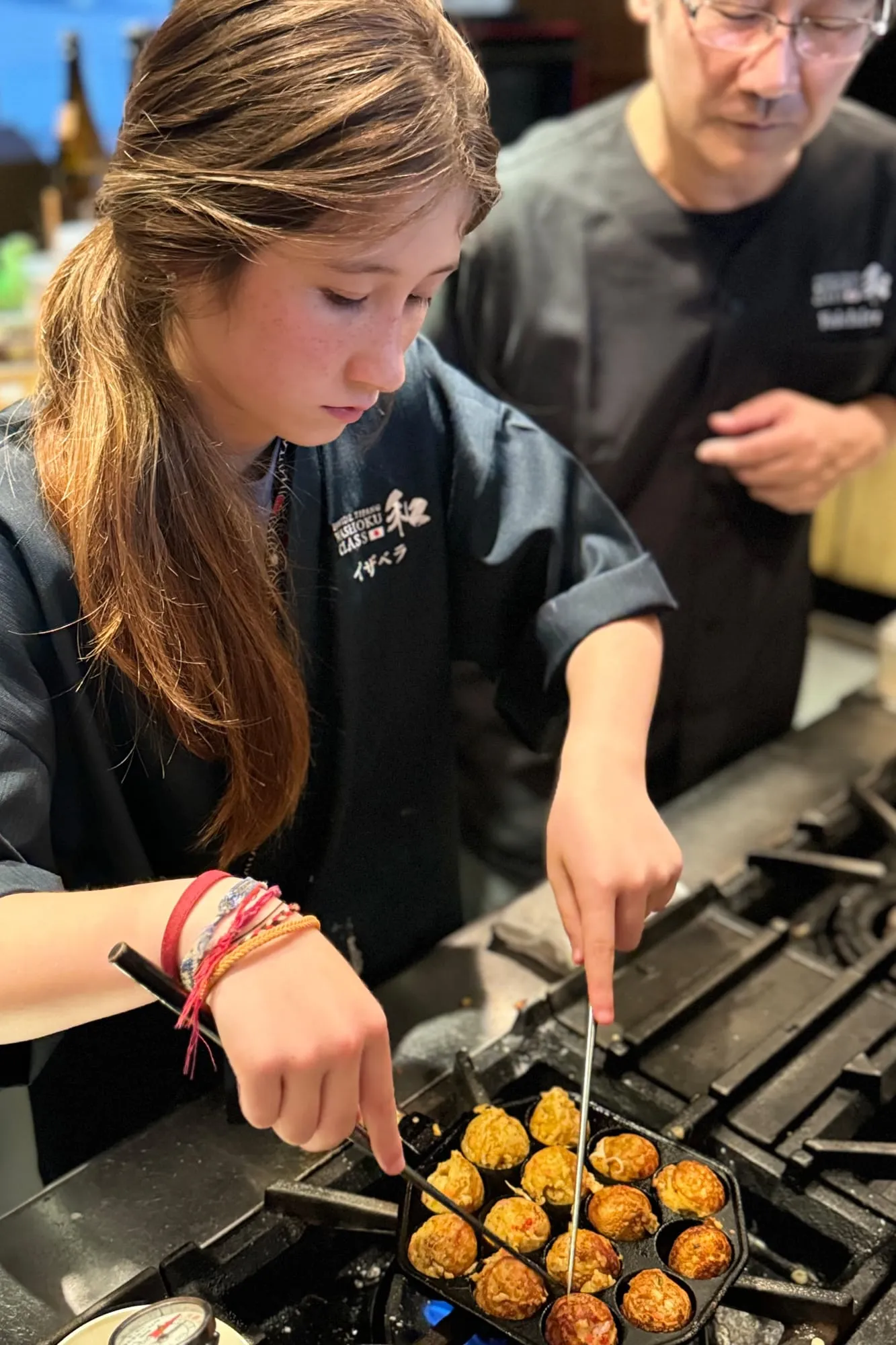
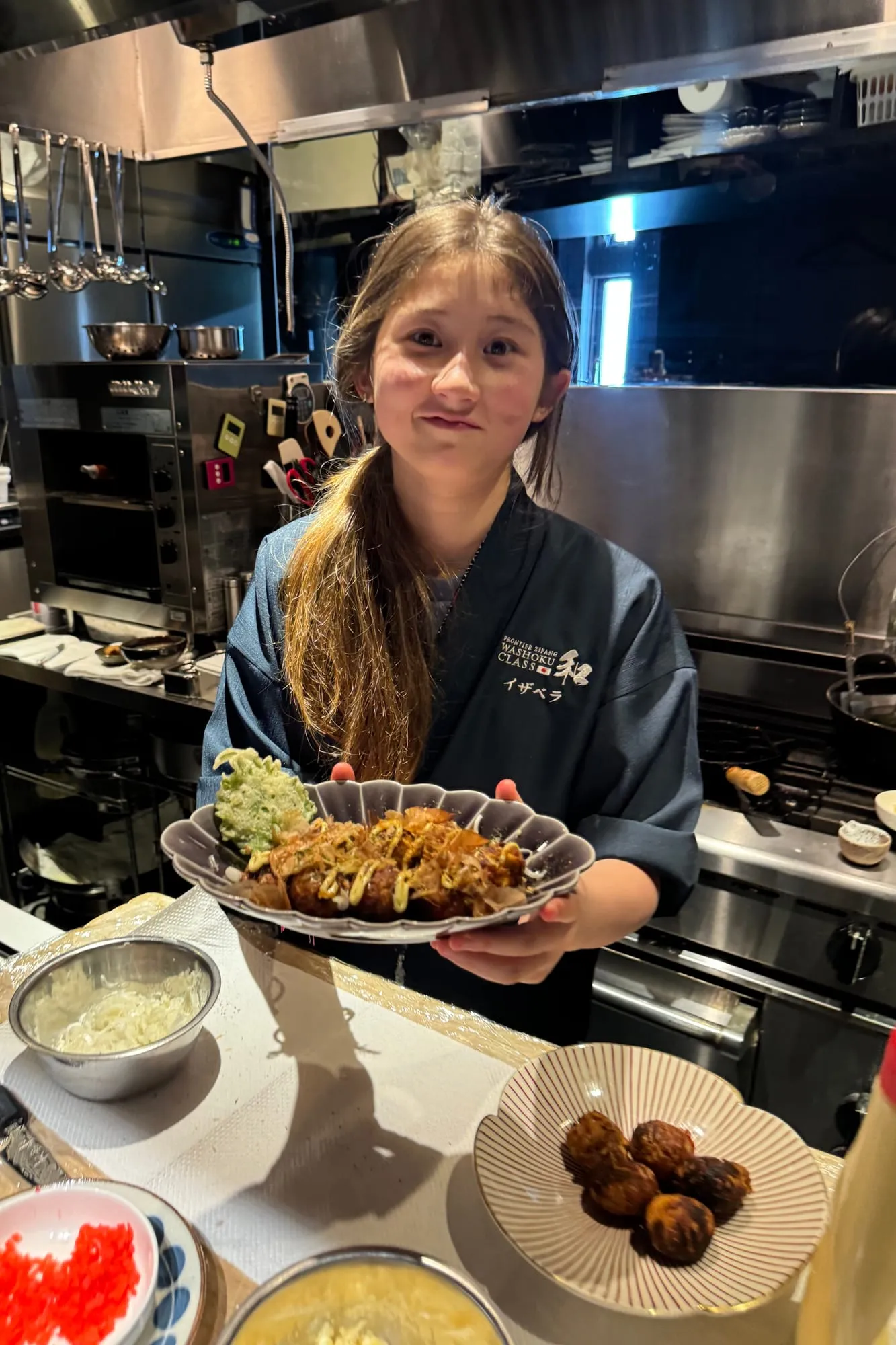
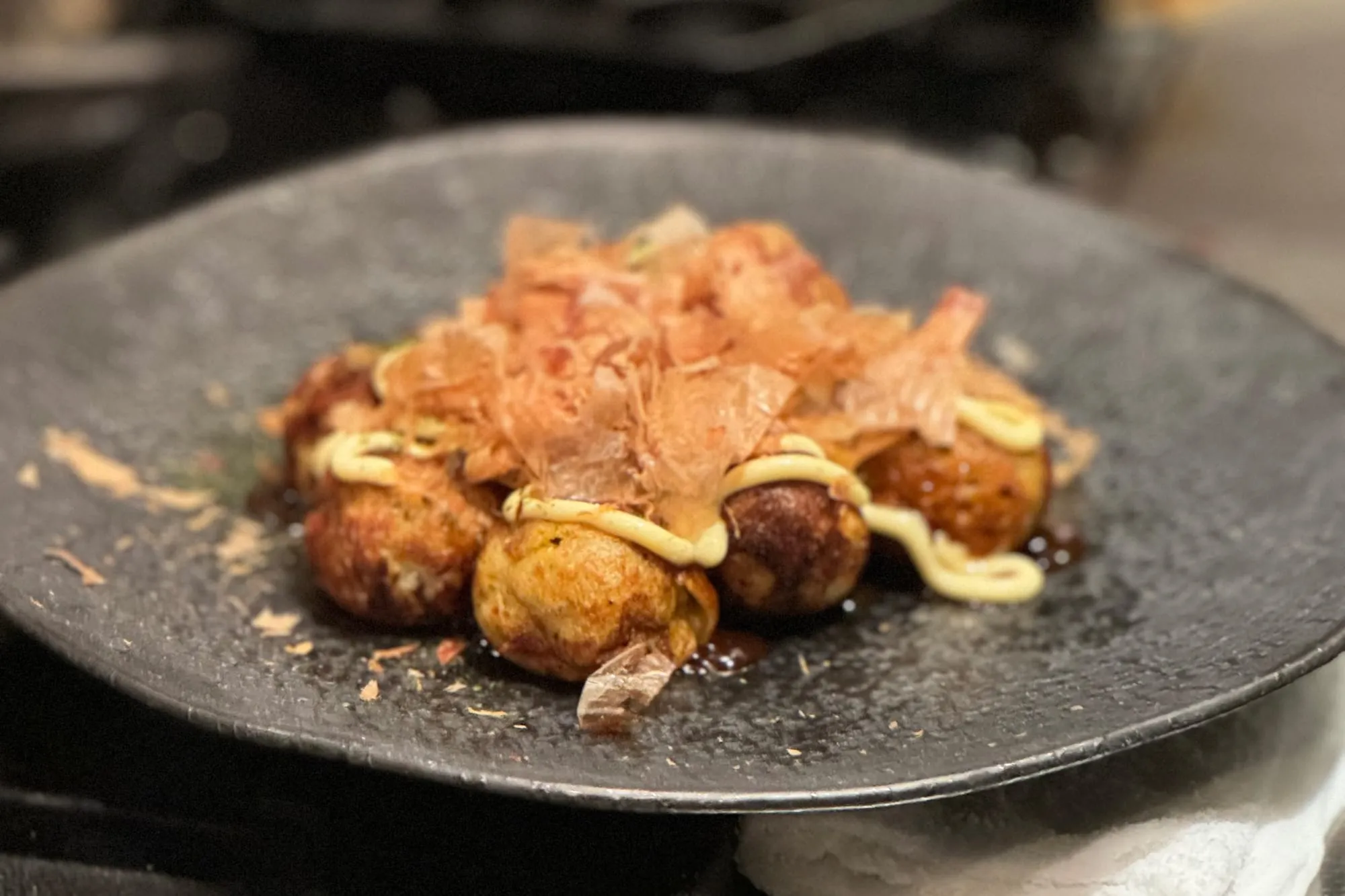
This time, there is a special lesson on making takoyaki. After practicing how to flip the batter with skewers, she proceeds to cook it. She also tries a version using sausages instead of octopus. Under the instructor’s guidance, she participates enthusiastically and seems to have a lot of fun.
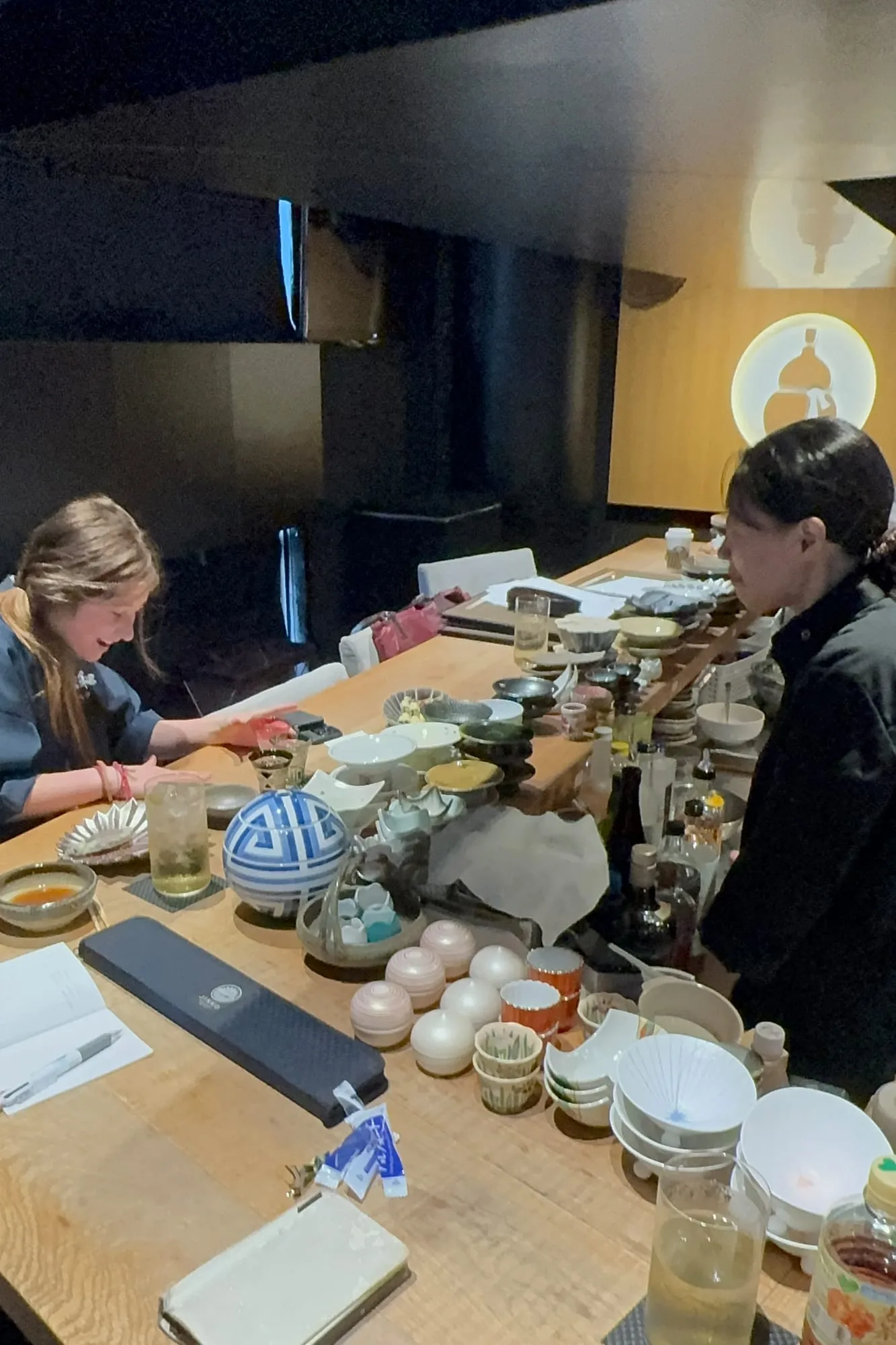
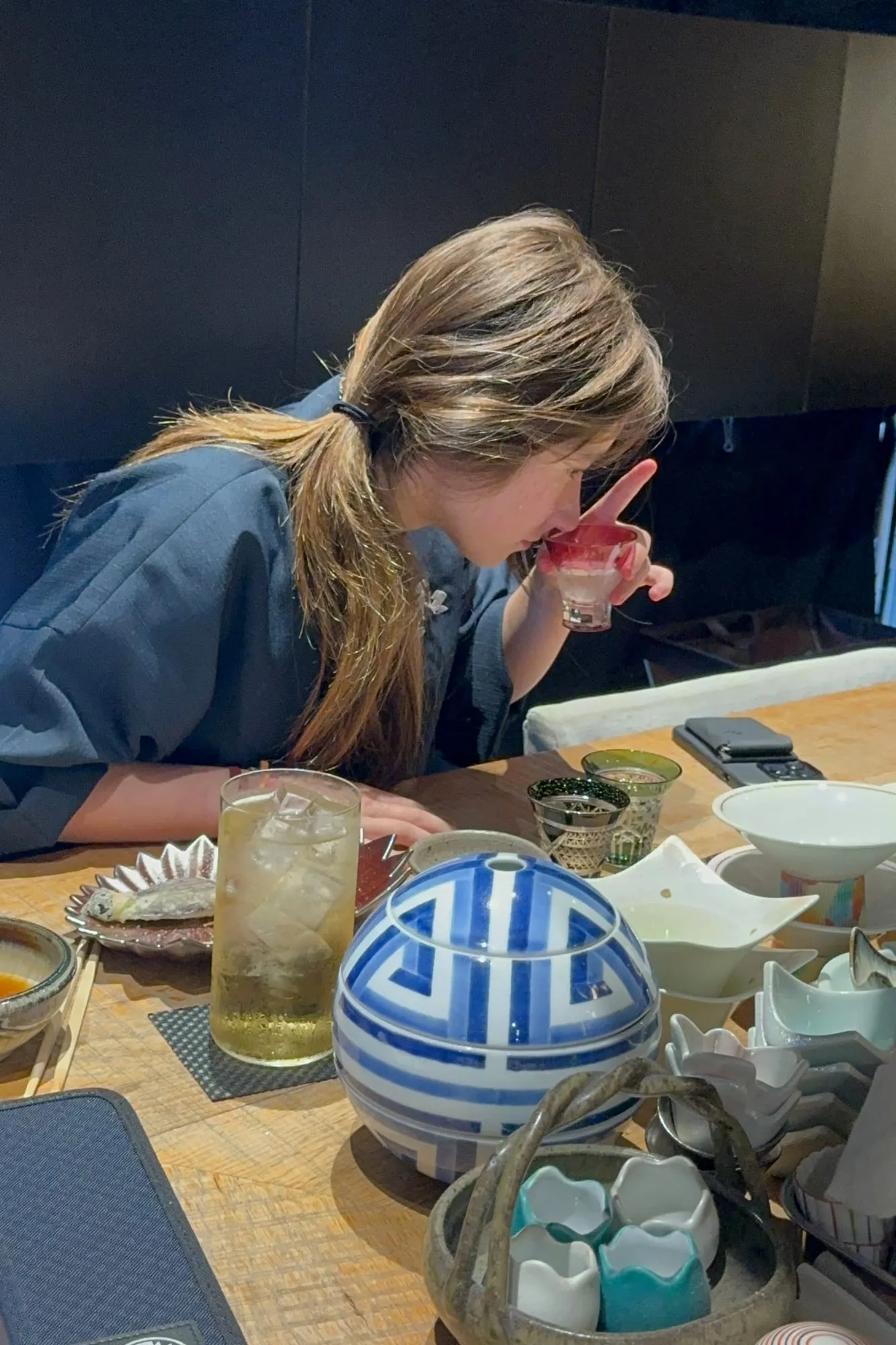
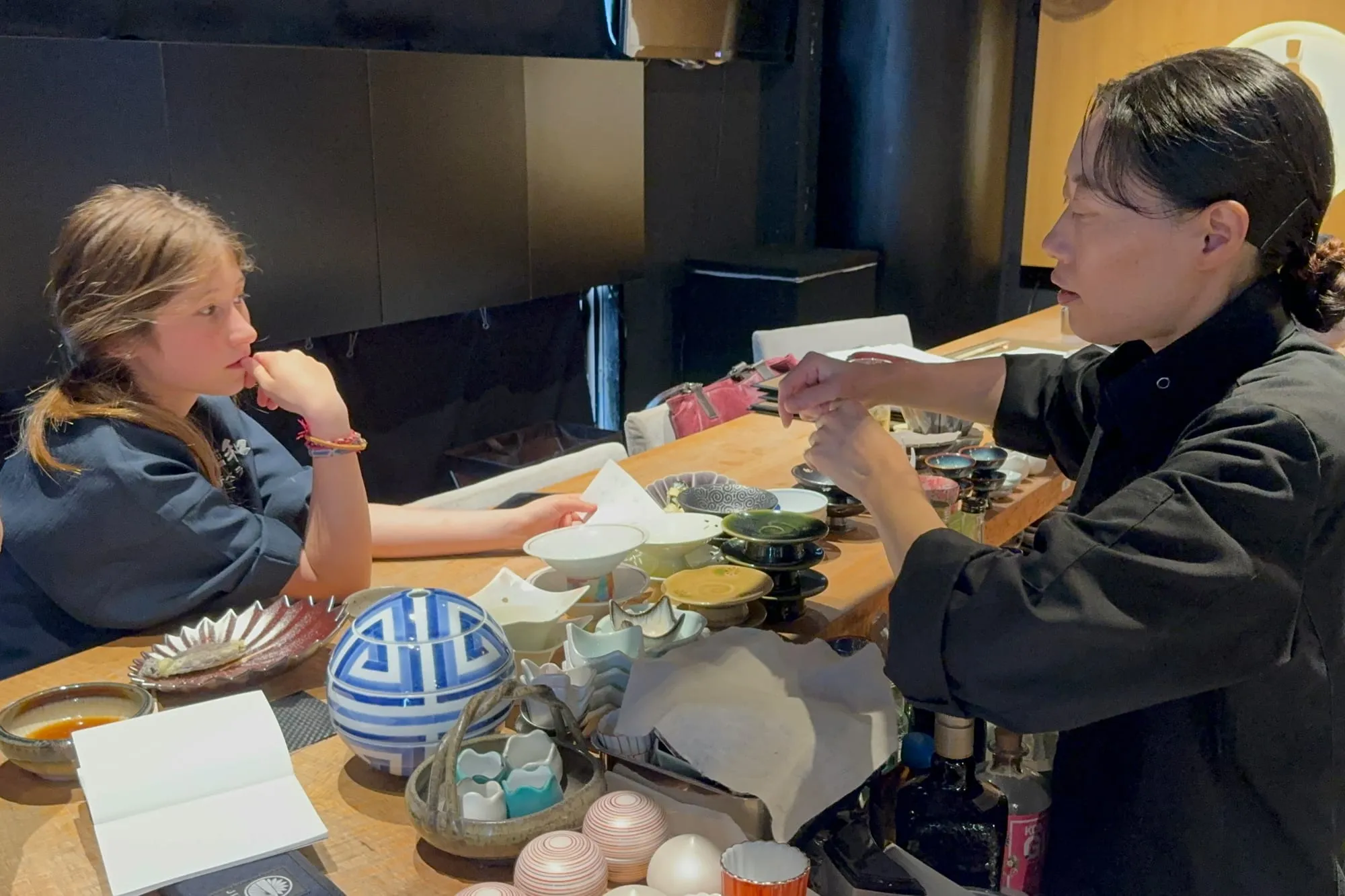
We also have a sake tasting lesson. Since Isabella is still a minor, she can’t drink, but the instructor provides detailed explanations to deepen her understanding. Ideally, tasting and pairing would enhance the learning experience even further.
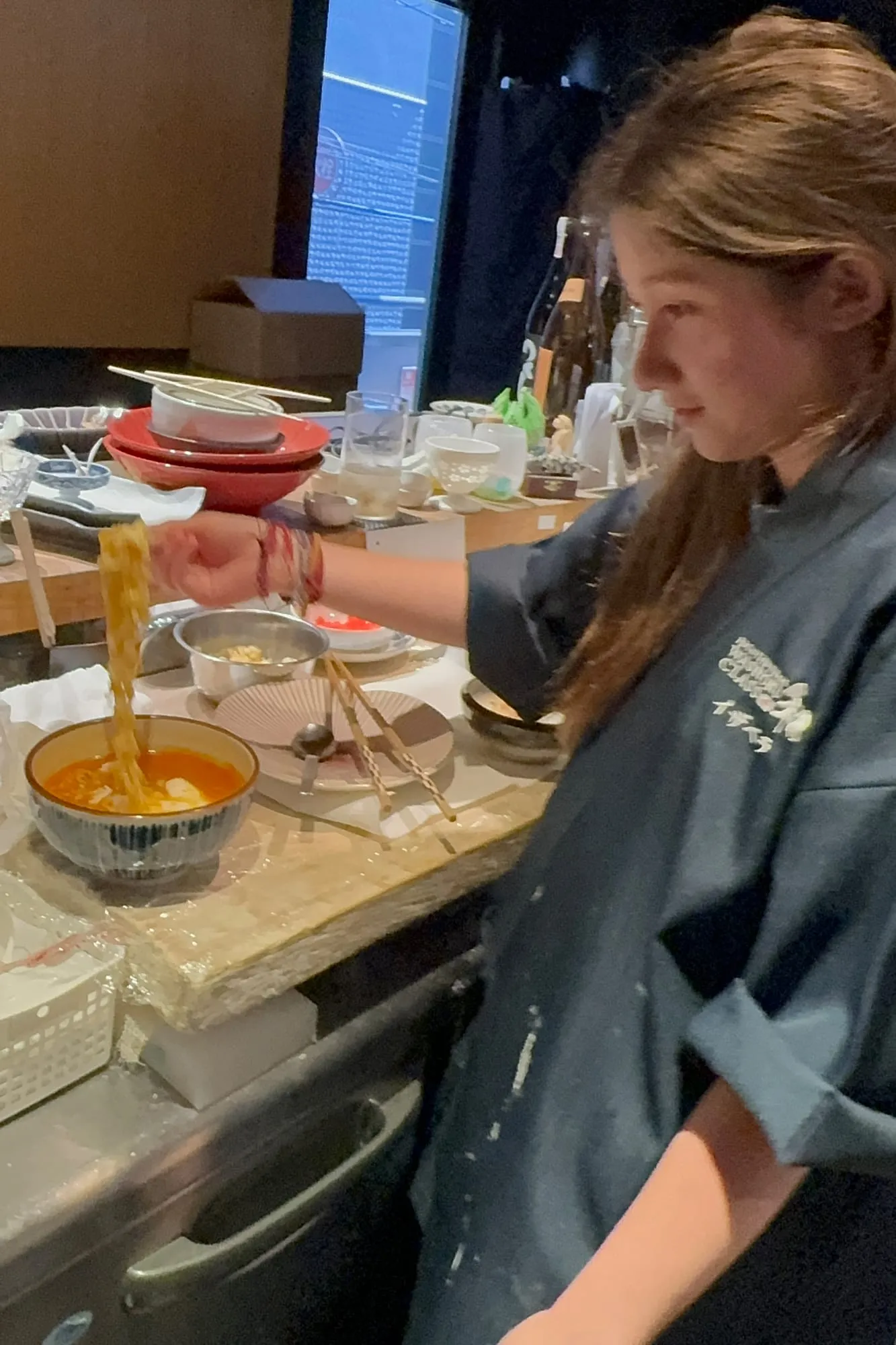
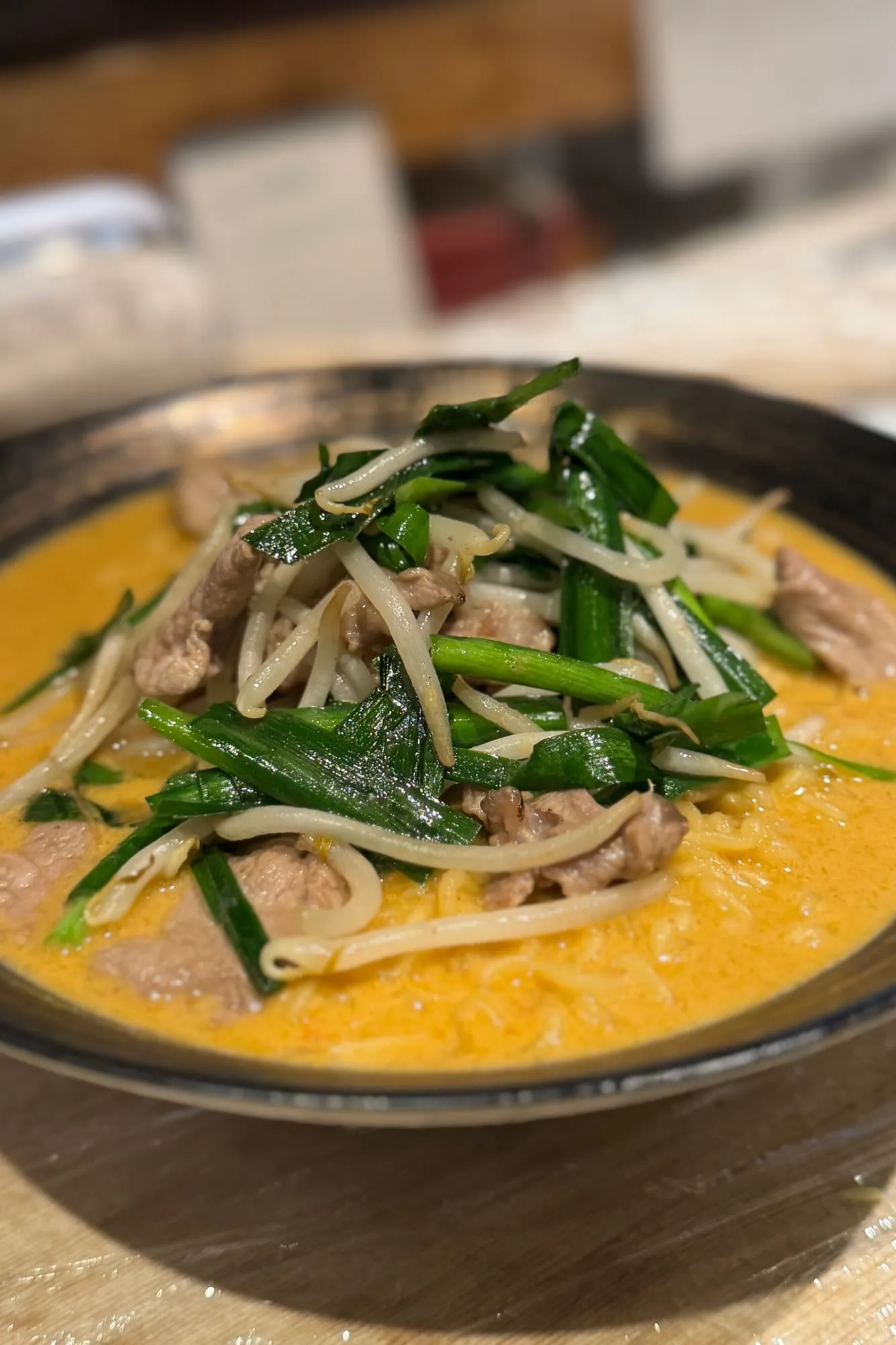
As a bonus, the instructor teaches Isabella how to arrange her favorite instant ramen. After seeing the instructor’s variations, she seems inspired with ideas of her own. It’s clear that she truly loves cooking.
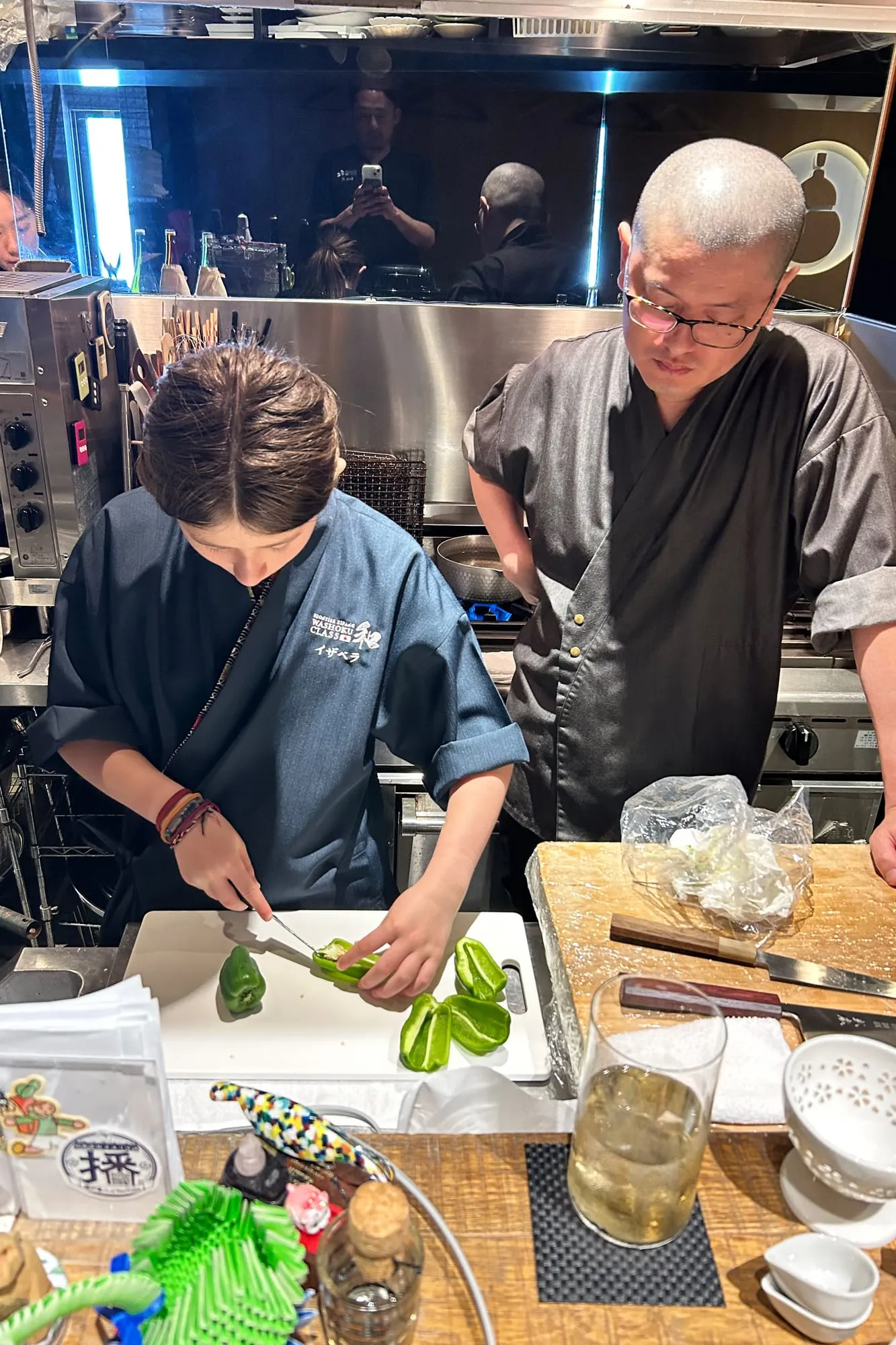
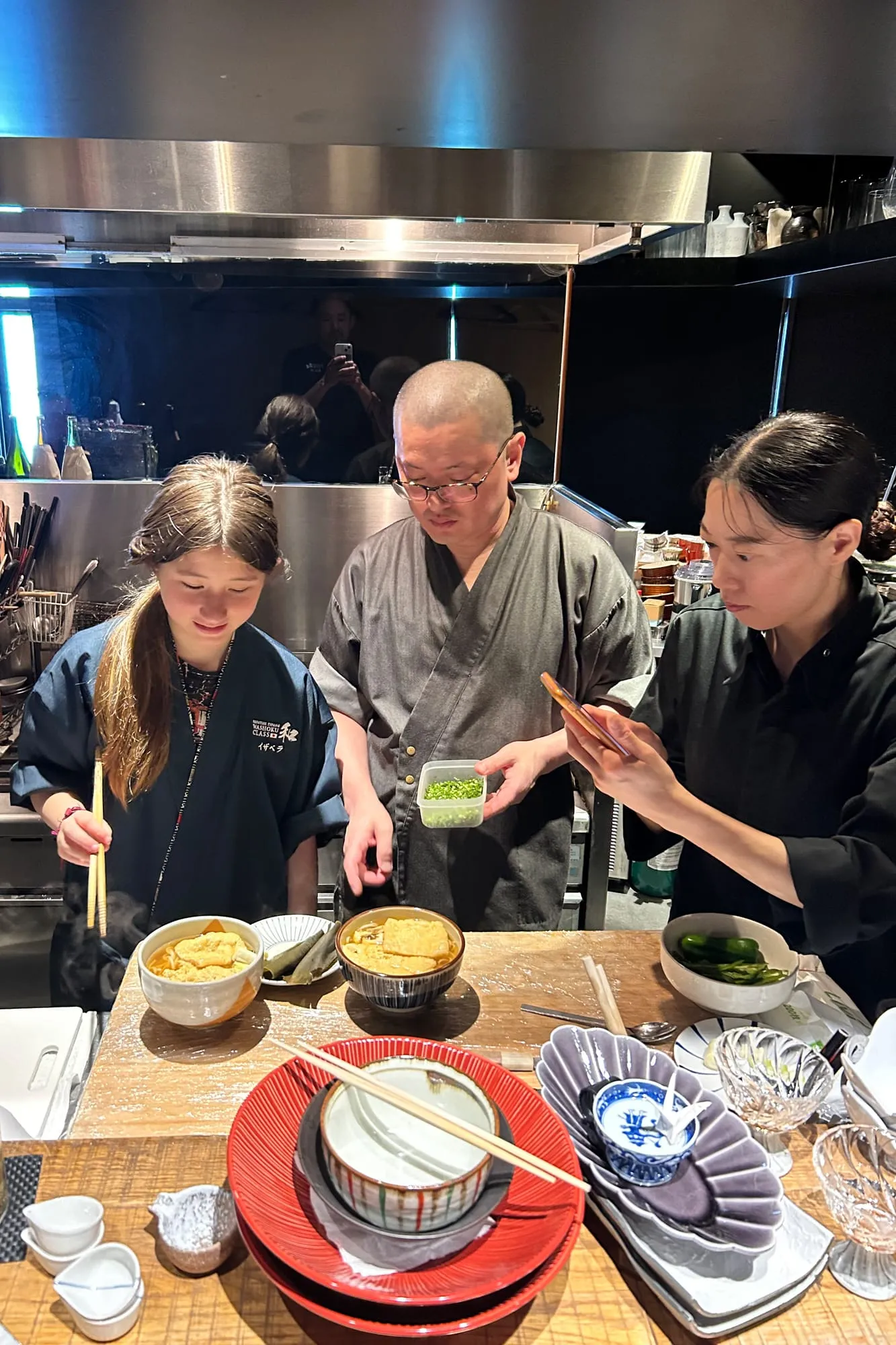
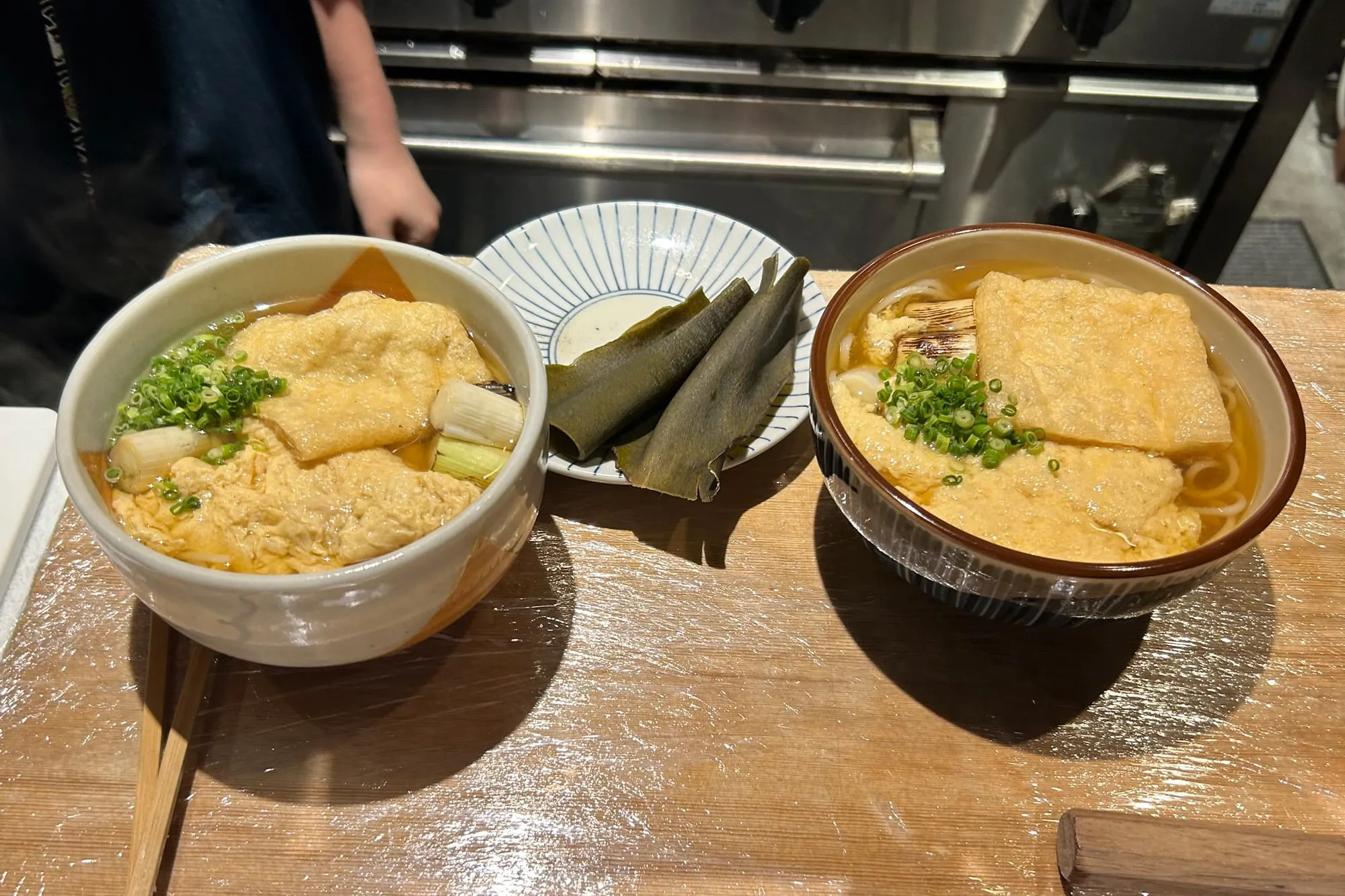
The main lesson of the day starts with udon, both cold and hot varieties. But before that, she begins with cutting vegetables for the lesson. It feels like an extension of the daily knife handling practice.
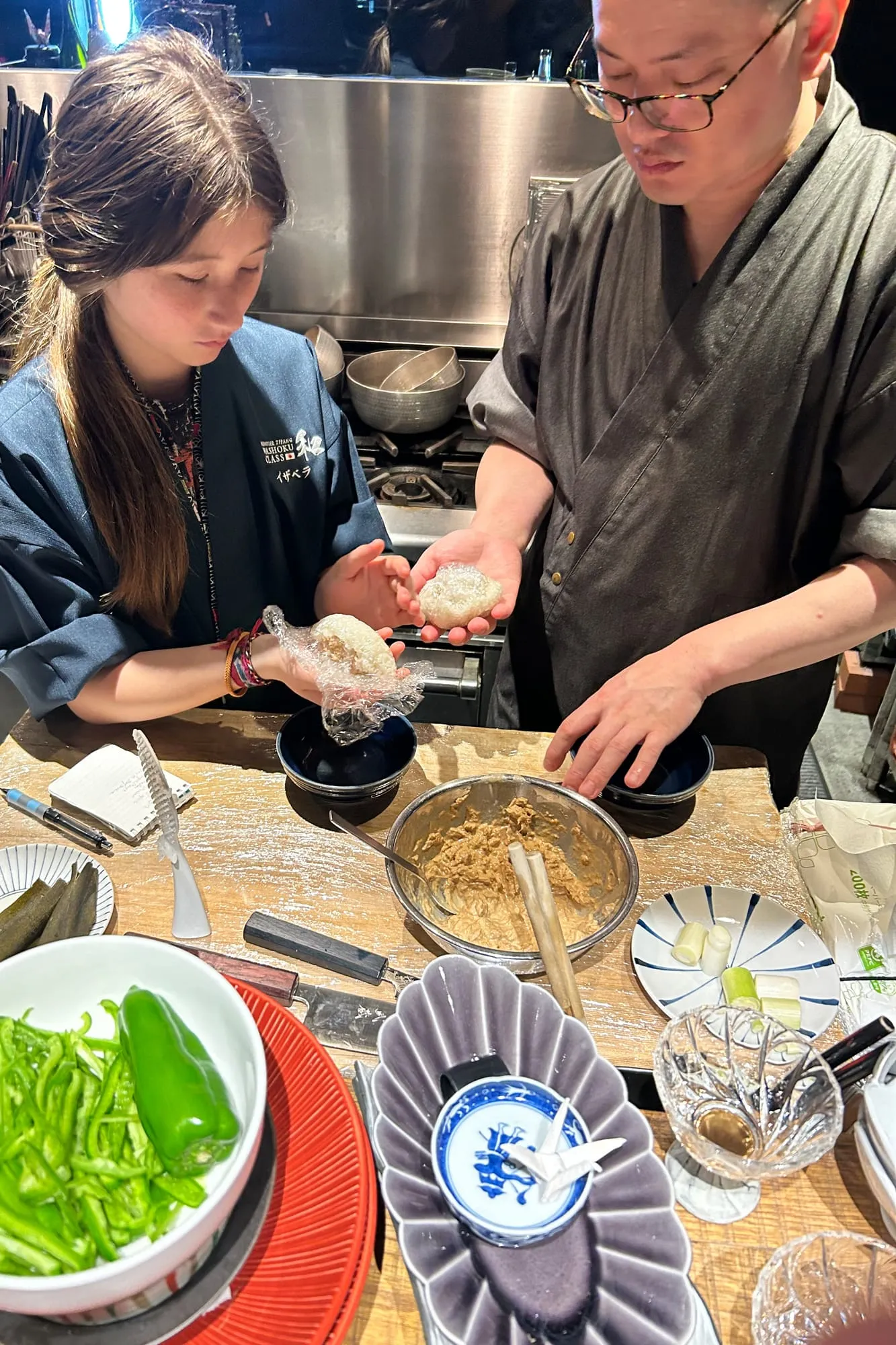
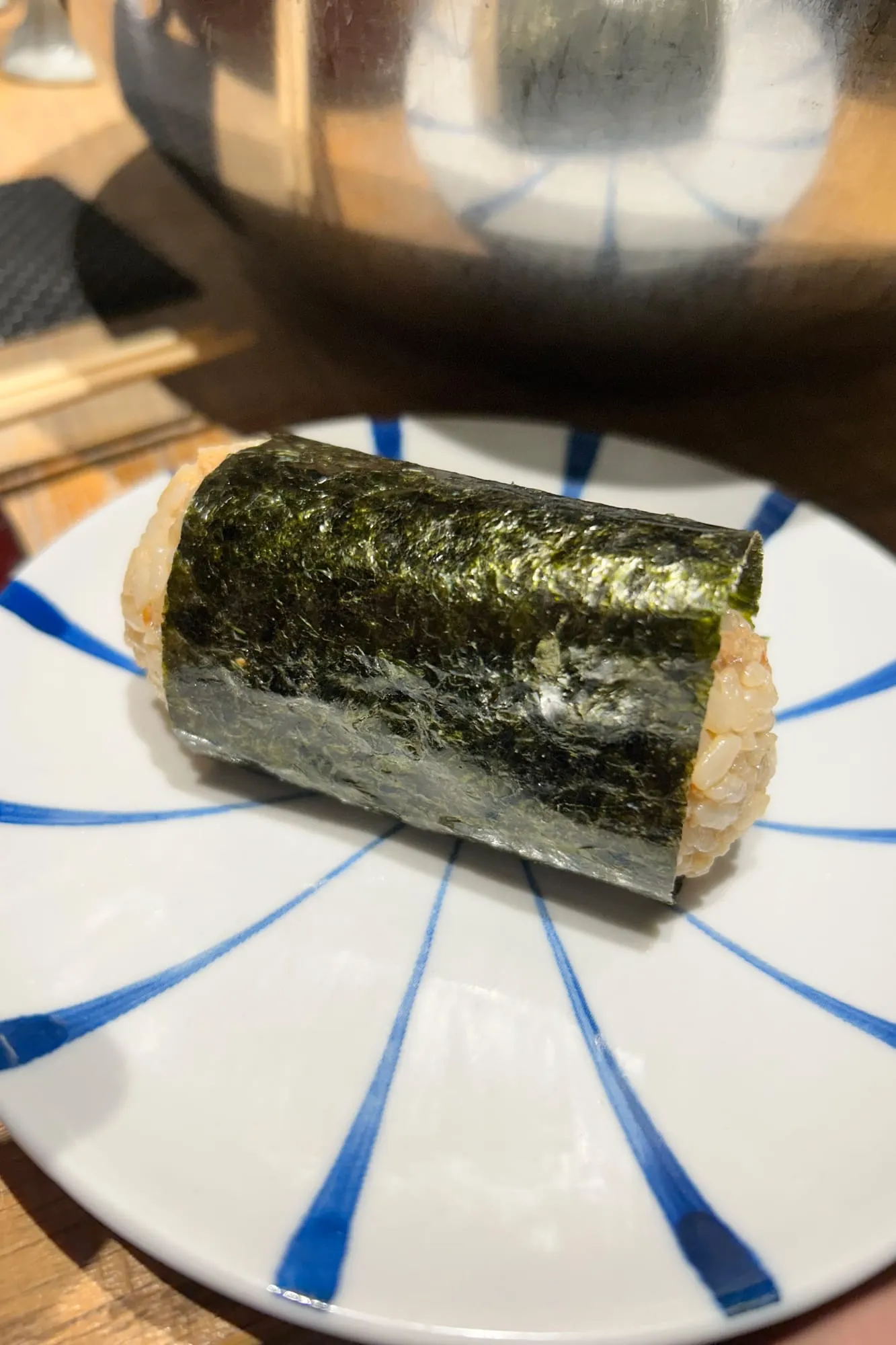
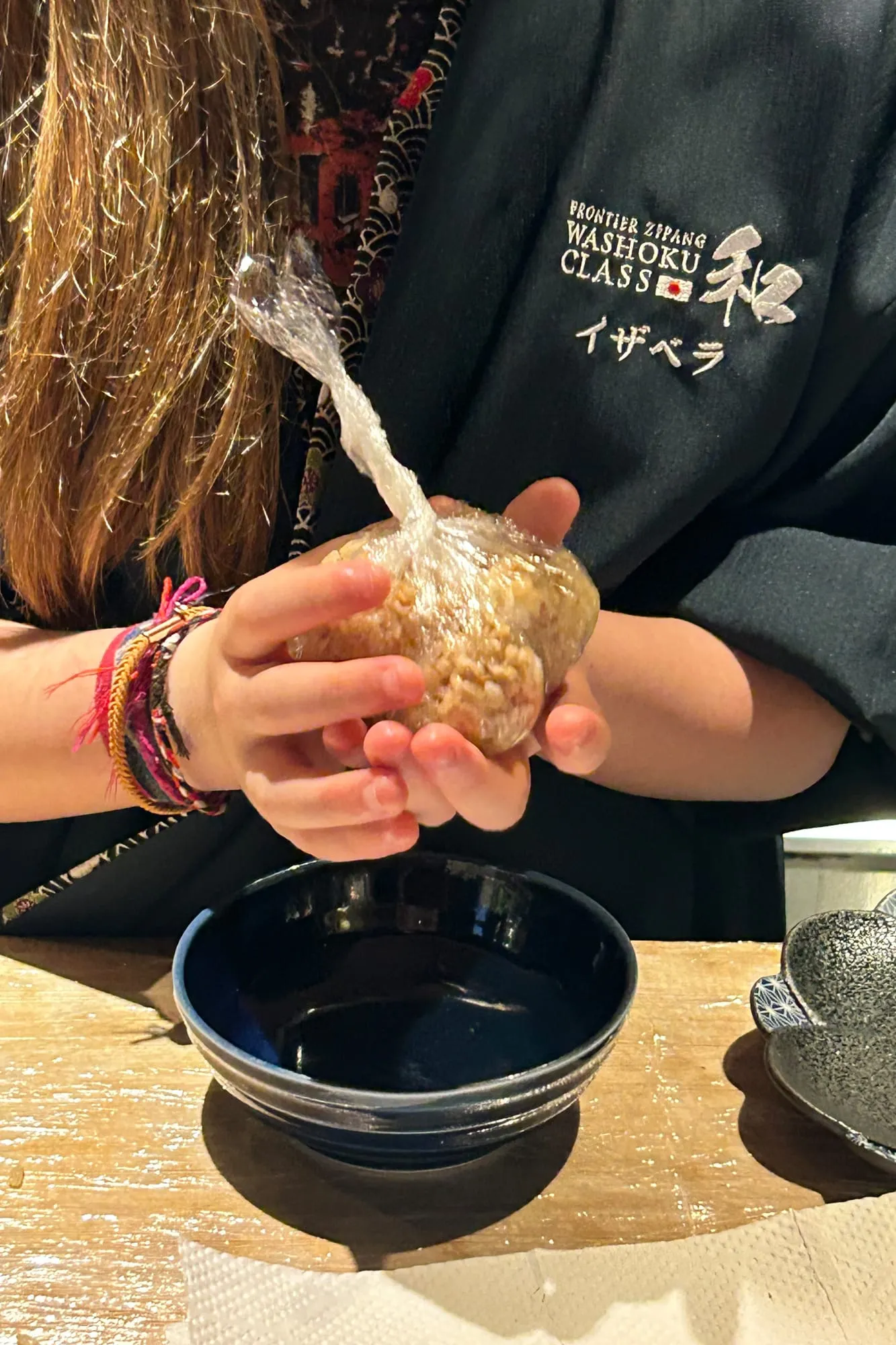
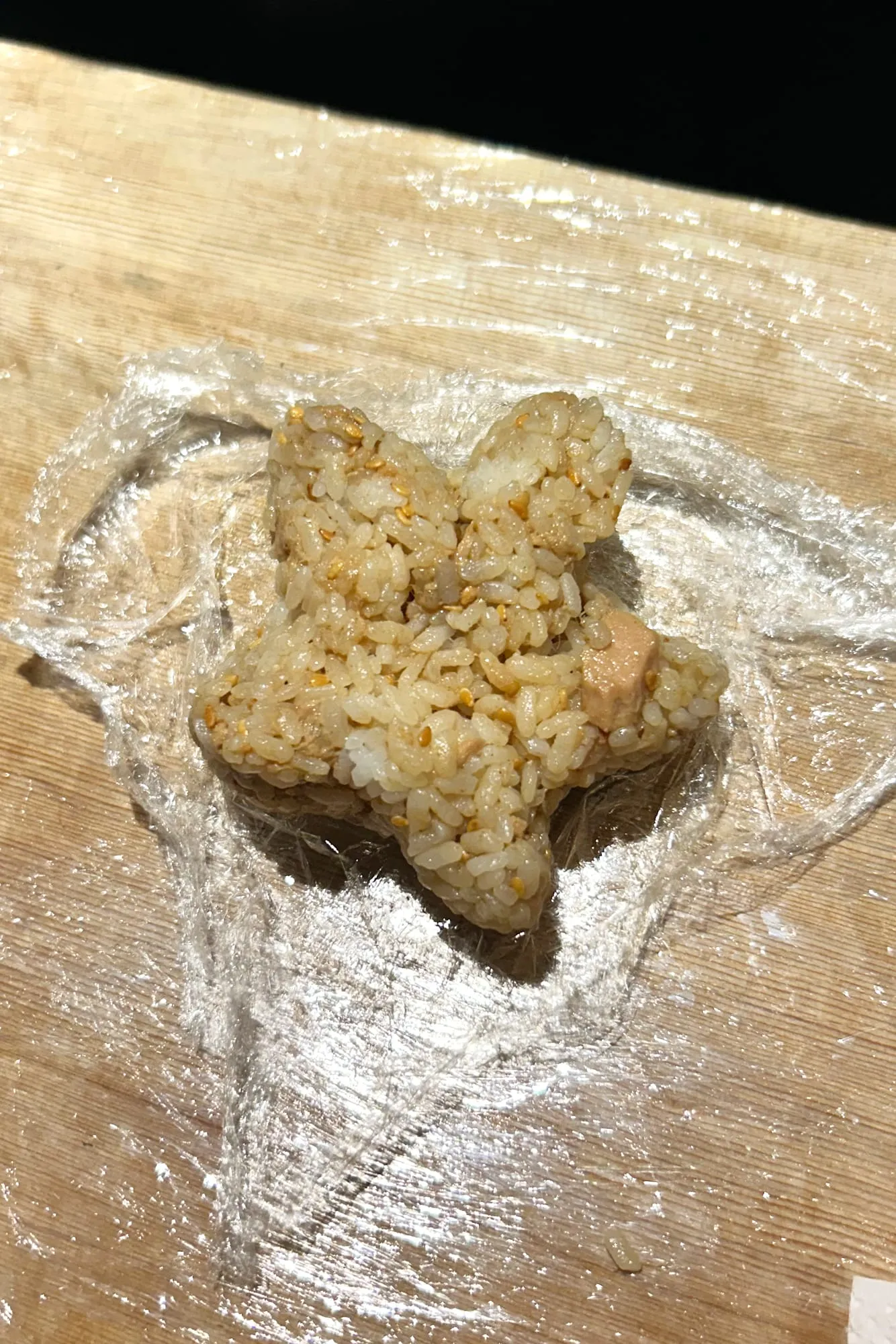
After udon, it is time for onigiri! Isabella tries making different shapes, including versions with fillings inside and mixed rice onigiri. At the instructor’s spontaneous suggestion, she even attempts star-shaped onigiri.
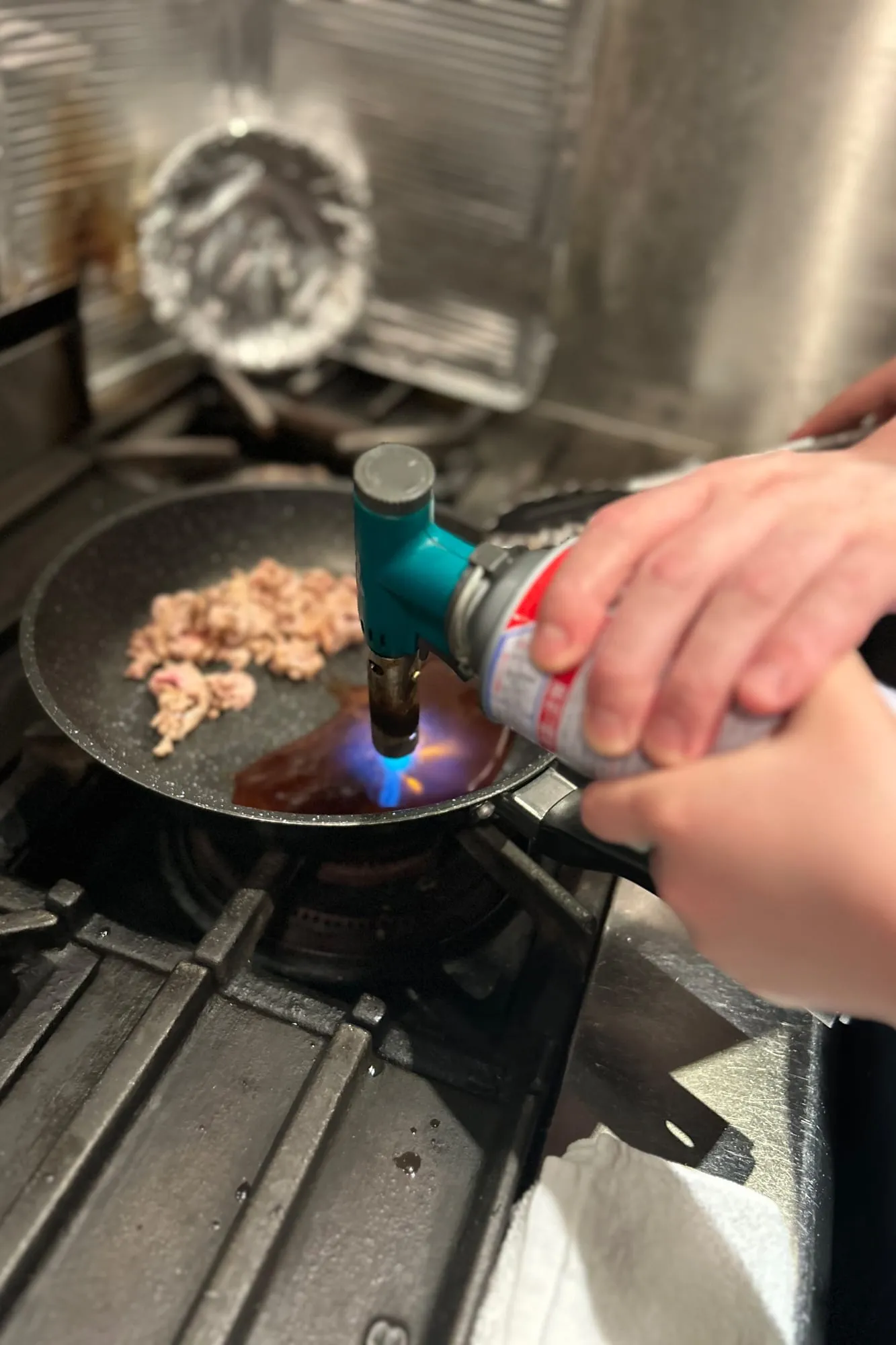
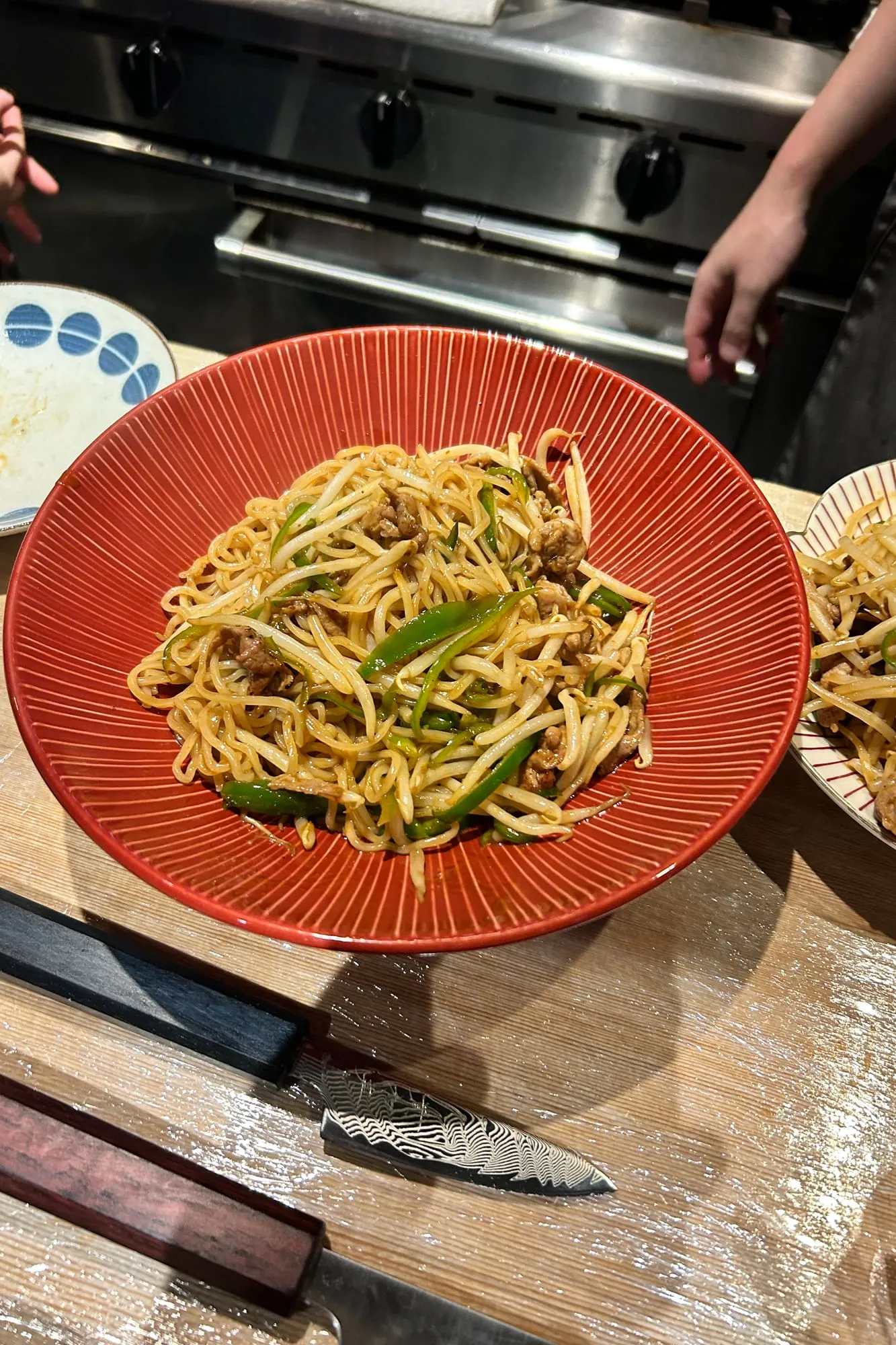
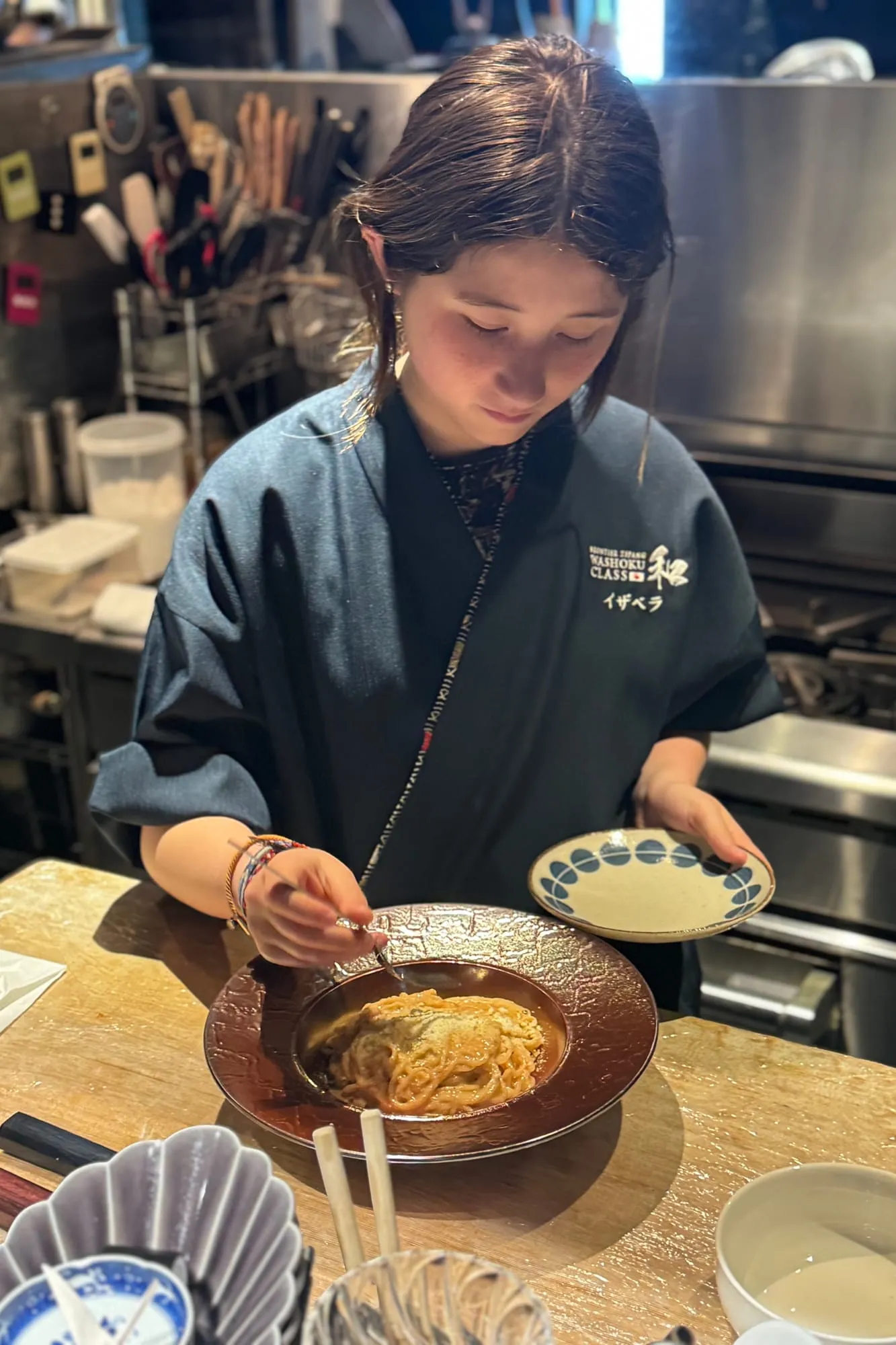
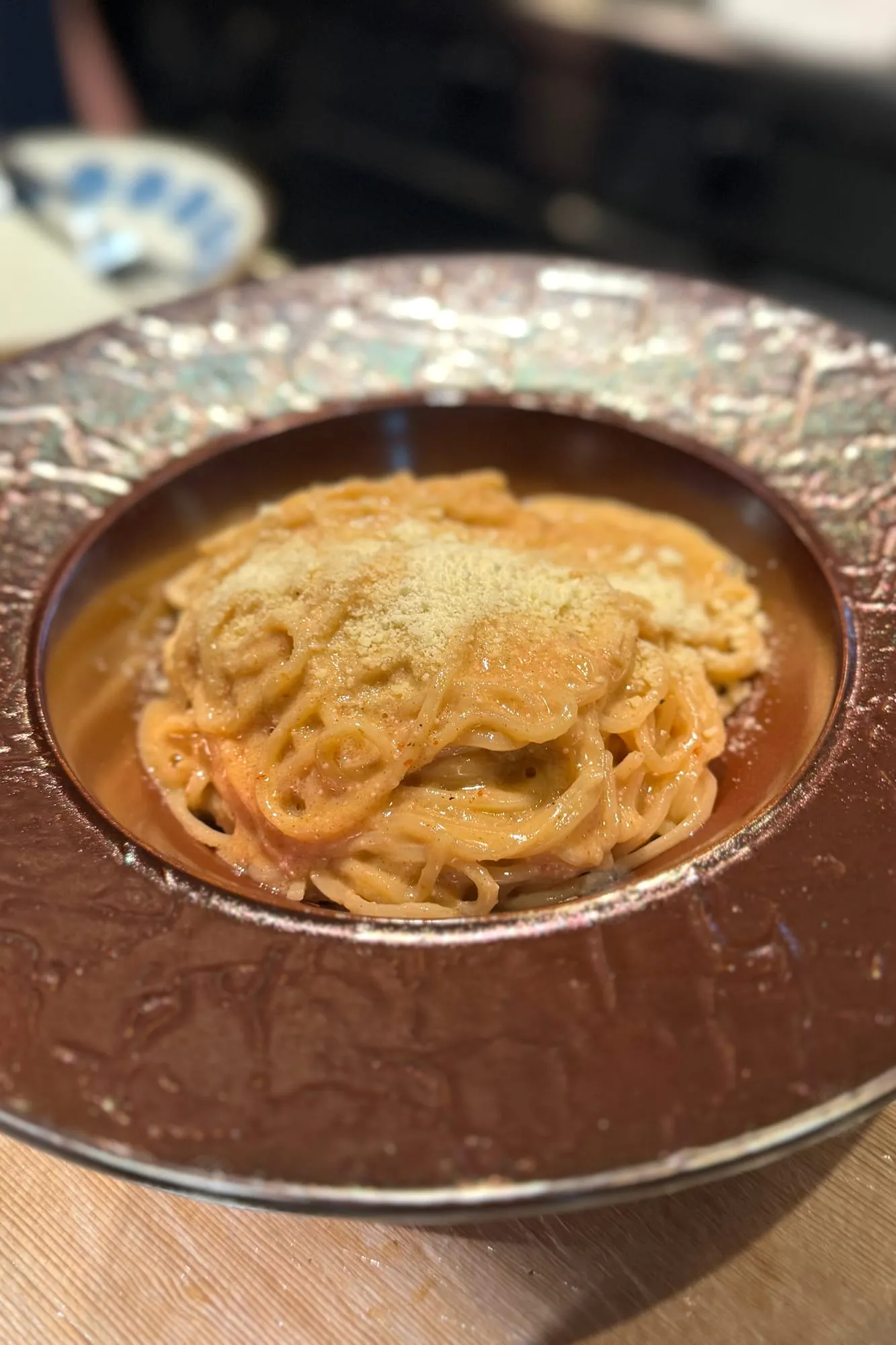
She learns how to make the instructor’s original yakisoba as well as the universally loved mentaiko pasta. Everything is so delicious that Isabella takes detailed notes, eager to try making them at home.
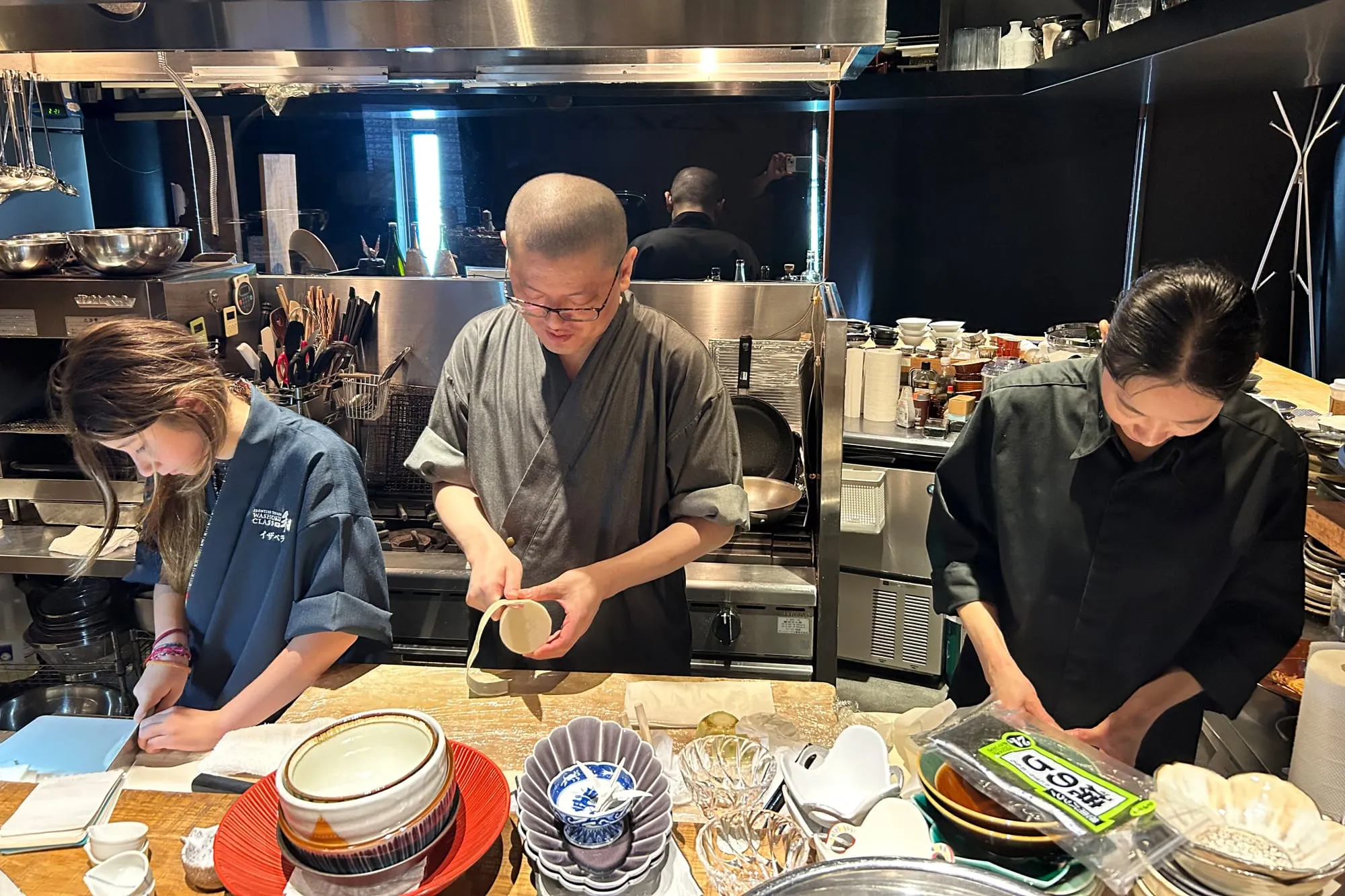
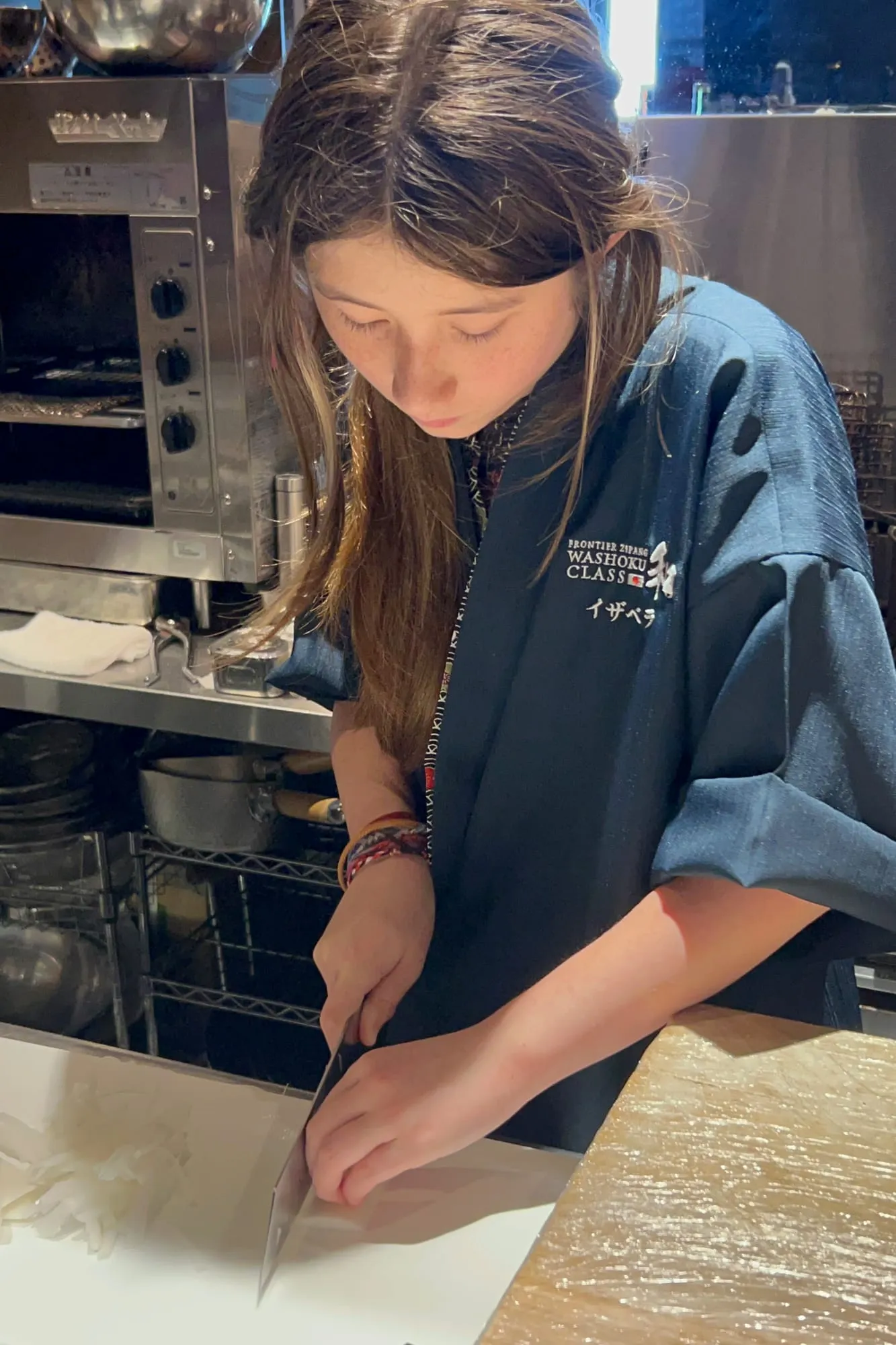
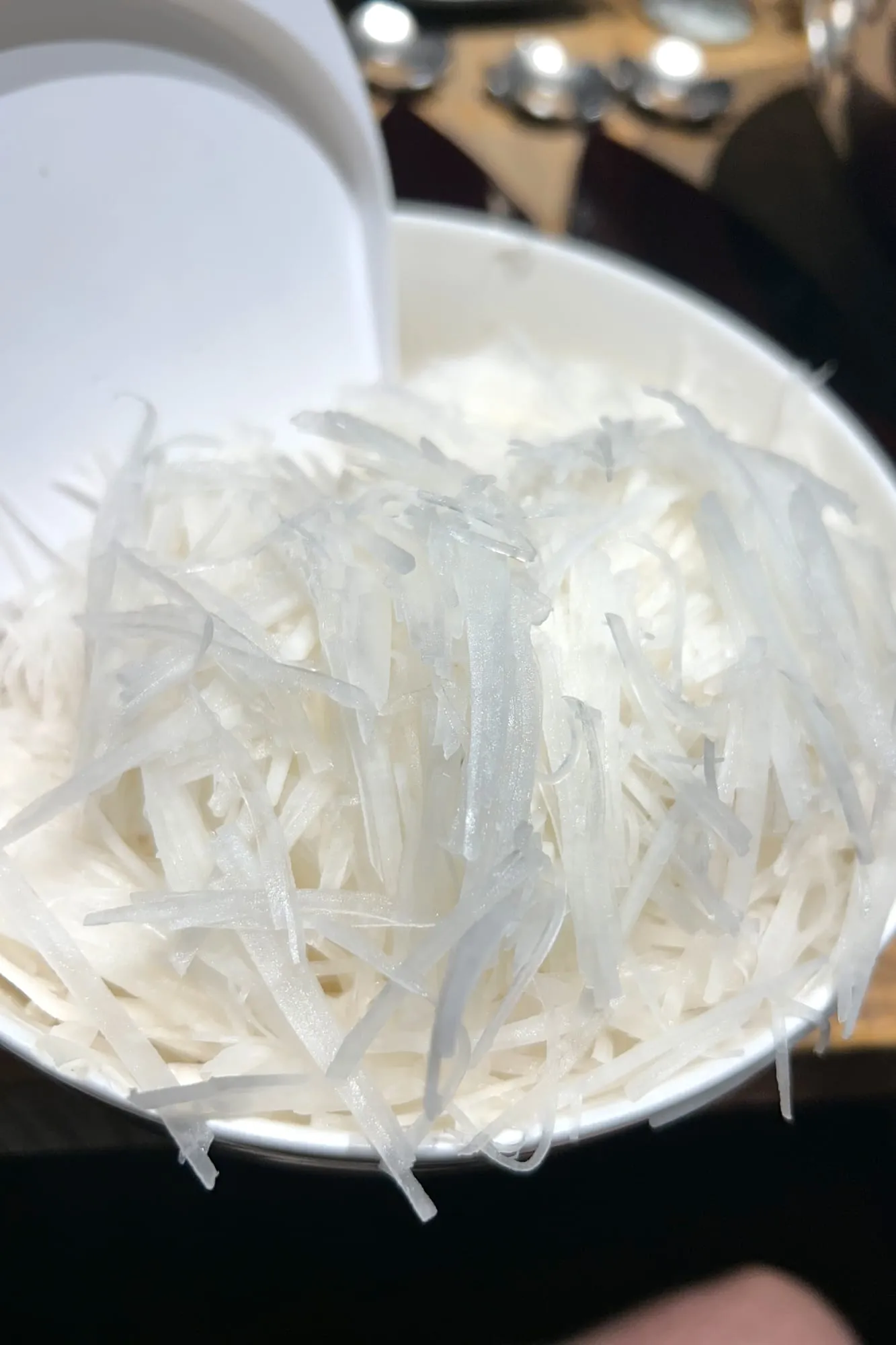
The final lesson of the day is focused on cutting daikon radish. Isabella practices diligently until time runs out. However, Isabella still hasn’t quite reached the instructor’s standards, so this task is carried over to the next day.
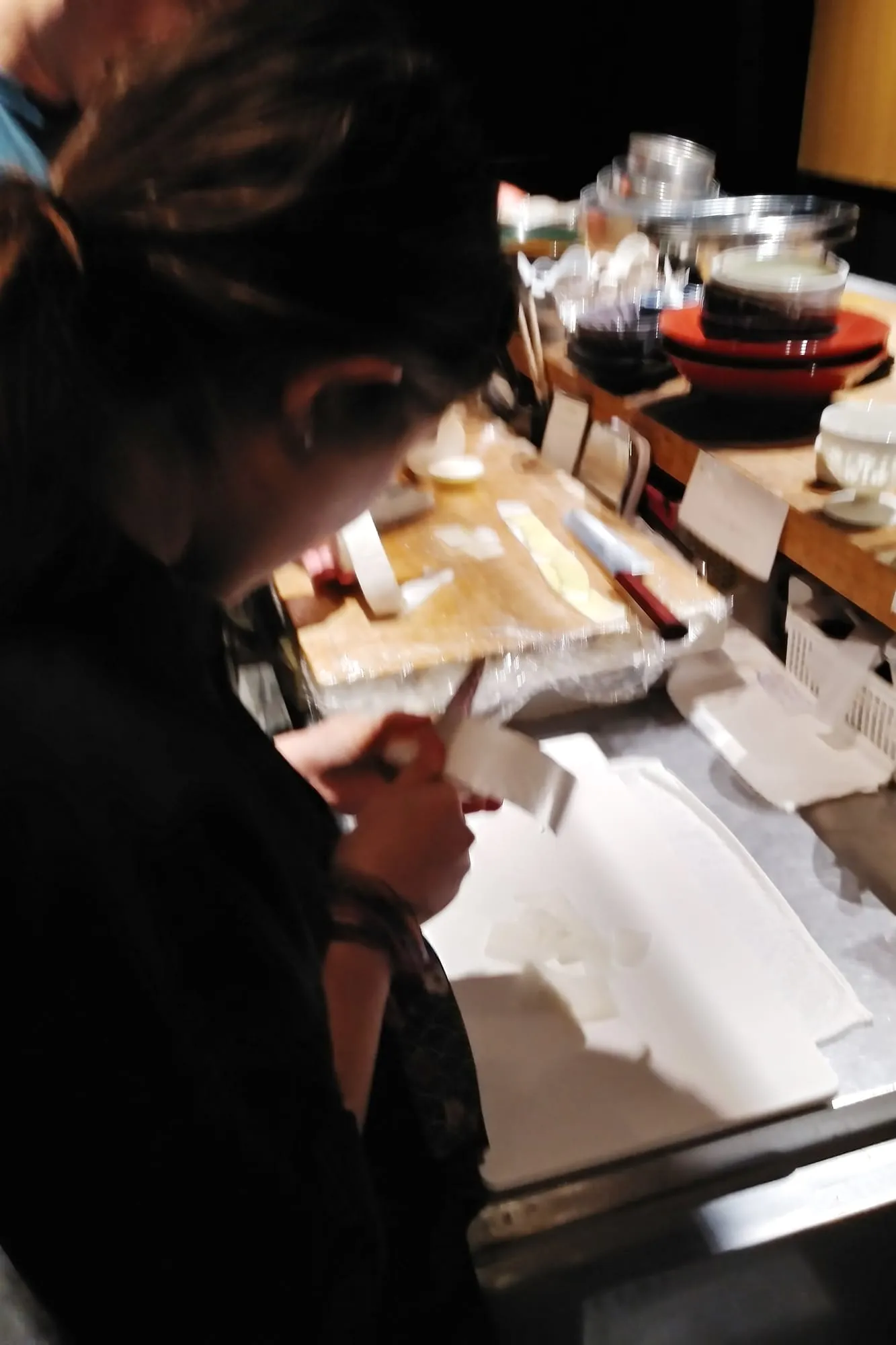
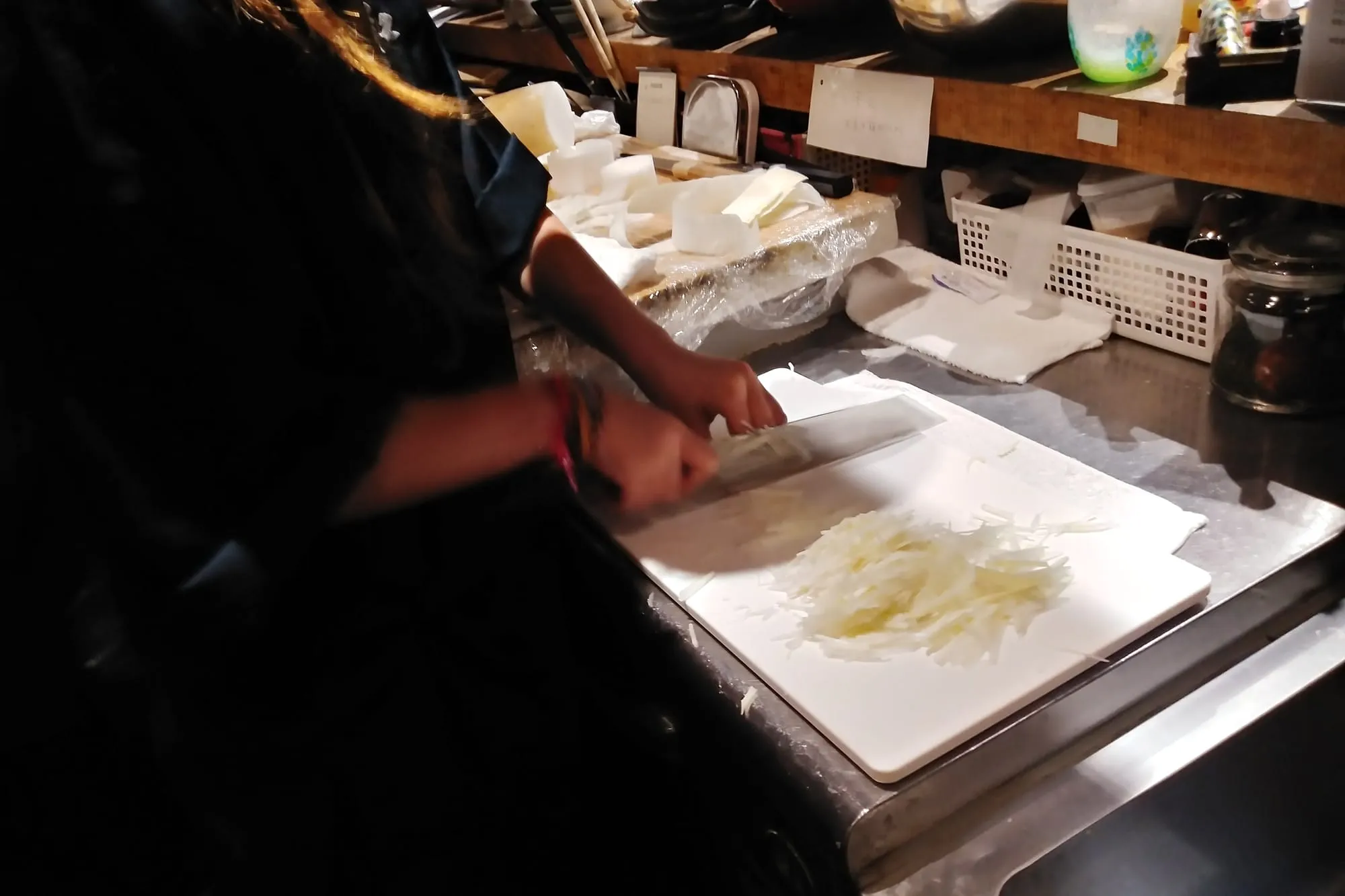
On the last day of the izakaya lessons, Isabella comprehensively reviews what she has learned throughout the week. She starts with katsura-muki (thin slicing), a technique used in knife skills training. Despite many attempts, Isabella eventually manages to achieve a certain length. She then cuts the slices into fine strips, paying attention to posture and ingredient placement, just as she had been taught.
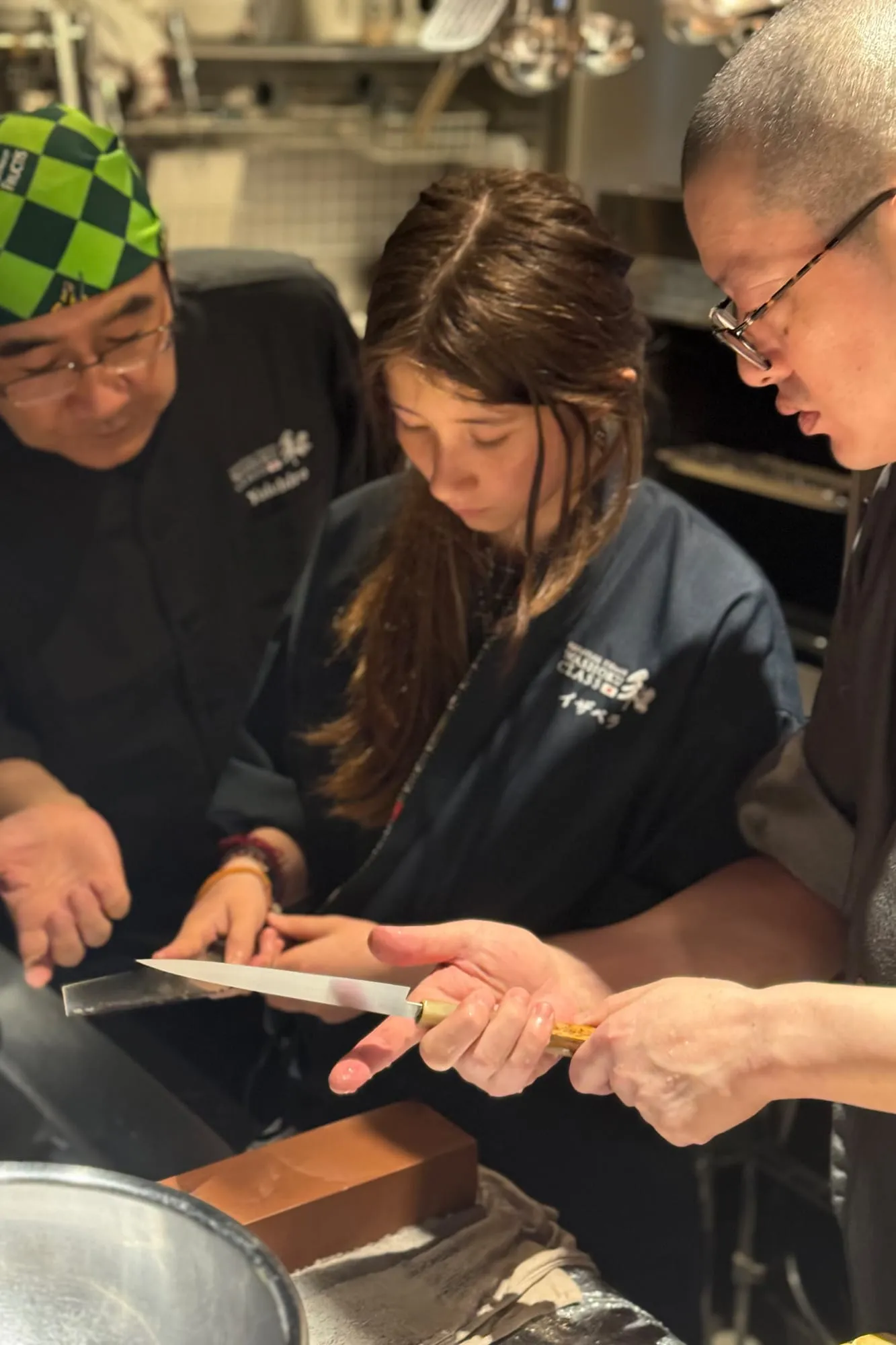
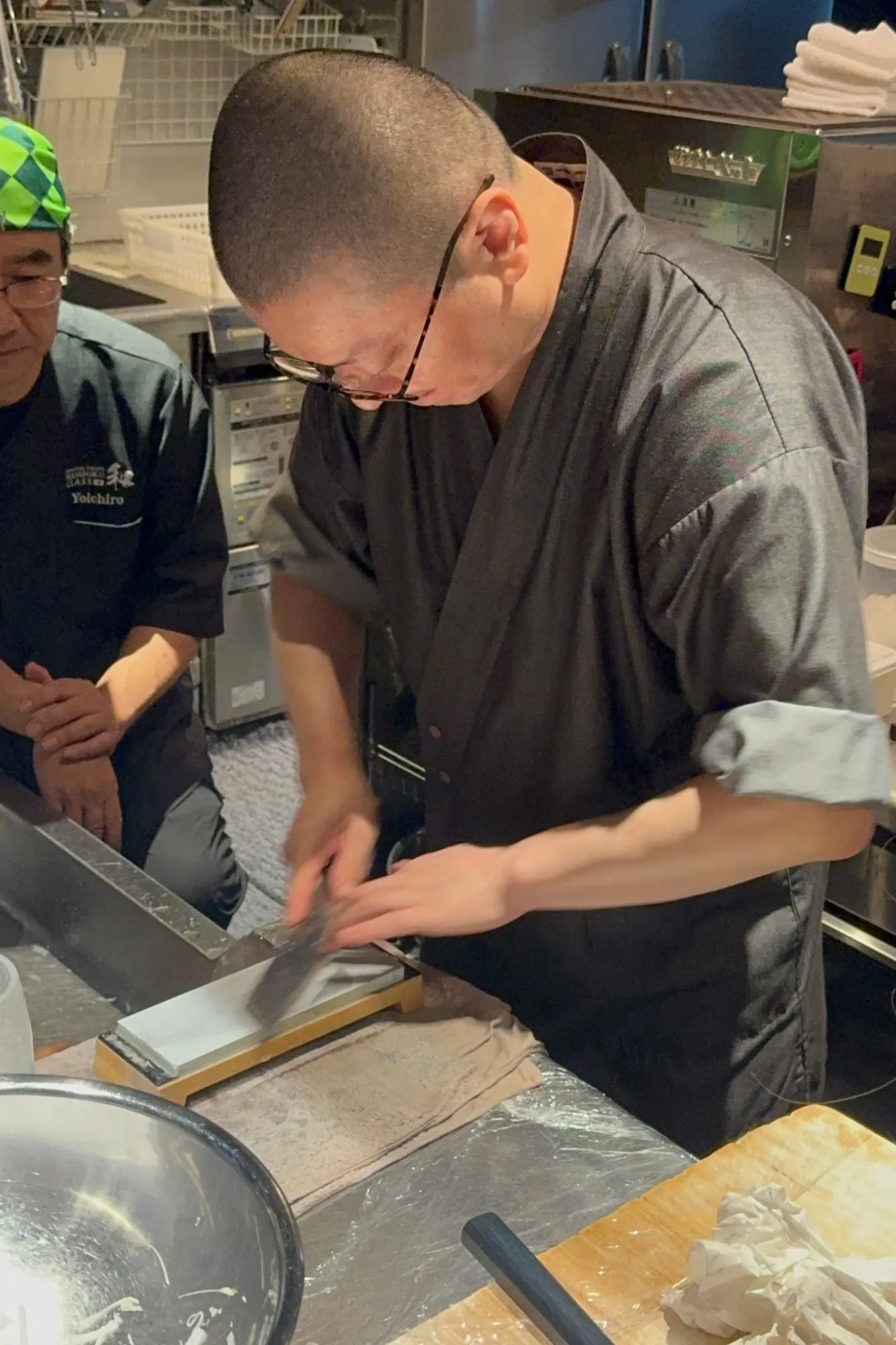
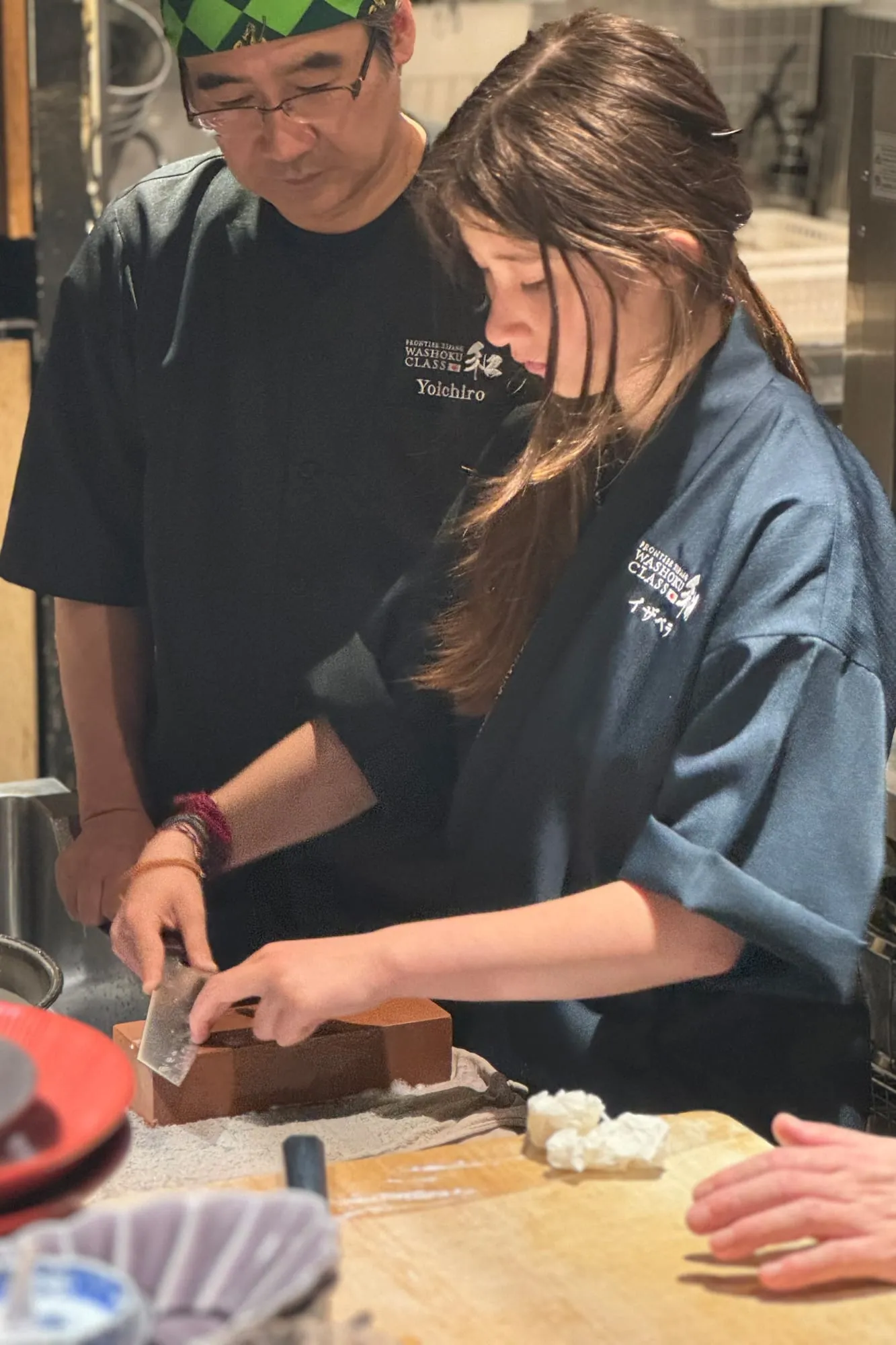
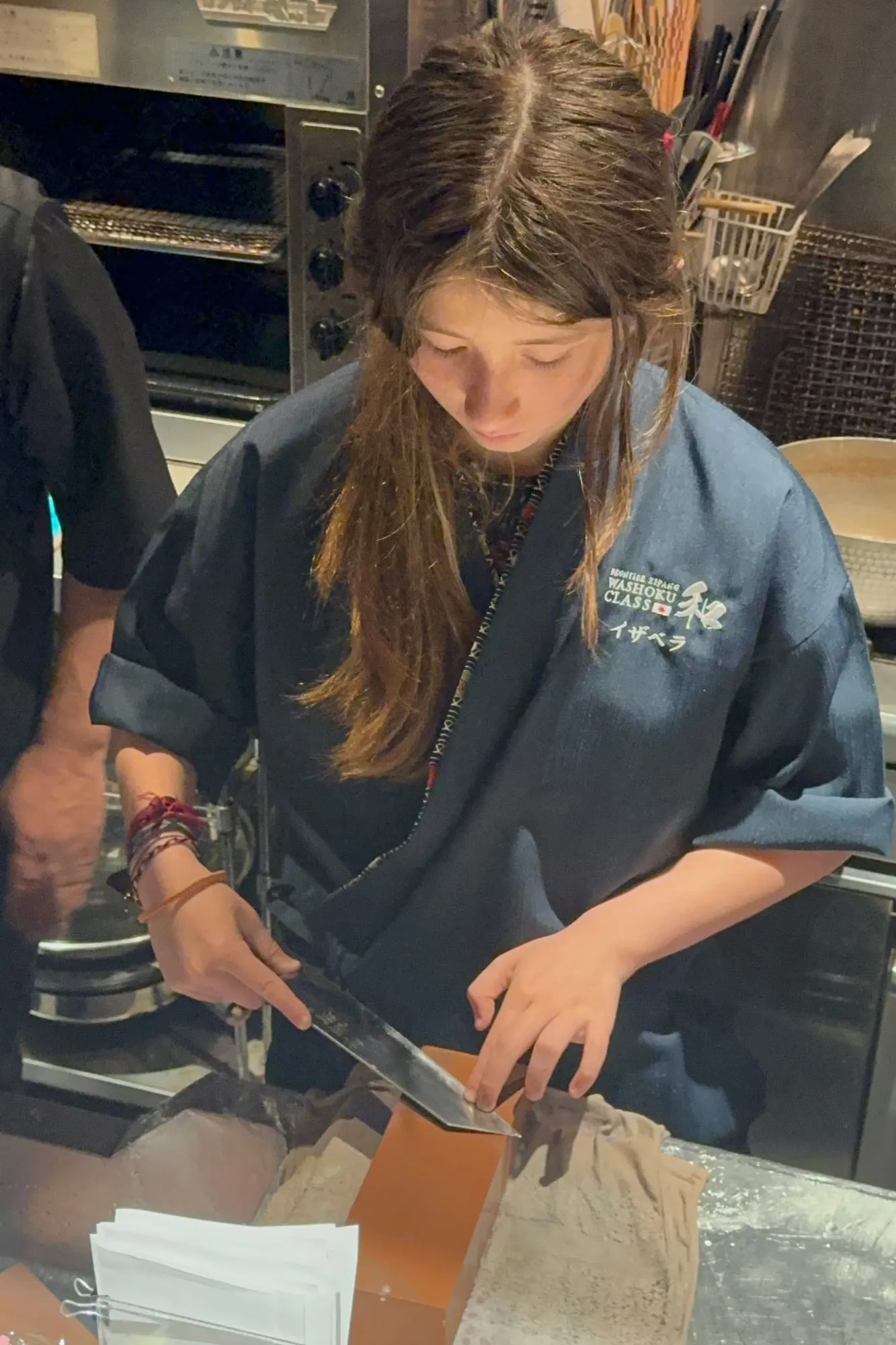
Since Isabella’s knife had become dull, the instructor gives her a lesson on sharpening and caring for knives. Under the instructor’s guidance, she tries sharpening her own knife. It is not perfect from the start, but with continued practice, she can learn to take care of her knife and use it for a long time.
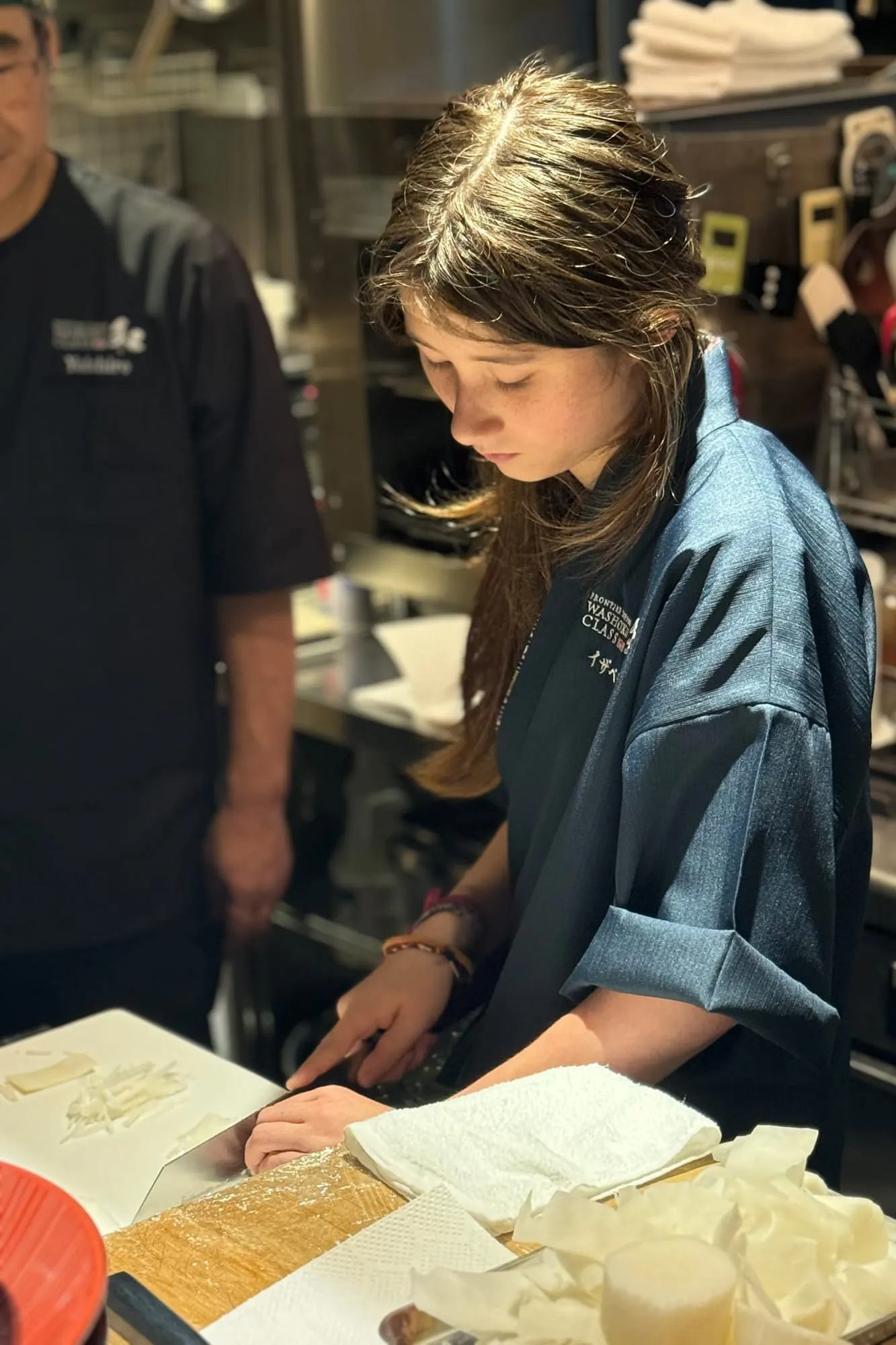
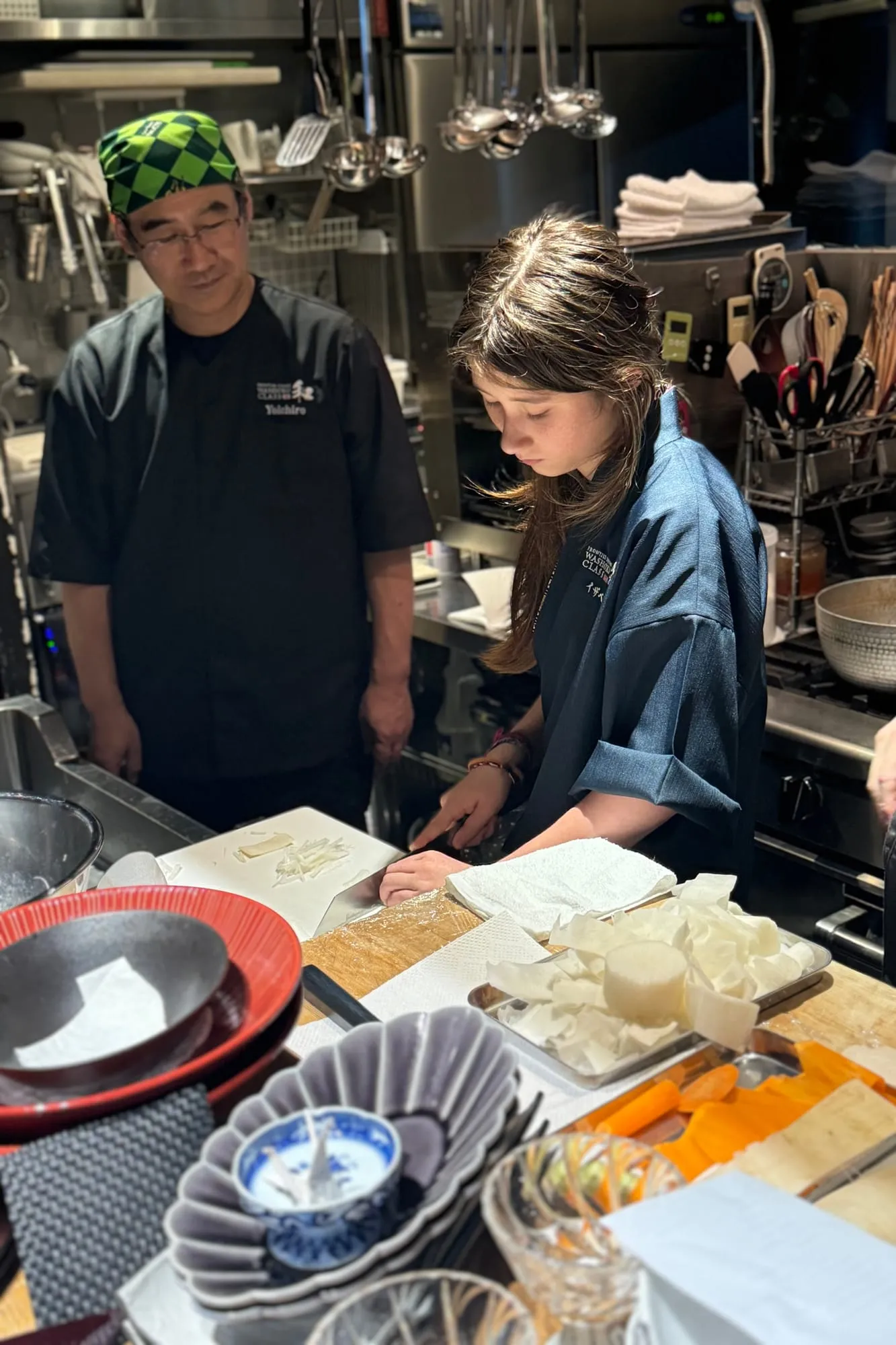
To check the sharpness, she practices katsura-muki and fine slicing again. This hands-on experience helps her understand the importance of regularly sharpening and maintaining knives.
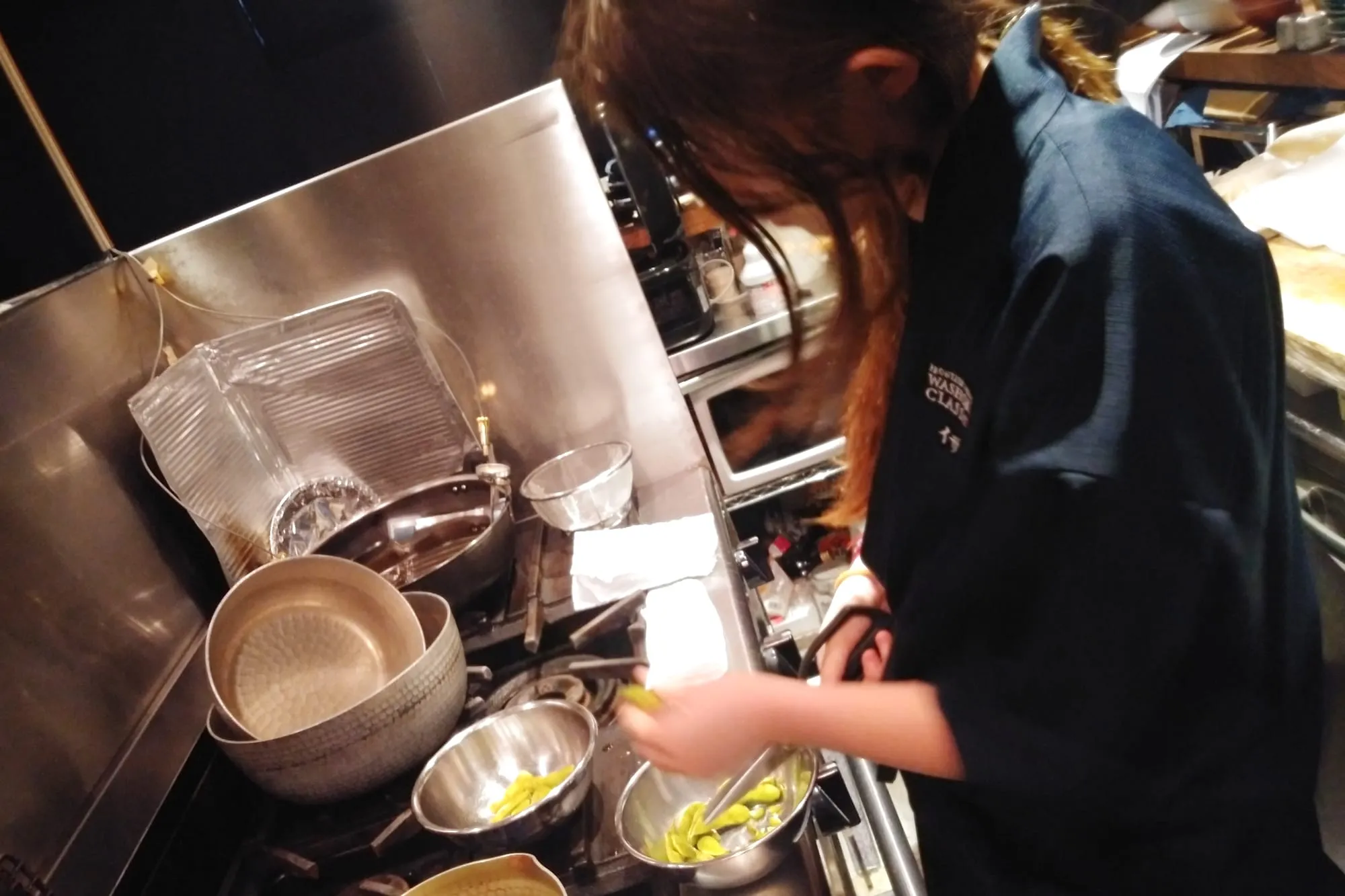
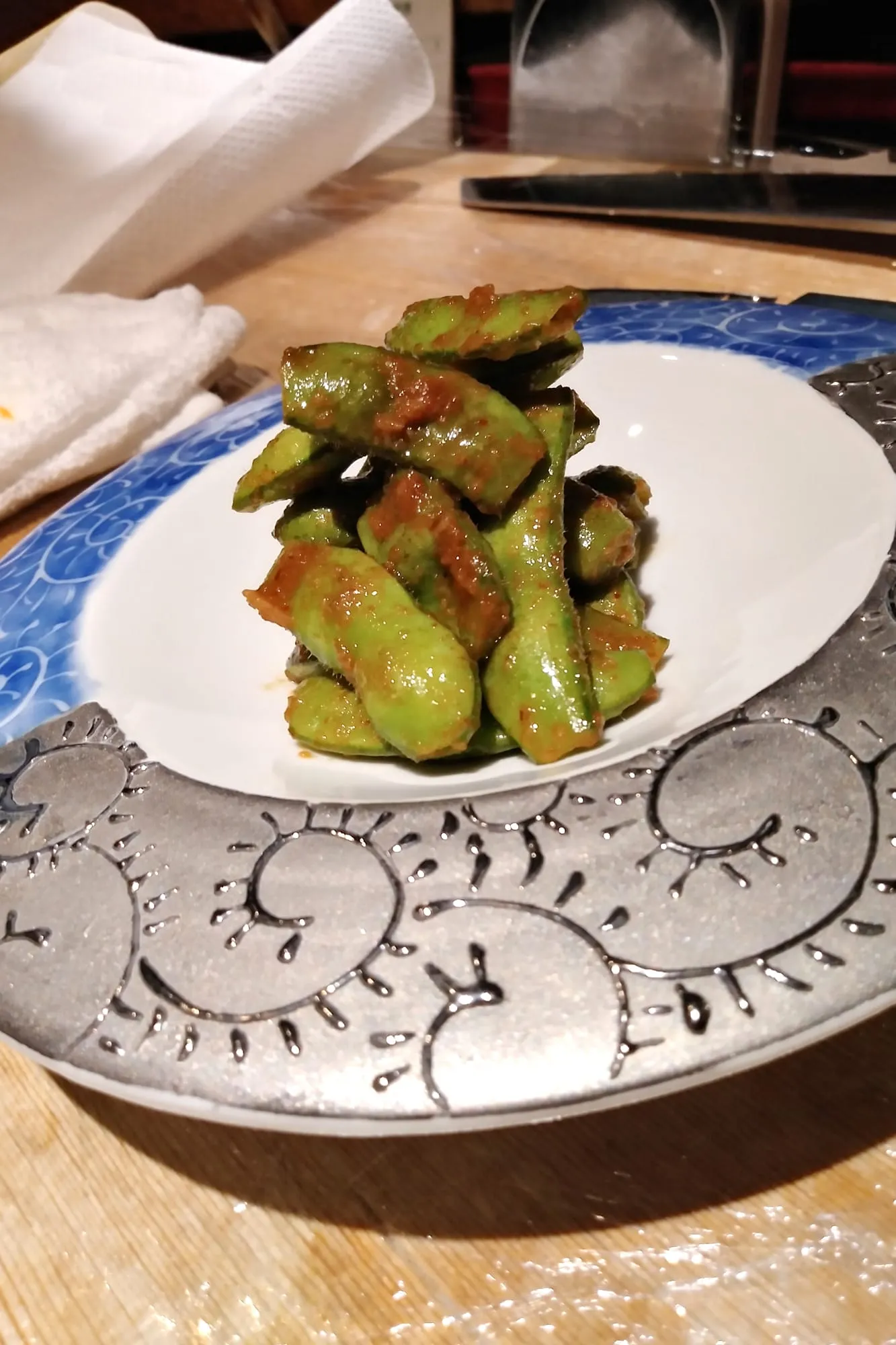
Isabella is curious about edamame, so she learns both the standard method of boiling with salt for home preparation and the premium preparation used in high-end restaurants. Additionally, by her request, they tries making garlic-flavored edamame, which became her new favorite. She even uses it for a plating practice lesson.
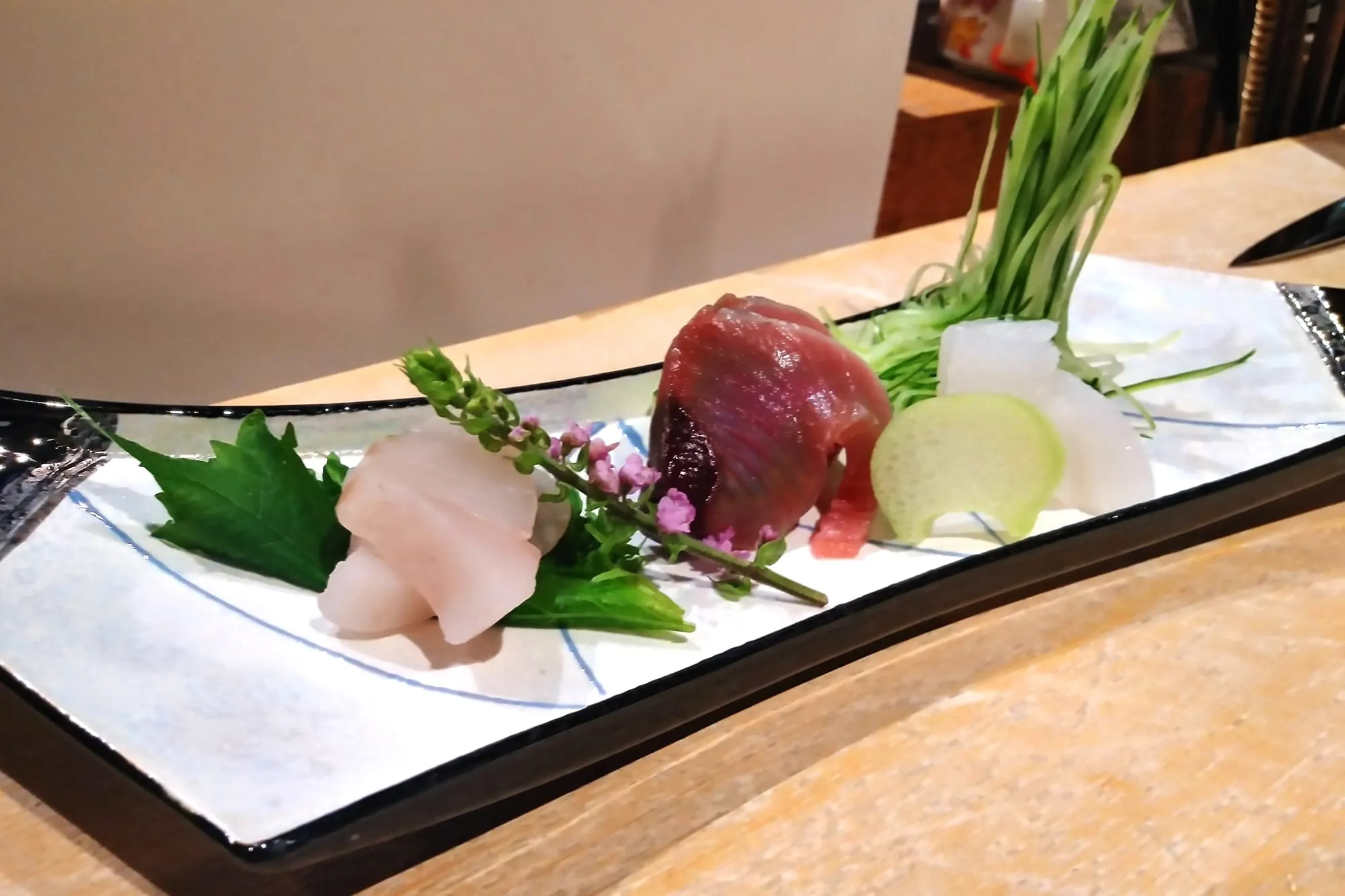
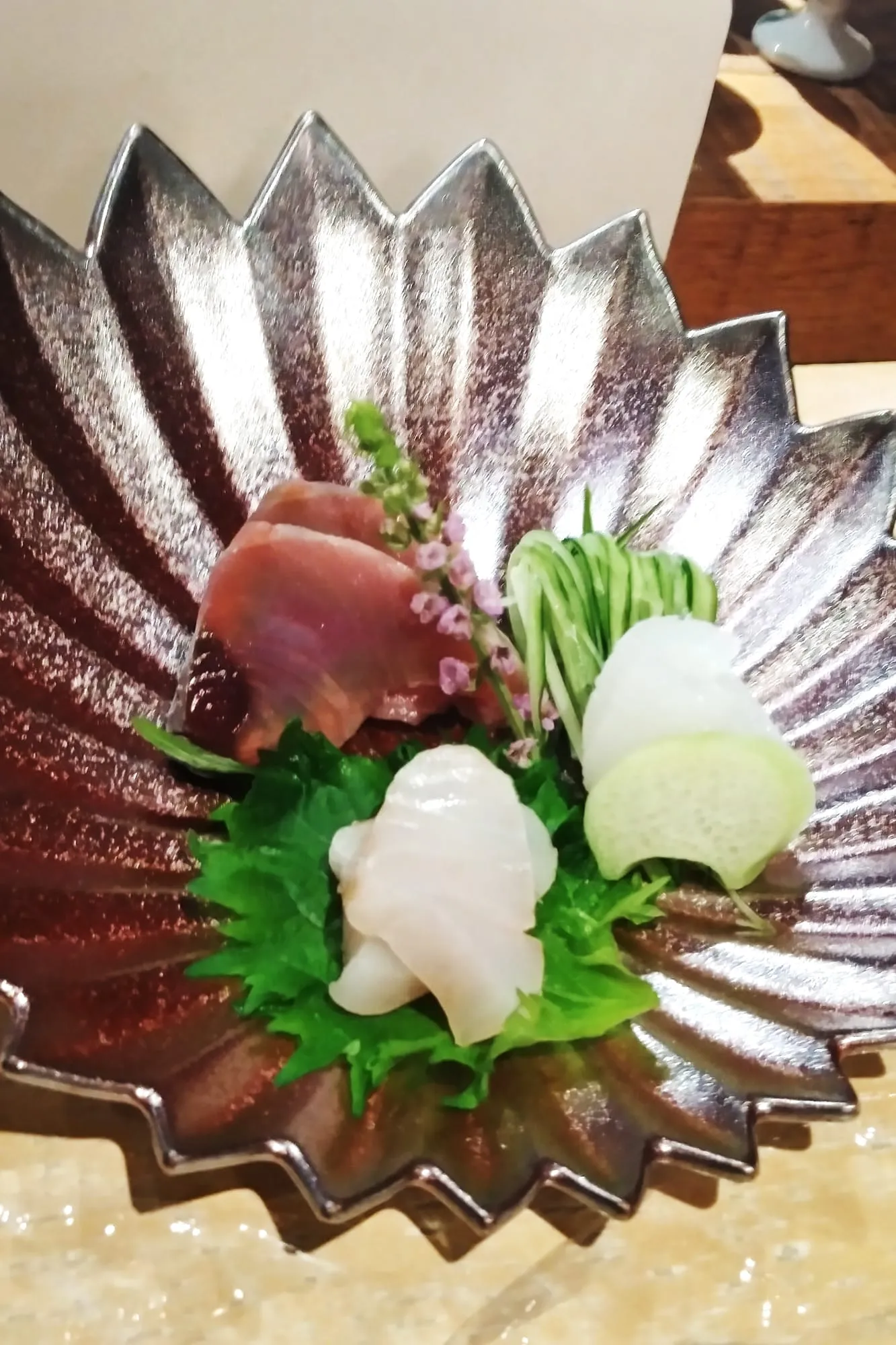
The final segment covers the basics of sashimi plating. Starting from plate selection, Isabella learns the fundamentals of arranging sashimi with attention to color. Just knowing these basics can make dishes look more vibrant and appetizing.
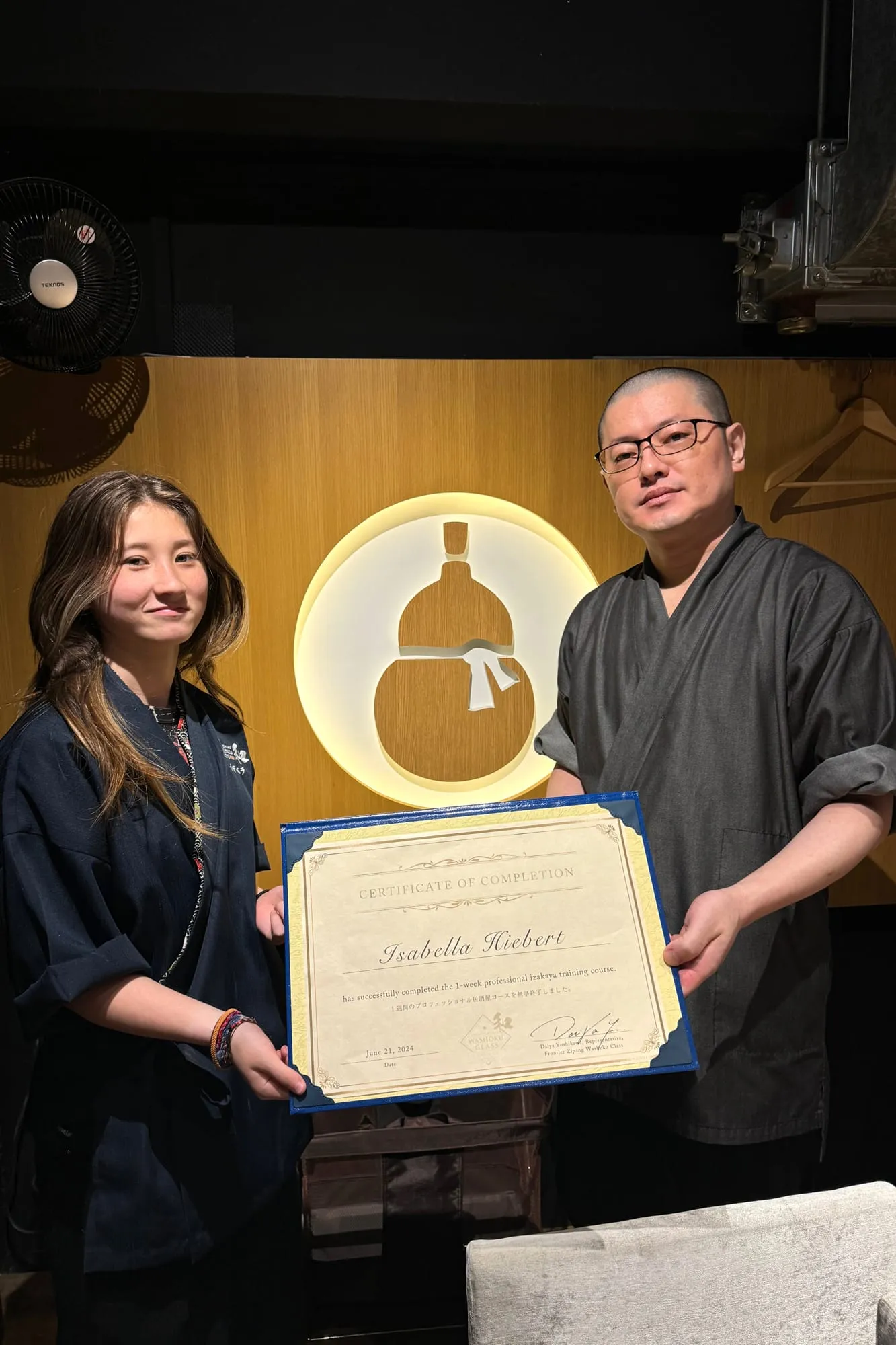
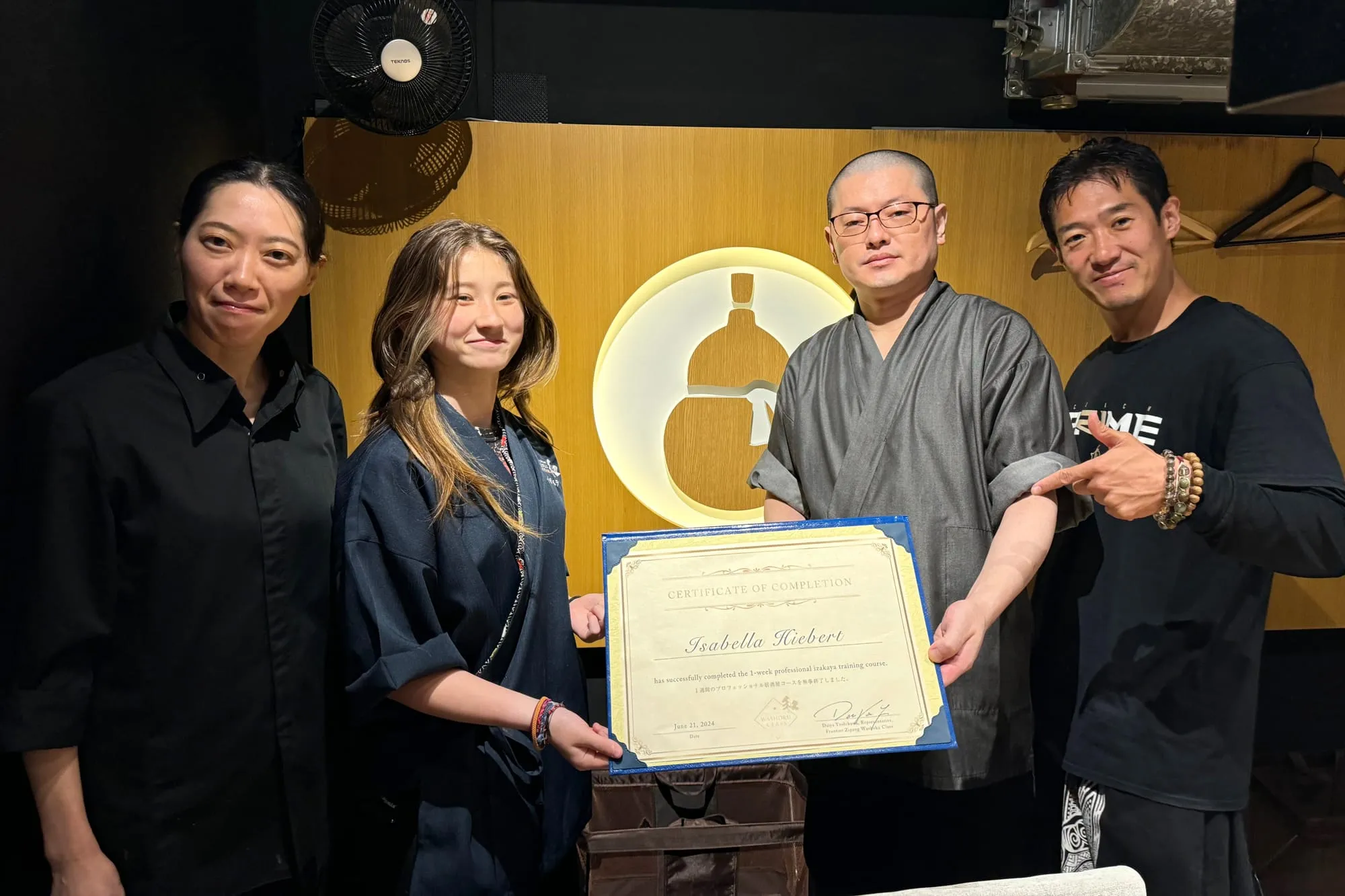
Next week marks the sushi lesson. We are sure Isabella will continue to learn and enjoy herself with smiles until the very end.
